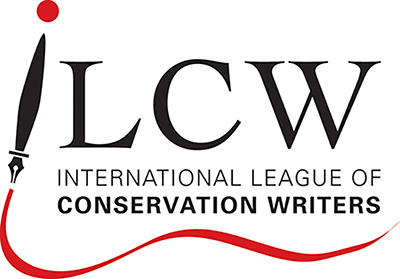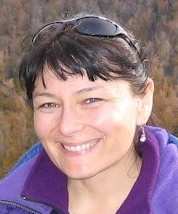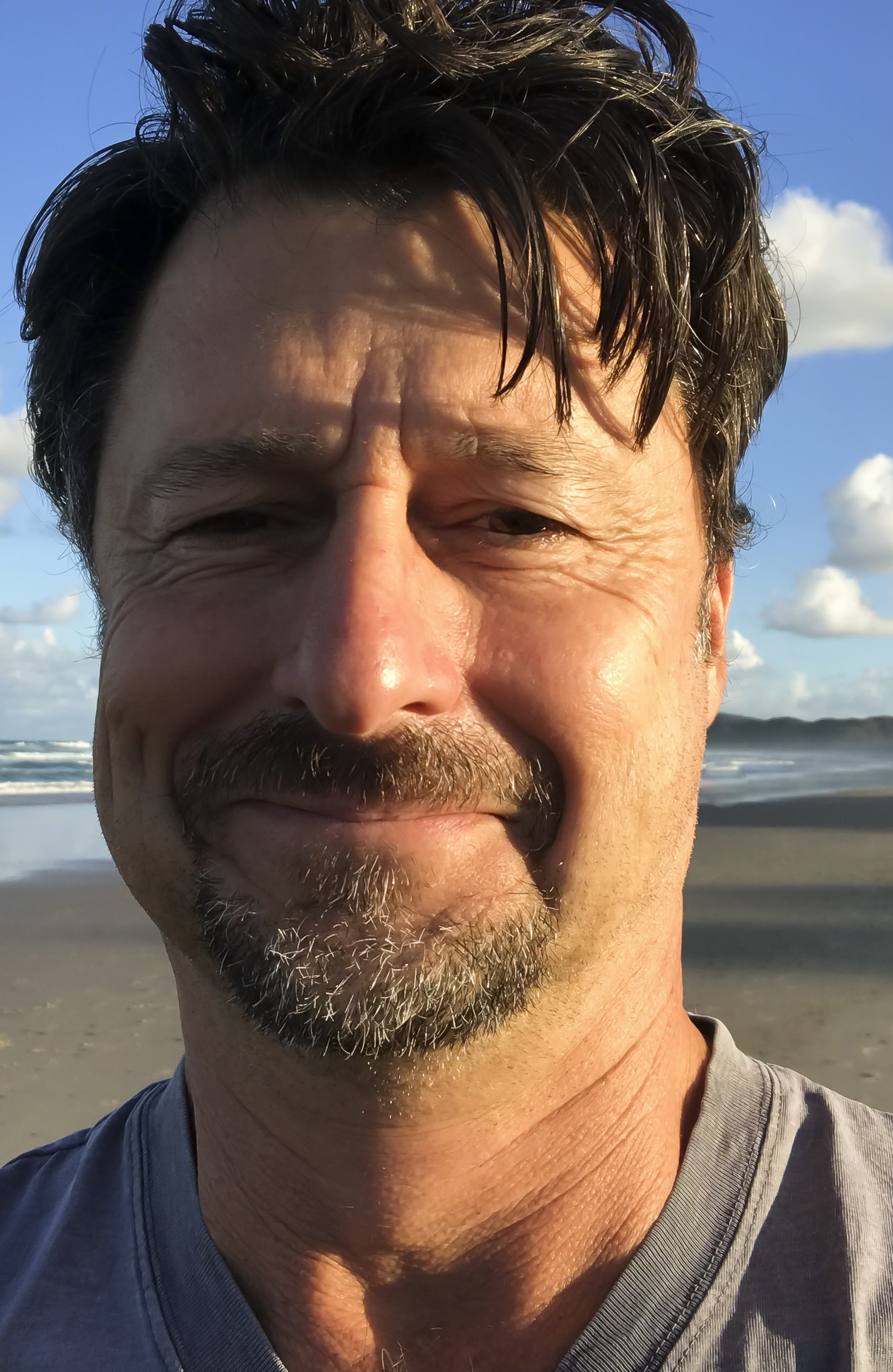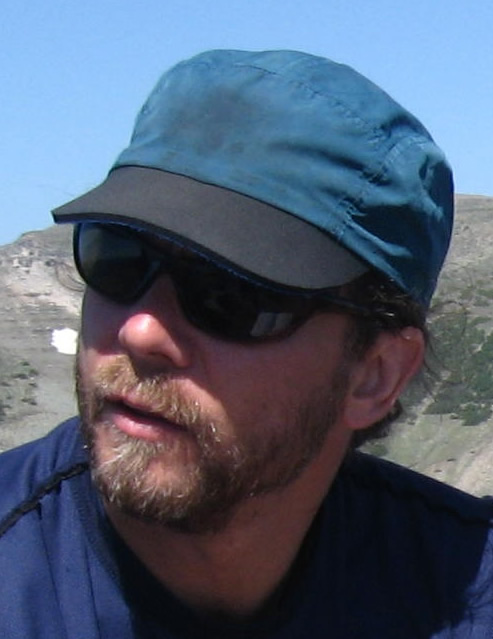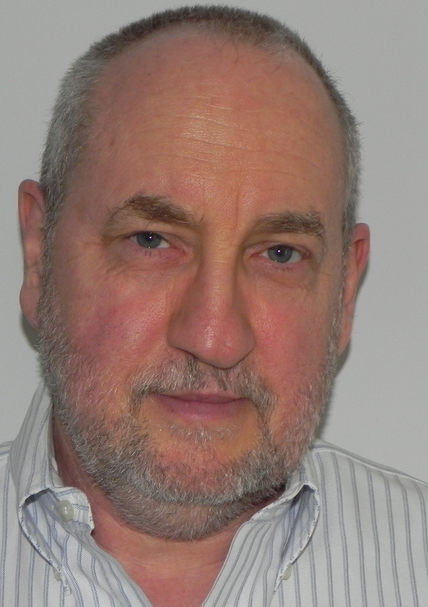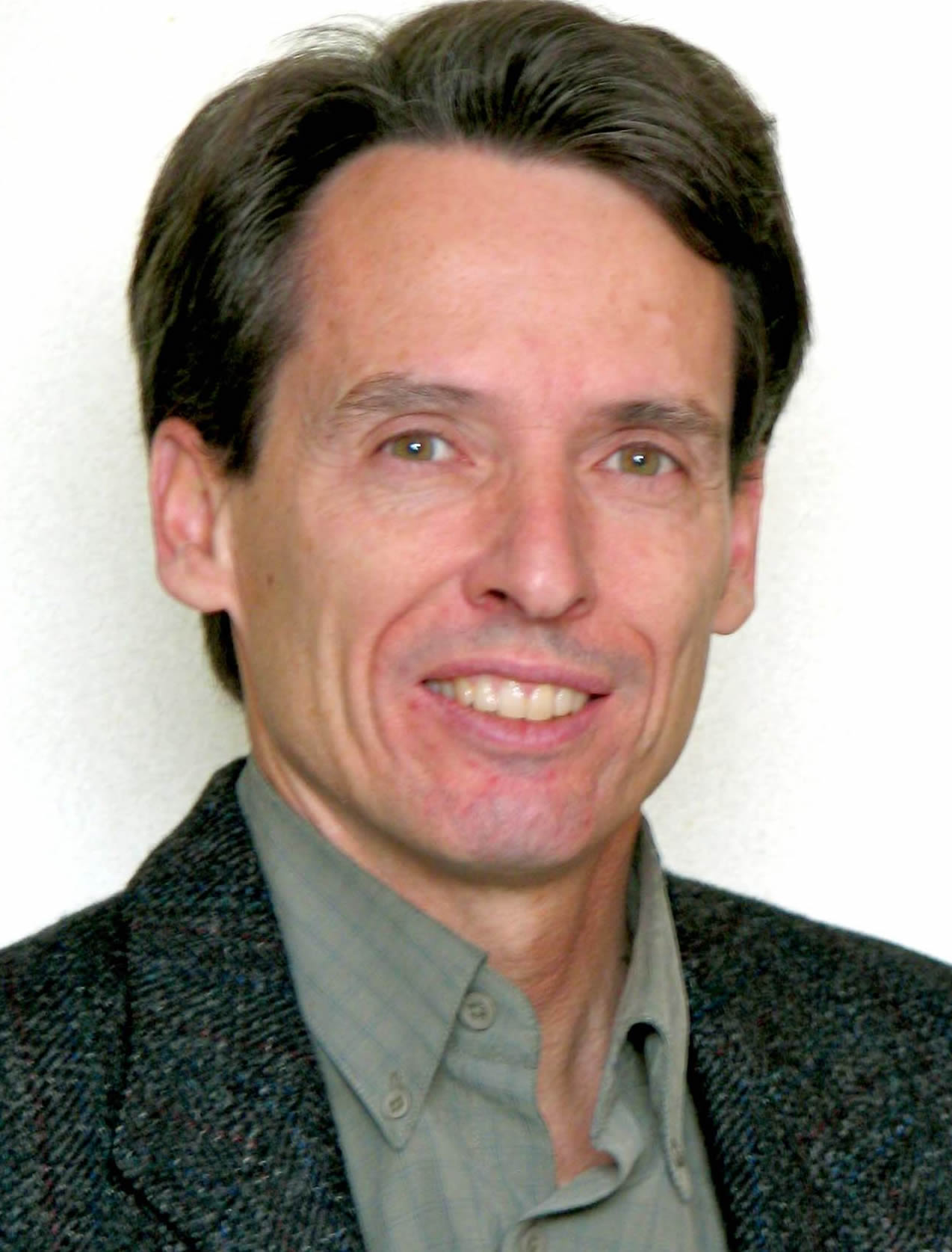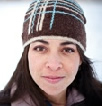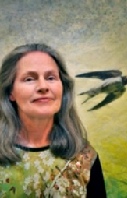International League of Conservation WritersWriting to inspire the love of nature and a passion for its protection |
The International League of Conservation Writers is a forum to bring writers together from around the world who are writing to promote wilderness, nature, conservation, or using other means to protect and restore the natural areas, habitats, animals, and plants of our planet. ILCW will present periodic writing awards to authors who excel in this field. |
ILCW Members Are Eligible to Use David R. Brower Office for Conservation Writing Come write, do research, and be near wild and protected areas in Colorado while working in the David R. Brower Office of Conservation Writing. Sit at the same desk used by Dave Brower. There is no cost to use the office. If interested apply here. |
|
ILCW Member Bios |
|
 |
Fadhilah Abdullah (Malaysia) Fellow As a former Programme Officer for the Coral Triangle Initiative, she has produced brochures and booklets with the aim of increasing exposure and awareness on environmental conservation, especially marine conservation in the SEA region. Her areas of interest include nature and wildlife through her writing on peace, religion and environmental ethics. She is currently working to pursue a more sustainable and humane food system in South East Asia. Devoted to animals, Fadhilah volunteers at animal sanctuaries in Malaysia, Thailand and Cambodia. |
|
Kera Abraham(USA) Fellow is the assistant editor at Monterey County Weekly, an independent, alternative newspaper on the Central Coast of California. She has been a full-time staff reporter for alternative weeklies since August 2004, specializing in both short-form news and long-form narrative on environmental topics including forestry, pesticides, eco-sabotage, land use, water supply and the oceans. Her recent honors include a first-place award from the Association of Alternative Newsmedia in 2011 and a first-place award from the Society for Environmental Journalists in 2010. She can be reached via Email. |
 |
Femi Amele (Nigeria) Associate Amele is a journalist based in Lagos, Nigeria with a background in public health and science journalism. Also a strategic management analyst, from accredited Institute of Strategic Management, Nigeria and served as news anchor and producer at Nnamdi Azikwe University, Radio Station (UNIZIK FM) South East Nigeria. Amele has spoken on the platforms of United Nations Development program (UNDP) and other governmental parastatals, on issues of science advocacy and strategic communication for developing societies such as Nigeria. A recipient of an international volunteer award by GIVE Network and Canadian International Development Agency and a former press coordinator for awarding winning organization, Development Communications Network. Amele is a Member of Nigerian Association of Science Journalists and presently writes for News Science Journalism Online and contributes to the fastest growing news portal in Nigeria, 234next.com as writer, online broadcaster and producer. He may be contacted via Email. |
| Mike Anderson (USA) Associate Anderson had earned several awards for writing and producing advertising campaigns since 1977. Now he’s more interested in writing to help preserve and conserve natural places. Anderson publishes two blogs: CleanUpTheRiver.com andFootprintsAndPhotographs.com. Anderson is a firm believer that the power of writing can be very effective in wilderness preservation. Using his writing and photographs he is sure that if someone is introduced to the charm, character, and beauty of a place, they are less likely to abuse, and more likely to preserve it. |
|
 |
Joaquín Araujo (Spain) Fellow Araújo is considered one of the foremost naturalists in Spain. A journalist, documentary filmmaker, lecturer, and farmer he is the author of more than 87 books. Araújo’s opinion is considered critical in the issue of environmental journalism. He has worked simultaneously in Spanish television, national radio, and newspapers with the emphasis of showing the importance of environmental protection in everyday life. Araújo was awarded the Wilderness Writing Award in 2013. |
 |
Fitrian Ardiansyah (Indonesia) Fellow Ardiansyah is a former advisor and program director for climate and energy, WWF-Indonesia. He was one of the experts contributing to the Indonesia Forest Climate Alliance (IFCA) and a member of the Indonesian Official Delegates to the UN Framework Convention on Climate Change (UNFCCC). Ardiansyah was also adjunct lecturer at the Post Graduate School of Diplomacy of the Universitas Paramadina and a member of the executive board of the Roundtable on Sustainable Palm Oil (RSPO). He is currently conducting his doctoral research at the Crawford School of Economics and Government, the Australian National University (ANU) in Canberra, Australia, with the support from Australian Leadership Award and Allison Sudradjat Award. His recent publication includes: “Risk and resilience in cross-border areas”, in: Lorraine Elliott, Mely Caballero-Anthony (Eds.): Human Security and Climate Change in Southeast Asia (New York: Routledge, 2011). He also regularly writes articles for reputable media in Asia-Pacific, such as the Jakarta Post, the Strait Times, Asia Views, Inside Indonesia and East Asia Forum. For more information please visit his blog. He may be contacted via Email. |
 |
Tina Armstrong-Ogbonna (Nigeria) Associate She is a passionate journalist who started her media career in January 2009 under the tutelage of the Federal Radio Corporation of Nigeria (FRCN) training school in Lagos. She has undergone courses in presentation and journalism and has had a brief stint with the Nigeria Television Authority (NTA) and Channels Television in 2009. Armstrong-Ogbonna also worked with Florish Media: a production outfit, as a field reporter and production assistant in packaging of Maritime Documentaries, and as metro reporter with Tentacle News Magazine. Presently, she is a reporter with the Federal Radio Corporation of Nigeria (FRCN), working as a correspondent on the Maritime and Environment Beat, and a media officer with an NGO (21st Century) in Lagos. Armstrong-Ogbonna is highly energetic, a part-time aerobics coach, adventurous and fun-loving. Her Hobbies include multi-tasking, traveling and listening to music. She may be reached via Email. |
 |
Lane Ashfeldt (UK) Fellow Ashfeldt is a fiction writer and tutor of creative writing with the Open University. Her short fiction is often set within rural and coastal landscapes, and has themes that invite the reader to ponder on the natural world and the place of humans within it. Ashfeldt’s stories have won the Fish Short Histories Prize and the Global Short Stories prize, and have been performed at internationally literary events and broadcast on the radio. Her audio flash story Wild in the Country can be downloaded at 4’33″magazine. Another of her stories, this one featuring a scientist who works on conservation issues but feels displaced on an emotional level, may be read online at Guardian.co.uk. Ashfeldt's debut collection of short fiction, SaltWater, set in disparate coastal landscapes around the world (Liberties Press, 2014). Ashfeldt grew up in Ireland and currently lives in Wales. Website |
 |
Bill Bainbridge (South Africa) Fellow Dr. Bainbridge is a professional nature conservationist and a resource planner. He has served in a professional capacity in three nature conservation agencies, in Zambia and KwaZulu-Natal in South Africa. His last post prior to retirement was Head of Planning of the Natal Parks Board. Bainbridge has been involved with the administration and management of some of the most important protected areas in Southern Africa including the Luangwa complex, and the Kafue National Park in Zambia. Bainbridge is best known in South Africa for his work in the KwaZulu-Natal Drakensberg in the area that has become known as the Ukhahlamba-Drakensberg Park World Heritage Site, and for his work in the Greater St Lucia Wetland Park World Heritage Site. He was responsible for preparing the nomination proposals of the four Drakensberg wilderness areas, including the first legally proclaimed wilderness on the African Continent, as well as areas now listed as wilderness zones of the Greater St Lucia Wetland ParkWorld Heritage Site. Following his retirement, Bainbridge was part of a consortium responsible for the establishment of three new protected areas in Lesotho for the Lesotho Government, including Bokong Nature Reserve, Liphofung Cultural Heritage Site, and Tsehlanyane National Park. The last area contains a wilderness zone. Dr. Bainbridge played a significant role in providing comment to the National Environmental Management: Protected Areas and Biodiversity Bills, now assented into law, on behalf of environmental NGOs known as the Environmental 12 Consortium. This included the formulation of written comment, as well as addressing the parliamentary portfolio committees of both the National as well as the KwaZulu-Natal Provincial Assemblies. Dr. Bainbridge has attended nearly all of the nine World Wilderness Congresses, and has presented papers at five of them. He has also published papers on wilderness conservation in theInternational Journal of Wilderness, and other publications. Dr. Bainbridge is the recipient of a number of international and local awards including an honorary doctorate (LL.D, h.c.) from the University of Natal; WILD man lifetime achievement by the WILD Foundation at the 7th World Wilderness Congress; the Silver Medal of the Game Rangers Association of Africa, 2005; and Conservationist of the Year by the Wildlife Society, 1995. |
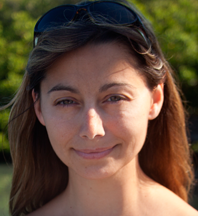 |
Jennifer Balmer (USA) Fellow Dr. Balmer is a former marine biologist turned freelance writer who uses her science background to bring attention to under-reported environmental health and conservation issues with a particular focus on arctic and ocean ecosystems and their “charasmatic megafauna.” She is a member of both the National Association of Science Writers and the Society of Environmental Journalists and her work can be found at Science Magazine and Audubon, among other publications. She currently lives on Wadmalaw Island. South Carolina and can be reached via email, through her personal website, or followed on Twitter. |
 |
Chandreyi Bandyopadhyay (India) Fellow Chandreyi Bandyopadhyay is a PR turned independent journalist, driven by her passion for travel and the wildlife. Based in Nagpur in India, she travels frequently to the forested regions of Central India and engages with the local communities to learn and understand their ways of life. She is keenly interested in pursuing the impact and ethos of conservation and present her findings through well researched reporting. She has written about India's tiger conservation efforts from different forests for Deccan Herald, The New Indian Express, The Hindu and The Established and Village Square India. Her stories can be read at: https://muckrack.com/chandreyi-bandyopadhyay-2 |
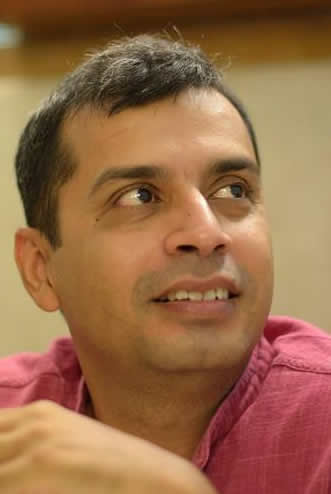 |
Ananda Banerjee (India) Fellow Banerjee is an award winning conservation journalist, author, graphic designer and documentary photographer. In his 20 year professional career he also has contributed to several books, magazines, galleries and museums around the globe: Grosvenor Gallery, London; National Museum of Natural History (Naturalis), Leiden; World Water Exhibition, Hague; Water Asia Exhibition, New Delhi, International Crane Foundation, Wisconsin to name a few. Banerjee writes for Mint (launched in association with The Wall Street Journal / livemint) and is associated with Global Tiger Forum and Environment Law and Development Foundation. He is FEJI-ATREE (Forum of Environmental Journalists of India – Ashoka Trust for Research in Ecology and Environment) Media Fellow. His recent work can be accessed here. He can be reached on twitter, email, Website, Flipkart |
 |
Bob Baron (USA) Founding Fellow Baron, founder and president of Fulcrum Publishing, is a historian, scientist, and the author or contributor to 25 books. He was program manager for the Mariner II (Venus) and the Mariner IV (Mars) onboard space computers. In 1971, he founded Prime Computer, which became one of the Fortune 500 largest American companies, and was its first president and chief executive officer, building a worldwide business. He is chairman emeritus of The WILD Foundation. |
 |
Charlotte Baron (USA) Associate Chairman of the Board of the WILD Foundation, Baron is a lover of nature, conservation, travel and is an avid birder. She is also a champion of reading and literacy and has served or is serving on various library boards. Baron is also an appreciator of cultural diversity and is a board member or trustee of many local cultural facilities or organizations. |
| Guilherme Baron (Brazil) Associate Baron has a passion for nature and for the ethics of conservation. He has degrees in philosophy and finance management. In Jaragua do Sul, Santa Catarina, Brazil where he lives, he is planting trees and teaching children the importance of nature and the need for its care and conservation. |
|
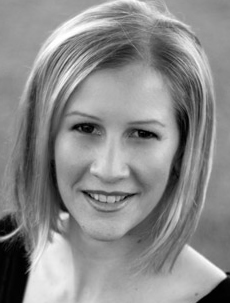 |
Carolyn Barry (Australia) Fellow Barry is online editor of Australian Geographic, based in Sydney. Most recently, she has written a feature in the magazine about illegal wildlife trade in Australia. She has a B.Sc/B.Ed from the University of Queensland and an MA in journalism from the University of Colorado, where she lived for three years. She has written for publications such as National Geographic News, Rocky Mountain News, Science News (where she did a stint at the DC-based publication) and Cosmos Magazine (an Australian science mag). She was editor of Australian environment lifestyle publication, G Magazine before moving to Australian Geographic. She has reported on, and occasionally photographed science and nature stories from discovery of new species, to conservation, environment and travel issues. One of her memorable assignments was traveling to Sumatra to catch a glimpse of a few of the only 6000 remaining orangutans in the wild. |
 |
Carol Ann Bassett (USA) Fellow Bassett is the author of three works of literary nonfiction: Galápagos at the Crossroads: Pirates, Biologists, Tourists, and Creationists Battle for Darwin’s Cradle of Evolution; A Gathering of Stones: Journeys to the Edges of a Changing World (a finalist for the Oregon Book Award in Creative Nonfiction), and Organ Pipe: Life on the Edge (Desert Places series). Bassett’s essays have been anthologized in the American Nature Writing series. Her collection of poetry, After the Wave, will be out in 2011. Bassett spent 16 years as a full-time freelance writer and was a regular contributor to The New York Times and Time-Life, Inc., and was an independent producer for National Public Radio. Her work has appeared in The Nation, The Los Angeles Times, Mother Jones, Condé Nast Traveler,and dozens of other national publications. Bassett is an Internal Advisory Board member for the UNESCO (USA) Center for Intercultural Dialogue. She teaches environmental writing and literary nonfiction at the University of Oregon. |
 |
Jacalyn Beales (Canada)Fellow Beales is a freelance writer and wildlife advocate based in Toronto, Canada. In 2014, she founded PACH (People Against Canned Hunting) in an effort to help educate others on the exploitation of African lions. For several years, she has contributed to and written for various environmental publications, with a focus on wildlife conservation. As founder and editor-in-chief at Out of Wilderness Magazine, Jacalyn seeks to encourage the discourse on topics regarding the conservation of the planet and its wildlife. She is proud to be an editor forSelva Beat, the world's first vegan + palm-free magazine, as well as a member of the Ethical Writer's Coalition, ALECC and the ILCW. In her spare time, she works with various organizations whose efforts are helping to save the African lion. |
 |
T. DeLene Beeland (USA) Fellow Beeland is an independent writer who enjoys communicating about issues at the intersection of science, nature and humanity. She is the author of The Secret World of Red Wolves: A True Story of North America's Other Wolf, which is due to be released by the University of North Carolina Press in early 2013. She has written extensively for the Charlotte Observer, is a member of the National Association of Science Writers, and has contributed to various science and nature magazines since 2009. Beeland lives in the mountains of western North Carolina, a stone's throw from the Blue Ridge Parkway. Her professional writing site and her blog is Wild Muse. She can be reached via Email. |
|
Juan Bezaury-Creel (Mexico) Fellow Bezaury is currently TNC's Mexico Country Representative and Latin America Associate Director for External Affairs. Prior to joining the Conservancy, Bezaury had collaborated as World Wildlife Fund's Mexico Program Country Representative and Director, as the Executive Director of Amigos de Sian Ka'an the leading NGO in Mexico's Caribbean coast and as a deputy director with the Mexican Government's agency in charge of protected areas. A native Mexican and architect with a background in urban and regional planning, Bezaury discovered conservation 30 years ago, while working as a national park construction supervisor. Juan is currently a member of the National Protected Area Council, the Monarch Butterfly Fund's Advisory Committee and the Mesoamerican Reef Fund Board of Directors, while also sitting in various Mexican NGO boards and writing about Mexican biodiversity conservation issues. |
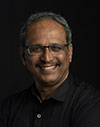 |
Kedar Bhide (India) Associate Just being in the outdoors makes me happy — the more challenging the environment, the happier I am. My appreciation for nature and the animals that inhabit their niches in their microcosmic ecologies has been enhanced by my post-graduation studies in applied biology. And among the many creatures, the ones that fascinate me the most are reptiles. My work in the field of snake research, rescue and awareness has given me, first and foremost, inner satisfaction. Accolades, too, have flowed my way from experts and organisations. Two of my exploration works have resulted in the first report of the Sindh Awl Headed snake and Kaulback’s pit viper from India. Although I have conducted many awareness programs for children and adults, and have trained many interested people on snake conservation, I feel as if I’m still a student of this vast and immeasurable diverse natural world. I didn't know when but photography, which started off as a tool purely for documentation of snakes, has now become an integral part of my life. When I am in the wilderness with my cameras, I feel at peace, clicking my dream frame image, while staying true to documenting facts as they are seen by the eyes. Lately with photography I have also started writing my thoughts. Images and words give me a more powerful tool to express my concerns and show society its role in conservation. I’m an optimist, I still have faith in each of us who are trying our best to stanch this battle with so called progress to find that balance between our demands and extinction of our co-species living on this beautiful planet. For more information visit his website or email. |
 |
Prerna Singh Bindra (India) Fellow Bindra a leading wildlife conservationist and writer based in India. She is founder trustee of Bagh, a foundation recently set up with a mission to secure India's wildlife and wild habitat. Prerna is editor of the journal TigerLink, which collates and analyses information on the tiger from across its range countries. She is also guest faculty for a module for Popular Writing (in Environment) and Conservation Policy at the National Centre for Biological Sciences. Bindra’s key expertise is conservation policy, advocacy and communication. Her primary focus is protecting wildlife habitats and critically endangered species. She has authored more than 1,500 articles on nature and wildlife for various newspapers and magazines. She has authored The King and I: Travels in Tigerland and an anthology on contemporary wildlife writings called Voices in the Wilderness. She may be reached at Email. Some of her writings can be read at website |
 |
Israel Bionyi (Cameroon) Fellow After completing his Masters in Communication from the University of Douala, Israel is now working as a freelance journalist and have seen his works published on Fair Planet, Standard Tribune and digital LagosTV. Israel is an environmental blogger and activist. As a freelance journalist, he founded the blog The Wink Writes and has a particular interest in forest and wildlife conservation in the Central African region and the fight against poaching and has equally been contributing in Standard Tribune, weekly newspaper (Cameroon) and digital Lagos, online news agency (Nigeria). Through his experience in different areas of communications he has also worked with local communities in the field. Israel volunteered for World Wide Fund for Nature between March and July 2014. During this period, he published several articles on WWF explore blog,Twitter, Facebook |
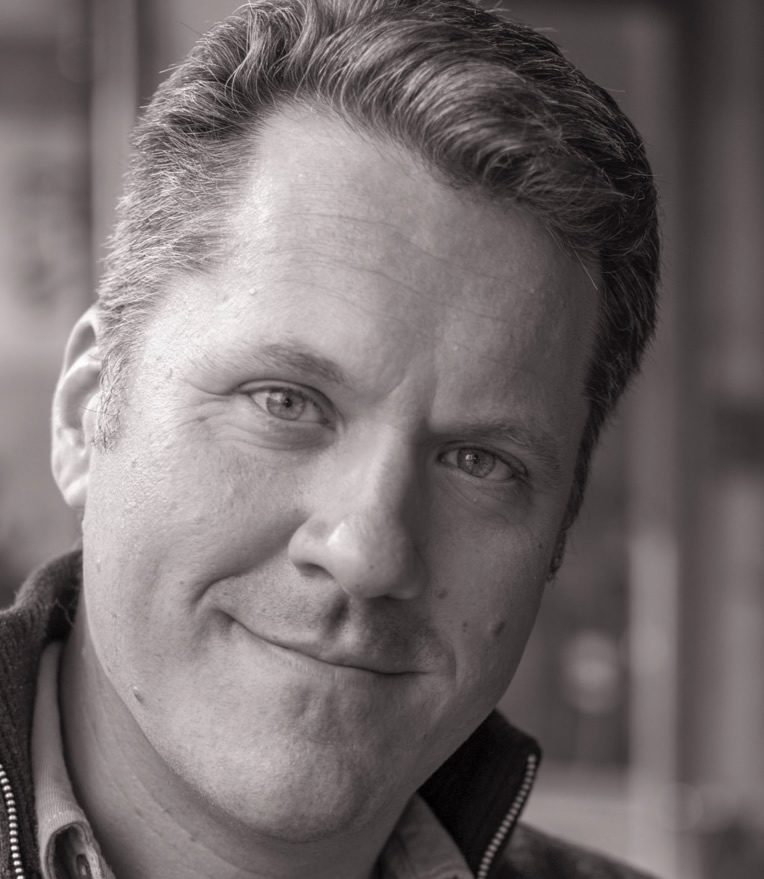 |
Justin Black (USA) Fellow Justin Black is a conservation photographer, writer, adventurer, and former executive director of the International League of Conservation Photographers (ILCP). Justin has been using the power of photography and the written word to support conservation for nearly two decades. Conservation initiatives that have used his work have, among other successes, expanded the designated wilderness in the Sierra Nevada and White Mountains of California, stopped a proposed mountain-top-removal coal mine in British Columbia’s undeveloped Flathead Valley, raised awareness of environmental threats to the Yucatán Peninsula and the Chesapeake Bay, and protected the Dragon Run cypress swamp in Virginia. He has also been an editor and contributor on several award-winning book projects, including Freshwater: The Essence of Life, The Wealth of Nature: Ecosystem Services, Biodiversity, and Human Well-Being, Our National Parks: America’s Natural Heritage, and Galen Rowell: A Retrospective. Justin’s essays are regularly published in Outdoor Photographer magazine as well as other print and online media, and his photographic portfolio can be found on website at justinblackphoto.com. His highly regarded photography workshops and travel company, Visionary Wild, can be found online at visionarywild.com. |
|
Roxanne Bogart (USA) Fellow Bogart is a wildlife biologist for the U.S. Fish and Wildlife Service's Migratory Bird Program. She currently serves as the national coordinator of the Urban Bird Treaty Program, supporting partners U.S. cities in conserving bird habitat, reducing bird hazards and engaging diverse and underserved communities in bird-related conservation, science, recreation, and education activities. As a writer she is dedicated to working at the interface of art and science -- writing that informs, educates, and inspires. For 12 years Bogart was the editor of The All-Bird Bulletin, the newsletter of the U.S. North American Bird Conservation Initiative (NABCI) Committee. The ABB presents news and information on bird conservation infrastructure, policy, science, and on-the-ground projects from across the continent and beyond. To learn more, visit NABCI. She is a nature poet and essayist with publications in local, regional, and national publications, such as Bird Watcher's Digest, Tiny Seed Literary Journal, Poetry Quarterly, and Silkworm among others. In September 2022 she published her first illustrated full-length book of nature poetry entitled All That Sustains. Visit roxannebogart.com for more information. She can be reached via Email. |
| Rodrigo Martinez de Arredondo Bolio (Mexico) Associate Martinez de Arredondo, a med-school student, has been concerned since youth about the protection of nature, especially the sea. He recently wrote the book El Secreto de un Gran Descubridor (The Secret of a Great Discoverer), about a man who discovers Atlantis and decides to live in the aquatic world where nature is protected for the survival of all. The man is tired of living above water, where the people do not respect nature and its destruction seems eminent. Martinez de Arredondo is from Merida, Mexico. His major interest is in protecting the cenotes (underground fresh water pools and rivers) and educating people about their importance. |
|
 |
Clay Bolt (USA) Fellow Clay Bolt is an award-winning natural history and conservation photographer whose work and projects have been featured by National Geographic, The Nature Conservancy, Scientific American, Outdoor Photographer and Audubon Magazine among others. In 2009 Clay co-founded the "Meet Your Neighbours" project. MYN is an international nature photography project developed to connect people with the wildlife within their own communities. Currently the project has representation in over 30 locations around the world. Bolt is passionate about spreading the message that an appreciation of nature begins at home and he continues to seek out new ways to promote this concept through his photography, writing and community involvement. Bolt's website. |
 |
Jon Bowermaster (USA) Fellow A six-time grantee of the National Geographic Expeditions Council and award-winning writer and filmmaker Bowermaster's recently concluded OCEANS 8 project took him and his teams around the world by sea kayak during the past ten years, on expeditions ranging from the Aleutian Islands to Vietnam, French Polynesia to Chile/Argentina/Bolivia, Gabon to Croatia and Tasmania to Antarctica. Seeing the world from the seat of a sea kayak has given Bowermaster a one-of-a-kind look at both the health of the planet's ocean and the lives of the nearly 3 billion people around the globe who depend on them. Author of eleven books, his most recent are Descending the Dragon about his travels in Vietnam published by National Geographic Books and Wildebeest in a Rainstorm, a collection of profiles of our most intriguing conservationists and explorers and published by Menasha Ridge Press. His companion book to the new Jacques Perrin/DisneyNature film Oceans was published alongside the premiere of the film on Earth Day, April 2010. Bowermaster lives in New York's Hudson Valley. His website and blog: Notes from Sea Level. |
 |
Suzanne Braden (USA) Fellow Suzanne Braden is the Director and co-founder of Pandas International an organization exclusively devoted to the Giant Panda. Braden coordinates both the annual and immediate needs of the Panda Centers managed by the China Conservation and Research Center for the Giant Panda. The personal relationships she has developed with Chinese officials, veterinarians and their staff members have allowed Pandas International to maximize its role in preserving this beloved species. Following the 2008 earthquake which destroyed the Wolong Panda Center and damaged the bamboo forest in the Nature Reserve, the challenge to save the Giant Panda has been made more difficult. Without intervention, this species could perish. The mission of Pandas International, a nonprofit organization, is to ensure the preservation and propagation of the endangered Giant Panda. Pandas International provides public awareness and education, support for research, habitat preservation and enhancement, and assistance to Giant Panda Centers. |
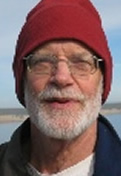 |
Kenneth Brower (USA) Fellow Kenneth Brower is the oldest son of the pioneering environmentalist David Brower. Ken's earliest memories are of the wild country of the American West. He began his career editing "Exhibit Format" books for his father at the Sierra Club and edited or wrote fourteen of these. For the past forty-five years he has been a freelance writer on environmental issues and natural history. His work has appeared in the Atlantic, Audubon, National Geographic, Smithsonian, and many other magazines. He is the author of The Starship and the Canoe, Wake of the Whale, A Song for Satawal, Realms of the Sea, Yosemite, Freeing Keiko, the Wildness Within: Remembering David Brower, and other books. He lives in Berkeley, California. |
|
(L.M.) Leslie M. Browning (USA) Fellow Leslie Browning is the award-winning author of eleven titles, TED Talker and Publisher. She grew up in the small fishing village of Stonington, Connecticut. In her writing, Browning explores the confluence of the natural landscape and the interior landscape. She is a convergence of her New England roots and the wide-sky, high-desert of the Southwest, where her heart is most at peace. In 2010, Leslie debuted with a three-title contemplative poetry series. These three books went on to garner several accolades including a total of 3 pushcart-prize nominations, the Nautilus Gold Medal for Poetry, and Foreword Reviews‘ Book of the Year Award. Balancing her passion for writing with her love of learning, Leslie has sat on numerous Boards, most-recently the Board of Directors for the Independent Book Publisher’s Association. She is a graduate of the University of London and a Fellow with the International League of Conservation Writers. In 2011, Browning opened Homebound Publications, one of the rising independent publishers in the country. In 2015 went on to establish Owl House Books as an imprint of Homebound Publications devoted to genre fiction. In 2017 she founded Little Bound Books, an imprint of Homebound Publications devoted to short form. She is Founder and Editor-in-Chief of The Wayfarermagazine. Browning has freelanced for several publications including Rhode Island Monthly, New Haven Magazine, Coastal Connecticut Magazine, and Edible Nutmeg. Recognized for her in-depth profiles, as an interviewer, Browning is known for her genuine desire to connect with her subject and the insightful questions she composes to delve into the mind of those with whom she speaks.She has interviewed dozens of notable figures such as Academy Award-Nominated filmmaker Tomm Moore, Peabody-winning host of On Being Krista Tippett, Emmy-winning Filmmaker Alan Cooke, the Standing Rock Water Protectors, and Sandy Hook mother Nelba Márquez-Greene. Look for Leslie’s powerfully-vulnerable memoir, To Lose the Madness: Field Notes on Trauma, Loss and Radical Authenticity. In this career-defining work, Browning explores the breaking point every mind has after finding her own limit during a gauntlet of traumatic events. Pulled out of this blast-crater moment in her life by a friend, she is brought away from the insanity and deep into the snowy Sangre de Cristo Mountains where, standing in front of a herd of wild buffalo, she comes face to face with the terms we all must come to surrounding the loss we face in this life. Offering no answers and seeking no pity, Browning lays herself bare in this radically authentic offering. She carries restricted subjects such as miscarriage, mental illness, and suicide out of the silence by offering her own private journey as an example of the power of transcendence. In early 2018, following the release of To Lose the Madness and the TEDx Talk she presented at Yale University’s TEDx Conference based on her own journey with successive trauma and search for transcendence, Browning founded the Radical Authenticity.Community website, a community of storytellers who, by sharing our own journey with emotional struggle, help to normalize mental illness and dispel the stigma surrounding it. She is currently working to complete a B.A. in Creative Writing with a double minor in Journalism and Psychology at Harvard University’s Extension School in Cambridge, Massachusetts. Visit her at http://www.lmbrowning.com to learn more. |
 |
Susan Bruce (USA) Fellow Bruce has spearheaded communications for numerous corporations and nonprofits including IBM, Conservation International, Turner Broadcasting, Time Warner and the 9th World Wilderness Congress. Bruce has created numerous press materials, white papers and essays on environmental issues and stewardship. She earned a Masters in Journalism and International Communications from the University of Florida. Bruce has lived, traveled and worked throughout the world and is multilingual. She is passionate about nature, conservation, culture, travel and the arts. She may be reached at via Email. |
| James Brundige (USA) Associate Thirty years in music and television have taken Brundige from the nightclubs of New York to the Amazon jungle and slopes of Mt. Everest. After studying film scoring at Berklee College of Music in Boston, he moved to New York. By night he played jazz and Latin music; daytimes were spent in recording studios and edit suites. At the same time Brundige was able to indulge in his love of the outdoors by shooting adventure and science films. Film expeditions included exploratory rafting, mountaineering in Alaska, the Andes and Himalayas, canoeing in the Amazon, and skiing in Antarctica. Brundige has shot and edited for PBS, BBC, NBC, ABC, BBC, Turner, Fox, Discovery, and National Geographic. Since moving to Colorado in 1994, he has focused on environmental documentaries. Most recently Forever Wild: Celebrating America's Wilderness--tells the tales of citizens who have decided what wilderness means to them and have dedicated time and energy in helping to protect these lands they love. |
|
|
Lynton Francois Burger (Australia) Fellow Lynton is a creative marine conservationist who has been writing and creating evocative underwater photo-art for thirty years. Born and raised in South Africa, Lynton has lived and worked on four continents, and currently resides in Byron Bay, Australia. Lynton started his career as a Natural History Editor for Struik Publishers in Cape Town and has since had his written and visual work published in magazines and online. Lynton is currently completing his first novel entitled She Down There. Set in Haida Gwaii - Canada, South Africa and Mozambique, the book is an underwater eco-romance with a strong marine conservation theme. She Down There is due for release in August 2018. As an environmental professional Lynton has published scientific papers, conservation management plans and hundreds of high level professional environmental/sustainability reports in more than ten countries, including co-authoring the national ten-year environmental management plan for the Seychelles (2000-2010) for the World Bank. Lynton holds a Masters degree in Ichthyology, an MBA and is an inducted member of the International Ocean Artists Society. Lynton also writes and creates images for the Ocean Agency, Caitlin Seaview Survey and was a minor contributor to the Netflix documentary Chasing Coral. |
| John Burton (UK) Fellow The founder (and CEO for 30 years) of the World Land Trust, John has also published and edited over 40 books, as well as much journalism and more recently blogs. He has also written scientific papers, and visited some of the more remote parts of the world. His particular interests are the Caucasus mountains, deserts and the Gran Chaco. He is also a Fellow of the Linnean Society, Royal Geographical Society, and the Royal Anthropological Institute. Email | |
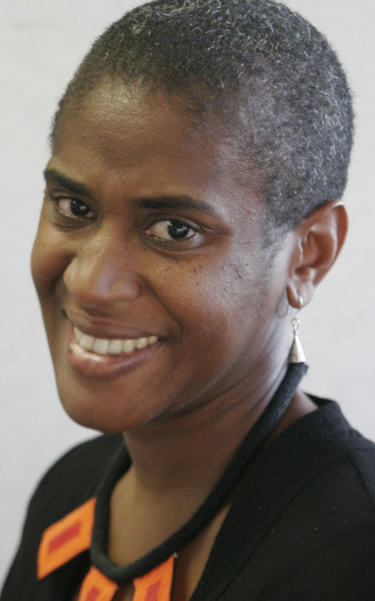 |
Donna Bryson (USA) Fellow Bryson is a longtime foreign correspondent who has reported from Africa, the Middle East and Asia. In 2012, she returned to the US, and is working as a freelancer based in Denver, Colorado. Email or Twitter @donnindenver. |
 |
Michael J. Caduto (USA) Fellow Caduto pioneered the use of storytelling and the arts for teaching environmental ethics. He has performed at national and international conferences, including storytelling and theater festivals, children's festivals, educational conferences, teacher conventions, conferences on cultural diversity and Native North American traditions, writer's workshops, literacy conventions, natural history festivals and conferences, bookseller conventions and more. He is the author of several books and more than 250 articles which have appeared in newspapers and magazines around the world. In 1984 Caduto founded a service called P.E.A.C.E.® -- Programs for Environmental Awareness and Cultural Exchange. P.E.A.C.E.® promotes understanding, awareness, appreciation and stewardship as the foundation for building a harmonious, sustainable relationship between people and Earth, and among the cultures of the world. Links to selected writing samples: his article inHaaretz, the Middle East’s largest daily newspaper, and a series of syndicated environmental newspaper column. Website Photo by Julie Smith |
 |
Nancy Campbell (UK) Fellow Campbell is a writer with a particular interest in the polar regions and water conservation issues. Her poetry collection Disko Bay (shortlisted for the Forward Prize for First Collection 2016) and forthcoming memoir The Library of Ice (Scribner UK) engage with the changing environment of northern Europe and the Arctic. She has conducted residencies at ecological and research institutions in Greenland, Iceland, Denmark and the US, and she is a Hawthornden Fellow. Her book How To Say ‘I Love You’ In Greenlandic: An Arctic Alphabet received the Birgit Skiöld Award in 2013. She is currently the UK's Canal Laureate. Website |
 |
Sarah Casson (USA) Fellow Casson is a Peter and Patricia Gruber Fellow in Global Justice of Yale Law School working with the WILD Foundation. Her work focuses on the International Union of Conserving Nature (IUCN)’s Protected Areas Category 1B (Wilderness) management guidelines. Her writing on conservation and climate change has appeared in SAGE Magazine and the Huffington Post. She holds a MESc from Yale School of Forestry and Environmental Studies and a BA from Grinnell College. She can be contacted via email. |
 |
Teresa Noemi Castaneda (Mexico) Fellow Castaneda has a degree in hydrobiology and is currently editing and translating a project that promotes stronger interactions between children and nature in order to nurture healthier children and environmentally friendly societies. Her fiction novel is in the process of submission to be published. It involves multiculturalism and environmental issues for young adult readers. Most of the stories and articles she writes involve contemporary, multicultural and conservation topics within adventure, contemporary, romantic and folklore genre.Castaneda also had the wonderful opportunity to teach students from kindergarden to high school: Marine Biology and Environmental Sciences in California, Theatrical Drama in Yucatán, and as an instructional aide, she supported a personalized reading program called Read Naturally in Florida. With more than 25 years of experience writing, translating, editing and narrating in English and Spanish for the private sector, ONGs, media, blogs, educational institutions and personal requests Castaneda has also worked as Director of the Technical Edition and Translation Department at Levine Fricke de Mexico, an engineering and environmental consulting firm. Her valuable experiences and contact with magnificent people along the way, have been instrumental to grow and broaden the extent of her goal of transmitting values that she believes are essential to the human kind, such as environmental consciousness, social awareness and global holistic conservation. |
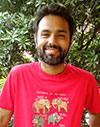 |
Rohan Chakravarty (India) Fellow Rohan is a cartoonist and illustrator from Nagpur and the creator of Green Humour, a series of cartoons on wildlife and conservation. Green Humour is the first series of comics from India to be distributed internationally by a major syndicate (Universal Press’ ‘Gocomics’), and appears periodically in wildlife magazines and newspapers. He also collaborates with organizations working on wildlife and conservation to produce illustrated awareness material. He has won awards by the UNDP, Sanctuary Asia, WWF International, Royal Bank of Scotland and the Green Literature Festival for his work. He has authored five books, including Green Humour for a Greying Planet and Naturalist Ruddy, published by Penguin. His cartoons have been displayed at COP26 and COP27. Rohan is notorious for rolling up into a ball like a pangolin to avoid answering the phone or meeting people." |
 |
Salish Chandra (Kenya) Fellow Having been born and raised in Kenya, I have always held a deep respect for the environment and an insane passion for both cultural and ecological conservation. At the impressionable age of 15, a burning pyre of elephant tusks left an indelible mark on my heart and mind. When I returned to Kenya in late 2012, at the height of another poaching crisis, I felt that I had to do everything possible to inspire change and make a difference. I left my corporate career behind and delved into the conservation world with a focus on using my skills to help conserve wildlife. I am rebel with too many causes – an activist, a conservationist and an adventurer. I firmly believe that social justice and bringing the voice of the everyday citizen into conservation is key to the future of wildlife in Kenya. I am currently the Director of Strategy Coordination and Knowledge Management at Lion Guardians, founding member and Managing Director of KUAPO Trust, Strategic Advisor to Global March for Elephants and Rhinos and a board member of Local Ocean Conservation. email. |
 |
Kimberly Christensen (USA) Fellow Christensen is a former midwife turned environmental activist, who works with the hope that our beautiful planet will be healthy and whole for the generations to come. Through her affiliation with CoolMom.org, she has used the written word to teach families how to reduce their carbon footprint and the amount of waste they generate. Her issue paper on Car Seat Recycling paved the way for the development of several successful children’s car seat recycling programs. Her writing has appeared in The Seattle Press, Seattle’s Child Magazine, and on her blog. An avid reader of science fiction, she is now trying her hand at writing a climate fiction novel of her own. She is a member of the Puget Sound Writers’ Association and the Society of Children’s Book Writers and Illustrators. Christensen lives in Seattle, Washington. |
 |
Lauren Colegrove (USA) Fellow Lauren is the editorial manager for Rainforest Trust, a U.S.-based conservation nonprofit organization which helps safeguard tropical forests and endangered wildlife around the world. She is responsible for developing and editing engaging content that promotes the protection of global biodiversity for print and online news articles, annual reports, and other publications. A graduate of Villanova University, Lauren previously worked as a journalist, proposal writer, and newspaper advisor with students in Ghana and Bangladesh while establishing school newspaper programs. When she’s not writing, Lauren enjoys reading poetry, playing board games, and going on long walks with her collie. She can be reached via Email |
 |
Gail Collins-Ranadive (USA) Fellow Collins-Ranadive writes out of a deep connectedness with the natural world. Her MFA thesis for The American University was set in the northern Virginia landscape where she then lived. Now, as a retired Unitarian Universalist minister, she creates and leads retreats and workshops on appreciating Nature as a Wisdom text that both inspires awe and invites action towards eco-justice. Her workbook, Light Year, A Seasonal Primer for Spiritual Focus, presents readers with focus questions on insights from each of the four seasons and concludes with a blueprint for ecological awareness and action. The most recent of her five published books (two for children), Chewing Sand, An Eco-Spiritual Taste of the Mojave Desert, is set in the deep time and fragile ecosystem around Las Vegas, Nevada USA, where she lives. She spends summers in Denver, Colorado where she writes, explores dinosaur sites, and hikes into the mountains to consult with her spirit-flower the Columbine that is threatened by the changing climate. Her website. |
 |
Cassandra Conger (USA) Associate Conger is an environmental educator/naturalist. Currently writing about conservation issues, she plans to move to Florida to teach and work with Manatees. Influenced at a young age by a stuffed animal and book she was given on Manatees, Conger has dedicated her life to their protection and to increase the awareness of their plight. |
 |
Jeffrey S. Cramer (USA) Fellow Cramer is the Curator of Collections at the Thoreau Institute at Walden Woods and has published several works for Yale University Press, including Walden: A Fully Annotated Edition and I to Myself: An Annotated Selection from the Journal of Henry D. Thoreau. He has consulted on many projects and publications, appeared on NPR's "On Point with Tom Ashbrook" and on C-SPAN's Book-TV, and spoken to thousands on the life and legacy of Thoreau. He has two forthcoming books--The Portable Thoreau for Penguin and The Literary Way: Selected Essays of Henry David Thoreau for Yale. His work has appeared in Ecotone, Snowy Egret, The Massachusetts Review, among others. His essay, "The Toad not Taken," will soon be out in the anthology, Companions in Wonder: Reflections on Children and Adults Exploring Nature, for MIT Press. His most recent book is The Quotable Thoreau for Princeton University Press. Website |
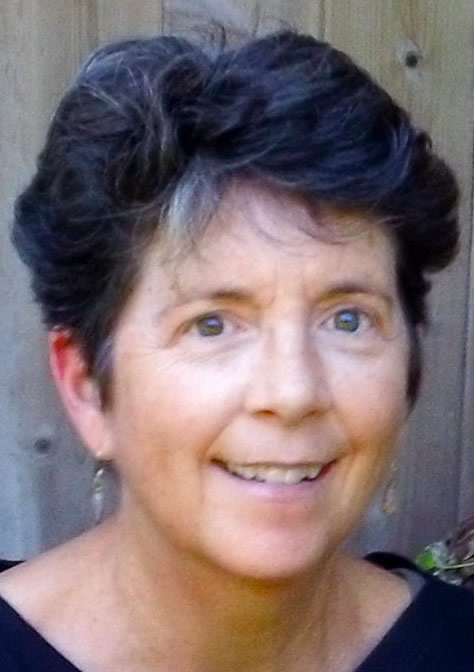 |
Betsey Crawford (USA) Fellow Betsey Crawford spent her years as a landscape designer convincing people to return to their literal roots and plant native plants. Taking this passion on the road after retirement, she roamed the west, photographing wildflowers (and everything else) everywhere she went, from the Mexican border to Alaska, and the Pacific to Missouri. Settled in California for the time being, just north of San Francisco, she is working with the Pachamama Alliance to spread the word about Paul Hawken’s Project Drawdown to reverse global warming. She posts her photos and writes about wildflowers, ecology, botany, spirit, and all things nature on her website, The Soul of the Earth |
 |
Diane Daniel (USA) Fellow Diane Daniel writes about travel, sustainable agriculture, the environment, artists, and activists for consumer publications. She focuses on what she calls preservation travel, that which preserves and sustains communities, land, buildings, and ways of life. She is the author of the guidebook Farm Fresh North Carolinaand her work has appeared in publications including the New York Times, Boston Globe, Washington Post, News & Observer, Budget Travel, National Geographic Traveler, and Southern Living. She lives in Durham, North Carolina. For more information or to reach her: website, blog or Email. |
 |
Elizabeth Darby (USA) Fellow Darby is an award-winning national and international journalist writing on issues of the environment, conservation, and social issues for over 25 years. She began her career as a journalist at the United Nations where she covered environment, women, and development issues. She was tapped to join Newsweek to open the Rocky Mountain Bureau in Denver, Colorado where she specialized in environment as well as covered general assignments for Newsweek and Newsweek International. In 1984, she received a DeKalb National Press award for her reporting on drought and agriculture. She also received national recognition for her coverage of the plight of the homeless and for her reporting several news covers on the EPA. She leftNewsweek to write three books: an anthology on the American landscape; the public lands of the US; and edited a volume of South African children’s wilderness diaries led by the work of Ian Player and his Wilderness Foundation. During this time she also served as the Chief Public Affairs Attaché for the Fourth World Wilderness Congress. After undertaking an extended journey through South Africa's wilderness and parks to begin a fourth book, she joined Joe Daniel to serve as Managing Editor BUZZWORM: The Environmental Journal. Under her creative editorial direction and with Daniel's stunning photographic vision, she as well as the magazine won numerous national awards including a World Hunger Year Media Award for a series of feature articles she developed entitled "Of Pollution and Poverty.” Just after Glasnost was proclaimed by Mikhail Gorbachev in 1989, Darby was invited to the Soviet Union to cover and speak at the country’s first-ever national summit on the environment and agriculture; she was the only US journalist permitted to attend. She is at work on several new titles including the book and blog Earth: Sacred/Possession; Training Two, a book about learning the language of litter-mates; Prophecy, a work of EcoFiction; and Return Voyage, a memoire of land and meaning. Her latest book, Here You Begin, was published in 2012. |
 |
Chad P. Dawson (USA) Academic / Scientific, Founding Fellow Dawson is professor and former chair of the Department of Forest and Natural Resources Management, College of Environmental Science and Forestry at the State University of New York, USA. He is managing editor of the International Journal of Wilderness and co-author of Wilderness Management, 4th edition. Dawson is also a member of The WILD Foundation board of directors. |
 |
Daud Abdi Daud Dhmbil (Somalia) Fellow Dhmbil is an active, prominent Somali journalist. Since 2000 he has worked with many different radio stations and newspapers throughout the country. Dhmbil was instrumental in the creation of the Somali Coalition for Freedom of Expression (SOCFEX) and was a Press Freedom Activist from 2007 to 2010 at The Somali Journalist Rights Agency (SOJRA) as well as Science, Health, Agriculture and Environmental Reporter at the National Association of Somali Science and Environmental Journalists (NASSEJ) now known as Somali Media for Environment, Science, Health and Agriculture (SOMESHA). Dhmbil is the Secretary General of the African Federation of Environmental Journalists (AFEJ) and the Somali Media for Environment, Science, Health and Agriculture (SOMESHA). He is currently a member of the International Federation of Environmental Journalists (IFEJ), the Network of Climate Journalists in the Greater Horn of Africa (NECJOGHA), Arab Science Journalists Association (ASJA), Climate Change Media Partnership, Biodiversity Media Alliance, as well as an Associate Member of the Foreign Correspondents Association of East Africa. Dhmbil is also a correspondent for New Science Journalism Magazine and can be reached via Email. |
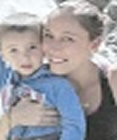 |
Ana Dominguez (USA) Founding Fellow Domínguez obtained a BA in International Relations, with a special focus on foreign economy and the environment, from the Universidad Iberoamericana. Her passion regarding all environment-related topics began with an internship at the Ministry of Foreign Affairs in Mexico. Ana is an official voluntary spokesperson regarding Climate Change issues since her training with Al Gore in 2009. She was also Special Project Manager for WILD 9 and oversaw several projects (i.e. National Geographic, Wild Wonders of Europe and Corredor Biológico Mesoamericano photo galleries). She's currently the International Fundraiser Coordinator for Reforestamos México, A.C., and the Social Media Manager for the Gulf of California Marine Program at Scripps Institution of Oceanography in which she drives and executes all online publishing and engagement initiatives. |
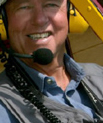 |
Paul Dutton (South Africa) Fellow Paul Dutton is an ecological consultant. Born in Johannesburg in 1933 he worked in the family plastics engineering firm. But a 1953 chance encounter with Ian Player, South Africa’s greatest conservationist, led to a career in conservation. Dutton, along with his plane the Spirit of Wilderness, was involved in stewardship during the 1960s and 70s in South Africa’s reserves of Lake St. Lucia, iMfolozi, and Ndumo. Then later in Mozambique’s Gorongosa National Park, Zinave National Park, and the Bazruto Archipelago. At the age of 55 he acquired a Master’s degree in Coastal Management from the University of Newcastle-upon-Tyne in England. |
 |
Cheryl Lyn Dybas (USA) Fellow Cheryl Lyn Dybas, a science journalist and ecologist, brings her passion for wildlife and conservation biology to award-winning writing for National Geographic, Ocean Geographic, Canadian Geographic, Natural History, National Wildlife, BioScience, Yankee and Northern Woodlands, among other publications. She is a Field Editor at Ocean Geographic; a Contributing Writer at Oceanography; and the winner of a Canadian National Magazine Award, gold and silver awards from the International Regional Magazine Association, and gold awards from the Minnesota Magazine and Publishing Association. She is also a featured speaker on science journalism and conservation biology at conferences, museums, universities and other venues, and serves on the committees of organizations such as the Association for the Sciences of Limnology and Oceanography and Ecological Society of America. She can be reached via Email. |
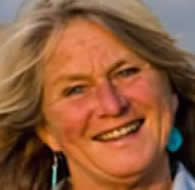 |
Gretel Ehrlich (USA) Founding Fellow Ehrlich was born on a horse ranch in California and was educated at Bennington College and UCLA film school. She began writing fulltime in 1978 after the death of a loved one. Annie Dillard praised Ehrlich’s book The Solace of Open Spaces, saying: “Wyoming has found its Whitman.” Ehrlich has written several books including Heart Mountain; Islands, the Universe, and Home; Yellowstone: Land of Fire and Ice; and John Muir, Nature’s Visionary as well as essays, short stories, and poems. Her work has appeared in Harper’s, the Atlantic, The New York Times Magazine, The Washington Post, Time Magazine, Life, National Geographic Adventure, National Geographic Traveler, Outside, and Audubon, among others. She has won many awards for her writing including the National Endowment for the Arts Creative Writing Fellowship, a Whiting Foundation Award, A Guggenheim Fellowship, the Harold B Vurcell Award at the American Academy of Arts and Letters, and the 2017 Wilderness Writing Award. |
 |
Lisa Eidson (USA) Fellow lisa Eidson is the Wilderness Information Specialist for the University of Montana’s Wilderness Institute, in Missoula, Montana. She manages all aspects of a high-profile wilderness information websitewww.wilderness.net and companion social network connect.wilderness.net and serves as a social media and e-learning consultant for the United States federal government. She has an undergraduate degree in journalism and worked for several newspapers, both as a writer and graphic designer, before beginning her career in information technology. For the almost ten years since, she has authored mostly web content, though her recent graduate studies included publications and speaking opportunities on barriers to e-learning for wilderness management professionals. Other articles she writes on social media, social networking, and e-learning in government appear periodically in the International Journal of Wilderness. She may be reached via email. |
 |
Mark Entwistle (UK) Fellow Entwistle has been a professional full-time newspaper journalist since 1987. He has had a life-time interest in ecology, wildlife conservation, environmental protection and animal welfare. While having to cover a multitude of subjects for the newspapers and magazines he writes for, his personal interest has always been topics involving the natural world. This has seen him writing extensively on the natural flora and fauna of his home region in southern Scotland. Recent features included enquiries into the native brown trout which inhabit the River Tweed system, one of Scotland's premier angling water systems, and what the future holds under climate change for this iconic species. Entwistle has also written extensively on the on-going controversies surrounding the proliferation of onshore wind farms in the Scottish Borders region. Issues such as badger-baiting cruelty, the breeding success of ospreys, the rediscovery of a species of butterfly once thought extinct in this part of the UK and a raft of other issues make up an eclectic portfolio of work compiled over a quarter-of-a-century covering his 'patch'. His intention is to bring much more in-depth environment-themed reporting into the various publications he works for, alongside the growing use of online video reports to bring such topics to a wider audience. |
 |
Orietta Estrada (USA) Fellow Estrada is a graduate student studying environmental biology and geographic information systems in the United States. Her interests include ornithology, conservation, anthropogenic impacts to the environment and science writing. She has a B.A. in English and an M.A. literature. She aims to use writing and photography as ways to engage members of the public not working in scientific fields of study with conservation issues. She is a freelance science writer and blogger. Her portfolio websites can be viewed at AnimalPerspectives.com and at OriettaEstrada.com. |
 |
Justin Fenech (Malta) Fellow Justin is a novelist, poet and short-story writer from Malta, where he has sought to raise the public consciousness about issues concerning the environment and man’s connection with nature. Apart from writing novels, one of which, The Last Adolescence, is a pure conservation novel, Justin has given a series of talks entitled The Biology of Art – delivered to writers, scientists and the general public, dealing with the relationship between science and art. Justin’s writing has sought to place nature – and the scientific method that unveils its workings and strives to preserve it – at the forefront of the literary scene. email and blog |
| Tyler Finley (Canada) Academic Finley is a professional writer focused on developing environmental education materials for youth; encouraging young people to develop an active interest in biodiversity and issues pertaining to biodiversity loss, from climate change to habitat degradation. He has also researched and written about conservation issues for the Robert Bateman Get to Know Program, raising awareness about conservation issues and allowing youth to take part in hands-on learning about wildlife in Canada. Finley organized a major environmental conference (June 2010) and a coast-to-coast BioBlitz campaign. The BioBlitz provided tens of thousands of youth with vital opportunities to develop their understanding of biodiversity, working side-by-side with conservation experts from Parks Canada, Nature Canada, and other organizations. In addition, his work also addresses sustainability and new techniques for reducing the impact of the wine industry on wildlife and local ecology. Finley assisted in the creation of a UBC report to improve planting and harvesting techniques in the British Columbia wine industry (ultimately applicable to vineyards across the world). |
|
| Dave Foreman (USA) Founding Fellow (Deceased) Foreman was raised and trained in a very conservative family. He started working in the environmental field, first with the Wilderness Society and then with the Nature Conservancy. In 1980, convinced that current environmental organizations were not doing enough, he cofounded the radical environmental movement Earth First. He is now executive director of The Rewilding Institute. Among his writings, Foreman is the author of The Lobo Outback Funeral Home, a novel; Confessions of an Eco-Warrior, a collection of essays; and Rewilding North America: A Vision for Conservation in the 21st Century. He also co-authored The Big Outside with Howie Wolke. |
|
 |
Jim Fowler (USA) Fellow One of the world’s best known naturalists, has presented information about wildlife and wilderness to the American public on television for more than 40 years. He first served with Marlin Perkins as co-host and later became host of Mutual of Omaha’s Wild Kingdom, and also hosted Mutual of Omaha’s Spirit of Adventure. Those programs received many awards including four Emmys and an endorsement by the National PTA for family viewing. In addition to ongoing appearances on many network talk shows, Fowler was the wildlife correspondent for NBC’s Today Show since 1988 and he was a regular on the Tonight Show Starring Johnny Carson. Jim Fowler is actively involved in a nationwide conservation education program conducted at the local community level. This includes personal appearances in numerous cities each year to share conservation related messages. Jim Fowler is president of the Fowler Center for Wildlife Education in New York and serves as the honorary president of the Explorers Club. In 1994, he received the prestigious Explorers Club Medal, the club's highest honor. Fowler also sits on the boards of Friends of Conservation, Dian Fossey Gorilla Fund and Global Communications for Conservation (GCC). |
 |
Rachel Ann French (UK) Associate With one year left of a BSc Degree in Animal Conservation Science (based in Cumbria, NW England) French has begun to specialise in the field of Vulture and Raptor Conservation. While spending time on the coast of Gambia, West Africa she undertook a preliminary study into Vulture Survey methods and hopes to continue this as part of her dissertation. She will spend most of 2013t in South Africa working with a Vulture Conservation group. Much of French's writing and blog work aims not only to recount her own experiences but to highlight problems facing certain species. French hopes that her style makes reading enjoyable not only for like minded people but for the general public. She has articles published in Falconry & Raptor Conservation Magazine, along with her blog and a new, innovative university magazine. |
 |
William H. Funk (USA) Fellow Funk is a writer, a documentarian, and an environmental lawyer. He has a reputation for elucidating complex legal, policy and scientific matters in illuminating and compelling prose. His areas of expertise include endangered species and habitat preservation, hunting and fishing, federal lands management, wildlife crime, natural and human history, climate change, animal cruelty, wetlands mitigation, conservation easements, environmental law, sustainability, wilderness issues, traditional cultures, and rural living and the rural economy. Funk has worked with numerous environmental NGOs and federal agencies and is a skilled and eager naturalist. He is a member of the Society of Environmental Journalists, who recently awarded him a traveling fellowship to its annual conference, and to the Outdoor Writers Association of America. The Society also awarded Funk their Madson Fellowship for excellence in craft in 2011. For more information or to contact him visit. |
|
Jeff Gailus (USA) Fellow Gailus has been writing about science, nature and the people and politics that will determine the fate of planet earth. He has a Masters in Science in Environmental Studies and has taught writing at the University of Oregon and the University of Montana. An award-winning writer from Calgary, Alberta, he is the author ofThe Grizzly Manifesto (a finalist for the prestigious Alberta Readers' Choice Award) and numerous magazine articles. His latest book, Little Black Lies, will be published by Rocky Mountain Books in November 2012. Jeff's writing has been featured in a variety of Canadian and international magazines and newspapers including Alberta Views, Alberta Venture, The Calgary Herald, Canadian Geographic, Explore, The Globe and Mail, Hooked on the Outdoors, and Western Living. Gailus has also worked with non-profit organizations including the Alberta Ecotrust Foundation, David Suzuki Foundation, Defenders of Wildlife, Natural Resources Defense Council, TELUS World of Science-Calgary, Wild Rockies Field Institute, and the Yellowstone to Yukon Conservation Initiative. He has also received the Associated Collegiate Press Award, the Alberta Foundation for the Arts, and a Doris Duke Conservation Fellowship. He currently lives in Missoula, Montana and spends a significant amount of time in the mountains and foothills of Alberta. |
|
Eduardo Galicia (Mexico) Fellow Galicia is currently a PhD Candidate for a Doctoral Degree in Marine and Coastal Management at the Centro de Investigación y Estudios Avanzados (CINVESTAV) del Instituto Politécnico Nacional (Mérida, Yucatán, México). With a MS degree in wildlife management at the State University of New York College of Environmental Sciences and Forestry, his research has focused on tourism management in natural protected areas. His experience with flamingos and tourism started with his master thesis on the impact of motorized tour-boats on Caribbean Flamingo (Phoenicopterus ruber) behavior at Celestún. He has over 20 years of experience working in the natural protected areas of the Yucatan Peninsula and Northern Central America, promoting sustainable tourism, working at Nature Guide training programs and designing nature-based tourism products, such as routes, rural community centers, public use plans, and nature trails. With expertise on ecological economics and valuation of natural resources for recreational purposes, public visitation, and interpretation of nature, his PhD thesis is focused on the total economic value of the Caribbean Flamingo at the northern coast of the Yucatan Peninsula. He is member of the Mesoamerican Ecotourism Alliance, the Mexican Ornithological Society and member of the IUCN Flamingo Specialist Group. Eduardo is also a dedicated writer on environmental issues, a poet, storyteller and a convinced believer in linking art with nature conservation. He has published in local (Yucatan & Mexico) newspapers and magazines, as well as chapters in books on coastal management and tourism, and collaborations in several scientific and non-formal publications. He lives in Merida, Yucatan, and spends half of his time in Mexico City. email Photo by Klaus Nigge |
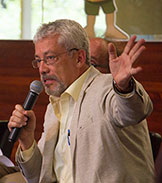 |
Carlos Galindo-Leal (México) Fellow During grad studies in Ecology at the University of British Columbia, Canada Galindo-Leal slowly evolved from writing scientific articles to writing for the general public. He's written several books including Of two worlds: The frogs toads and salamanders of the Yucatan Peninsula, a bilingual book chosen as recommended reading by the Association for Library Service to Children (ALSC). And coauthored Danaids, the wonderful Monarch butterflies (available in Spanish also) and The white-tailed deer of the Western Sierra Madre, ecology, management and conservation (only in Spanish), and coedited The Status of the Atlantic Forest Hotspot: The Dynamics of Biodiversity Loss, and Mexico´s natural heritage: 100 hundred success stories. Recently he participated with the texts on two coffee-table books on Jaguars: Panthera onca and Jaguar. For the last couple of years, Galindo-Leal has written the monthly section Mexicans by nature for the magazine Mexicanisimo, and has been working as Scientific Communication Director of the National Commission on the Knowledge and Use of Biodiversity (CONABIO). Their websiteBiodiversidad Mexicana was recently presented with an award for its contents by QUO + Discovery Channel. Galindo-Leal is part of the advisory committee of National Geographic en Español and writes short articles for the magazine. |
|
Carole Gallagher (USA) Fellow Gallagher first began her odyssey on the nuclear trail on March 28, 1979, the day of the Three Mile Island accident. Noting beads of sweat on the brow of Walter Cronkite as he reported on it, she packed her car, ready to travel far from the potential plume that could soon have enveloped her home town, New York City. Shortly after that, she began research on the effects of atmospheric nuclear tests in Nevada, which had been an interest since childhood "duck and cover" maneuvers at her grammar school in the 1950s. Wondering what really happened to people downwind of the Nevada Test Site, she began research at Albert Einstein College of Medicine in New York with a library pass supplied by a doctor who taught there. Recently declassified documents from the Atomic Energy Commission revealed that federal authorities considered those people "a low-use segment of the population," much the same as test site workers and atomic veterans exposed at close range to nuclear bombs as they detonated in the open air. Abandoning her life as a successful photographer and writer, she moved from downtown Manhattan to southern Utah, a spot considered most damaged by fallout, to observe and document what she called "American Ground Zero." After a dozen years on the road, based in Utah,American Ground Zero: The Secret Nuclear War was published by The MIT Press. A slightly abridged paperback edition was published by Random House the next year, thanks to Harold Evans, “as a personal act of conscience.” There was a companion traveling exhibition of this documentary organized by the International Center of Photography in New York with seven venues nationally and numerous others abroad. Gallagher has been working on book projects concerning the environmental destructiveness of war in the Persian Gulf (1991), another on nuclear testing in the West, and monographs on similar issues connecting health with environmental pollution. She writes occasional pieces for her blog and can be reached on Facebook. |
 |
Rodrigo García (Uruguay) Fellow García leads the Organization for Cetacean Conservation (OCC), one of the first citizen organizations to promote coastal and marine conservation in Uruguay. He focuses on restructuring the socioeconomic forces that lead to environmental problems and on building a coalition of environmentalists, local citizens, tourists, businesses and government that co-develop solutions with both environmental and economic benefits. In 2007, after a four-year campaign, the OCC succeeded in reinstating Uruguay in the International Whaling Commission after a 22-year absence. García worked to get Uruguay included in the World Tourism Circuit dedicated to Whale Watching. To bolster protection of the coast as a whole, he developed a “whale route” that integrates marine and coastal tourism. García may be contacted at email. For more information about OCC, please visit the website. |
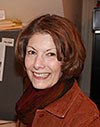 |
Gail Goldberger (USA) Fellow Goldberger has a well-honed expertise in nature, ecology, and environmental issues. She is published in the Chicago Sun-Times, Chicago Wilderness Magazine, Illinois Issues Magazine, Natural Awakenings--Chicago and Chicago North Shore, Travelers’ Tales Guides: Grand Canyon and Active Woman Vacation Guide. Goldberger has written and edited monthly, bi-monthly and quarterly newsletters and informational brochures for organizations including the Chicago Audubon Society, The Morton Arboretum, the Chicago Park District, and the Southeast Environmental Task Force. Her work also spans healthcare, education, and human services. Learn more about her at www.linkedin.com/in/ggoldberger. |
 |
Alan Gregory (USA) Fellow Gregory writes essays and columns on natural resource and conservation policies, players and issues. A retired lieutenant colonel of the Air Force, Gregory hikes forests, bogs, and wetlands in his home state of Vermont and throughout New England and Pennsylvania. He dedicates much of his free time to volunteering for various organizations including the Hawk Mountain Sanctuary in Pennsylvania, The Nature Conservancy (Penn. chapter), and the North Branch Land Trust of Pennsylvania. He is a past member of the Outdoor Writers Association of America and a life member of the Air Force Public Affairs Alumni Assn. For 16 years Gregory took part in the federal Breeding Bird Survey and has served as compiler for the North American Butterfly Association summer counts in Pennsylvania and Vermont. Gregory has served on the board of Audubon Pennsylvania, was president of the Pennsylvania Society for Ornithology and was a co-founder of the Pennsylvania Wildlands Recovery Project. He has won several media conservation awards and was named volunteer of the year (science category) Pennsylvania chapter of The Nature Conservancy. His blog. |
|
Jay Griffiths (UK) Fellow Griffiths is the author of Wild: An Elemental Journey, winner of the inaugural Orion book award, winner of the Barnes and Noble Discover award for best work of non-fiction by a new author in the States, shortlisted for the Orwell prize and the World Book Day award. Her work as been given endorsements by Barry Lopez, Gary Snyder, John Berger, Bill McKibben and others. Website Photo by Edward Parker |
 |
Jessica Groenendijk (Peru) Fellow Jessica is a Dutch biologist turned conservationist and writer. She was born in Colombia, has lived in Burkina Faso, Holland, Tanzania and England, crossed the Atlantic Ocean twice on a sail boat between the ages of 6 and 10, worked with black rhinos in Zambia and giant otters in Peru, and currently lives in Lima. She loves camping in wild places, hates plastic and planned obsolescence, and is a big believer in reconnecting children and their families with nature. She fuses her work in conservation and her personal experiences of wildlife and wild places with her passion for words and photography to help deepen our connection with, and empathy for, nature. Her blog Nature Bytes was recently Highly Commended in the International Category of the 2015 BBC Wildlife Blogger Awards. She is a Member of The Society of Authors and is currently working on a book on giant otters and their conservation Please visit her author web site and her Facebook page. |
 |
Verena Gruber (Austria) Associate Verena Gruber is an Austrian Geographer and Environmentalist with a strong emphasis on wilderness and natural dynamics in mountainous regions. Born and raised in the heart of the Austrian Alps, Verena decided early to make a career out of her passion for nature. Studying geography, with a focus on mountain and climate geography, gave her a sound basis for working in nature conservation. She recently joined the European Wilderness Society, being responsible for international exchange projects and the implementation of the European Wilderness Quality Standard and Audit System (EWQA) together with Vlado Vancura, Deputy Chairman of the European Wilderness Society. This area of responsibility enables Verena to combine her love for traveling with her profession. January-March, 2018 she travelled through the US to establish and foster co-operations and exchange projects as well as to exchange knowledge about wilderness stewardship and conservation. Contact Information: Mail; Skype: verena.m.g. |
 |
Sanjay Gubbi (India) Fellow Sanjay works mainly on tiger and leopard conservation in Karnataka state, southern India. He bridges a strong understanding of the socio-economic and political aspects of conservation with its scientific bases. His recent work, focusing on the Western Ghats of Karnataka, India has strived to reduce the impact of habitat fragmentation, collaborated with the Karnataka Forest Department towards an expansion of protected areas, helped institute new social security and welfare measures for forest watchers and guards. On these projects, Sanjay works with a wide cross-section of people, including policy makers, media and social leaders. He writes extensively both in English and regional language Kannada, and is especially keen on popularising wildlife conservation in local languages. His two books in Kannada have been very popular. Sanjay also conducts training workshops for print and electronic media and conservation enthusiasts, among others, to expand support for and enhance public understanding of conservation. He may be reached via email . |
| Amy Gulick (USA) Founding Fellow Gulick is an acclaimed nature writer and photographer. Her work has received numerous honors including: the Voice of the Wild Award from the Alaska Wilderness League; a Lowell Thomas Award from the Society of American Travel Writers Foundation; the Daniel Housberg Wilderness Image Award from the Alaska Conservation Foundation; and the Philip Hyde Grant and Mission Awards from the North American Nature Photography Association. Her book, Salmon in the Trees: Life in Alaska's Tongass Rain Forest, is the winner of two Nautilus Book Awards and an Independent Publisher Book Award. Her stories and images have been featured in Sierra, Audubon, Outdoor Photographer, National Geographic NewsWatch, and other publications. She is a national speaker on conservation topics including Alaska's Tongass National Forest, the Arctic National Wildlife Refuge, wilderness, and wildlife. Website |
|
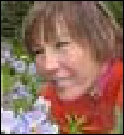 |
Kat Haber (USA) Associate Haber's grandfathers taught her to respect the Earth. She has created award-winning gardens, innovative programs (Betty Ford Alpine Gardens in Vale, Colorado USA and the Center for Alaskan Coastal Studies in Homer, Alaska USA), has taken risks (freestyle aerialist and hot air ballooning) pioneered new paths (one of the first women attending the US Air Force Academy), and dug deep within via paths that characterize the soul serenity found in wild places. Haber brought young leaders to WILD 9 (the 9th World Wilderness Congress in Merida, Mexico, 2009) that infused a sense of urgency, lightheartedness, and idealism to save at least half of the Earth's wild places. |
 |
Greg Harmon (USA) Fellow Harman is an independent journalist based in San Antonio who has been reporting on environmental issues since the late '90s. His writing has appeared in the Austin Chronicle, Dallas Morning News, Guardian UK, Environmental News Service, Texas Climate News, Yes! Magazine, Texas Observer, and elsewhere. His work has been honored by the Association of Alternative Newsweeklies, Houston Press Club, Society of Professional Journalists, Lone Star Chapter of the Sierra Club, Public Citizen Texas, Associated Press Managing Editors, and others. You can reach him via Email. |
| Kate Harris (Canada) Associate Harris is a young wilderness conservationist, writer, adventurer, and photographer who has explored and written about some of the harshest places on all seven continents, with a focus on life at high latitudes and high altitudes. Harris studied biology and geology as an undergraduate Morehead Scholar at the University of North Carolina. Then attended the University of Oxford on a Rhodes Scholarship, writing her Master's thesis on transboundary conservation and conflict resolution, with a focus on the Siachen glacier dispute. Earning a second Master's degree in earth and planetary sciences at MIT. Now a freelance writer, with feature articles published in The Explorers Journal, Wend magazine, and Outpost magazine, among other publications. Harris is also an environmental and biodiversity reporter for the Earth Negotiations Bulletin, published by the International Institute for Sustainable Development. She’s a member of the IUCN-WCPA as well as the IUCN Transboundary Conservation Specialist Group. Read about her field research expedition along the Silk Road...by bike. |
|
 |
Laura Hartstone (USA) Fellow Hartstone enjoys covering stories that captivate the spirit of conservation. She currently lives in Tanzania and writes for organizations including the East Africa Wildlife Society (SWARA magazine), Frankfurt Zoological Society (blogs and magazine articles), and several other local publications. She is the Founder of the Peaks Foundation, an initiative to raise funds for organizations around the world by engaging women in adventure challenges. She is the simultaneously completing a Masters Degree in Wildlife, Biodiversity and Ecosystem Health with the University of Edinburgh Website |
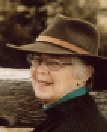 |
Linda Hasselstrom (USA) Founding Fellow Born in Texas, Linda Hasselstrom moved to South Dakota when she was four. She is a rancher, a writer, a teacher, and an environmentalist. Hasselstrom has written for newspapers, founded a magazine, and edited anthologies of the writings of other women. Her poetry and her essays have been widely praised and won her many awards, including the South Dakota Author of the Year award, National Endowment for the Arts fellowship in poetry, and a South Dakota Arts Council literature fellowship. In 1990, she became the first woman to win a Western American Writer award from Augustana College in Sioux Falls, South Dakota. She conducts writing retreats at her ranch home, Windbreak House, in western South Dakota. Website |
 |
Ruth Heil (USA) Fellow Heil never dreamed she'd become a writer; passion steered her toward it. “To inspire the love of nature and a passion for its protection," is exactly why she puts her feelings out there, exposing them to the publisher's rejection, the adversary's ridicule, and the inner critic's cruelty. She bravely writes op-eds, essays, and creative nonfiction in support of individuals who care. Her Back to Basics blog -- updated weekly since 2008 -- is a mishmash of thought-provoking posts designed to get conversations started. With a knack for presenting topics in Plain English, she translates big issues and scientific knowledge into terms the everyday person can understand. Her monthly Green Pages column appeared in the former Eastern Pennsylvania Business Journal and her features have been published in Pennsylvania Magazine, Lehigh Valley Marketplace, Blue Ridge Outdoors online and more. Writing from rural Pennsylvania, when she needs inspiration or support, she heads to the woods. She is currently working on a book that encourages others to do the same. Website |
| Morgan Heim (USA) Fellow Heim is a Colorado-based multimedia journalist, holding both a B.S. in zoology and M.A. in environmental journalism. Many of her stories focus on the uncommon nature of the human/wildlife connection from prairie dogs living in Denver’s ditches to border agents restoring wetlands as a way to fight crime. She has worked with Smithsonian magazine, High Country News, the Nature Conservancy magazine, OnEarth.org, Art for Conservation and the National Wildlife Federation. Along with freelancing, she writes for the Cooperative Institute for Research in Environmental Sciences (CIRES), where she translates the language of science into stories for the lay-person. Because there are too many stories that need telling, Heim also runs the increasingly popular blog The Nature Files, sharing stories of ecological discovery and environmental issues. Heim spoke about blogging with a purpose at the WILD9 Writers Seminar in Merida, Mexico. |
|
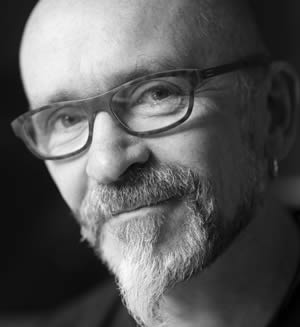 |
Mike Hembury (Germany) Fellow Mike is a self-described “Anglo-Berliner”. Originally from Portland, England, he moved to West Berlin just before the fall of the Wall, and has been there ever since. He writes a regular column, primarily on climate change and related themes, for the online literary and political magazine The Wild Word, as well as journalistic pieces for international publications such as ZMag, Green Left Weekly and Huffington Post. His first novel – New Clone City – was published this year, and, although its setting is very definitely urban, environmental themes play a significant role. Mike is also very proud to have had an autobiographical piece included in the 2018 “Terra” edition of Dark Mountain. In addition to writing, Mike is also a sailor, musician and photographer, and uses Twitter a lot (@schnappz) to promote environmental issues. Further information on Mike’s writing is available on his website. |
 |
John C. Hendee (USA) Fellow (deceased) Former Dean of the University of Idaho, College of Natural Resources (1985-94) and Director of the University’s Wilderness Research Center (1995-2002) in Moscow, Idaho, USA, Hendee taught and lead research on the use of wilderness for personal growth and wilderness therapy. Hendee is senior co-author of the textbook Wilderness Management (3 editions), and founding managing editor (1995) and now editor-in-chief of the International Journal of Wilderness. Now retired in Sausalito, California, John consults, oversees the Hendee Tree Farm in northern Michigan, and assists his wife, Marilyn Riley, in leading wilderness programs with their non-profit educational organization, Wilderness Transitions. |
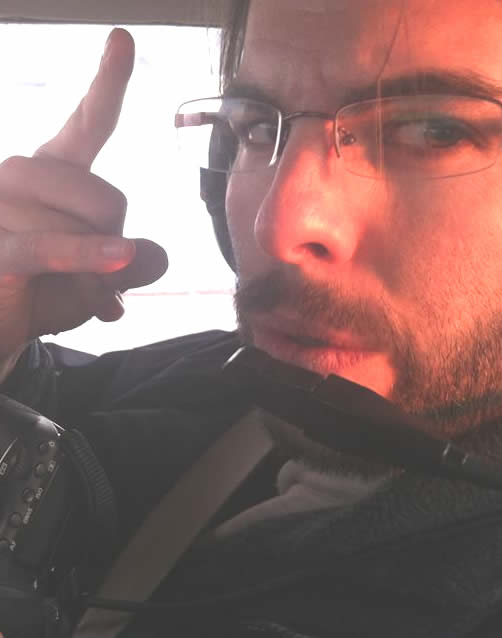 |
Mark Hendricks (USA) Fellow Hendricks is an award winning wildlife and conservation photojournalist and writer working on environmental issues. A former marine mammal biologist and animal rescuer, he turned to using his camera as a storytelling tool for conservation purposes. Current work focuses on the diverse habitats of the Chesapeake Bay watershed and the Maryland Coastal Bays. His images and articles have been featured in Nature Photographer, The Maryland Natural Resource, National Parks Traveler, Africa Geographic, and many others. His photographs grace the walls of both public and private collections including the G2 Gallery of Venice, California. His first book, Natural Wonders of Assateague Island, was released in June 2017. Mark is also an adjunct faculty member at Towson University. Website. Facebook. |
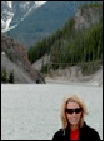 |
Kristen Henwood (USA) Academic/Scientific Henwood graduated from the University of Pennsylvania with an MES, Masters of Environmental Studies. Her current work and research is focused on examination and management of ecological landscapes and green infrastructure, along with organic land care practices. Current and past positions working in higher education and in environmental nonprofits have allowed her to write reports, articles, and website content on various environmental issues. Henwood strongly believes in the power that conservation writing and photography can have when it comes to raising awareness on the world’s most pressing environmental issues. She is passionate about conservation, enjoys traveling, and photography. Reach her via Email. |
|
Elizabeth Herron (USA) Fellow Herron is an author, educator, and writes poetry and articles on art and ecology, the role of art in society, and the importance of natural systems and biodiversity in the physical and spiritual well-being of individuals, communities, and the planet. Herron has taught writing at the School of Expressive Arts and at Sonoma State University, California where she is faculty emeritus. She also developed the Sonoma State University’s first general education inter-disciplinary ecology course. Her articles have been published in several magazines including Orion, Parabola, Ions, EarthLight, Jung Journal of Culture, and Psyche. Her books include Desire Being Full of Distances, Dark Season, While the Distance Widens, The Stones the Dark Earth, and Report. A winner of many awards and grants, Herron is a founding board member of the Climate Protection Campaign, and a commissioned law enforcement chaplain. See her website for more information. Photo by Jack Travis |
 |
Rina Herzl (USA) Fellow Rina Herzl is a freelance writer advancing awareness and action on pressing environmental and wildlife conservation issues. She is published in Earth Island Journal, Mongabay, Biosphere Magazine, and Voices for Biodiversity. She also advises environmental organizations, helping to ignite their digital messaging and accelerate their impact strategies. Rina holds a Master of Science in Biodiversity, Conservation and Management from the University of Oxford and an Executive Certificate in Social Impact Strategy from the University of Pennsylvania. |
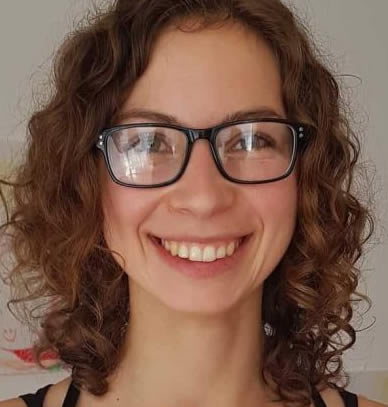 |
Rebecca Hollely (Austria) Fellow Rebecca is a biologist, who recently joined the European Wilderness Society as a content developer, where she is responsible for the creation and organisation of wilderness writing workshops. She believes in the power of words, and in using language to communicate the voice of nature to better protect our species, landscapes and planet. She blogs about her volunteering experience here and writes for the European Wilderness Society here. |
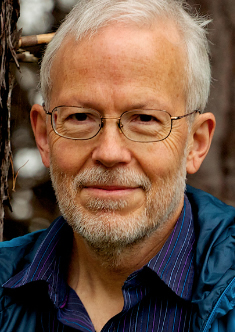 |
Erich Hoyt (UK) Fellow Erich Hoyt is the author of 22 books including The Earth Dwellers, Insect Lives, Encyclopedia of Whales, Dolphins and Porpoises, and Orca: The Whale Called Killer, published in multiple editions and translations. His articles have appeared in the Sunday Times, the Guardian, BBC Wildlife (in the UK); National Geographic, Defenders, and many newspapers in the US; Nature Canada, Canadian Geographic and the online magazine Hakai in Canada. As Research Fellow for the UK-based NGO Whale and Dolphin Conservation, he initiated and heads its Global Critical Habitat/ Marine Protected Areas Programme which has contributed to the designation of several large marine protected areas with whale and dolphin habitat. He co-founded and co-chairs the IUCN Marine Mammal Protected Areas Task Force currently engaged in a five-year project to map marine mammal habitats across the Southern Hemisphere (marinemammalhabitat.org). His books and articles have won awards including Outstanding Nonfiction Book of the Year from the American Society of Journalists and Authors, Inc. (NY). Twice a James Thurber Writer-in-Residence at the Thurber House, Hoyt was awarded a Vannevar Bush Fellowship in the Public Understanding of Science at the Massachusetts Institute of Technology in 1985-86. In 2013, he received the Mandy McMath Conservation Award from the European Cetacean Society for his body of work on marine conservation. A Canadian-US dual citizen, he now lives in Dorset, England, with his family, where he runs most days along the Jurassic coast. Erich Hoyt’s scientific papers and reports can be downloaded from ResearchGate and marinemammalhabitat.org. Also see erichhoyt.com and erichhoytbooks.com |
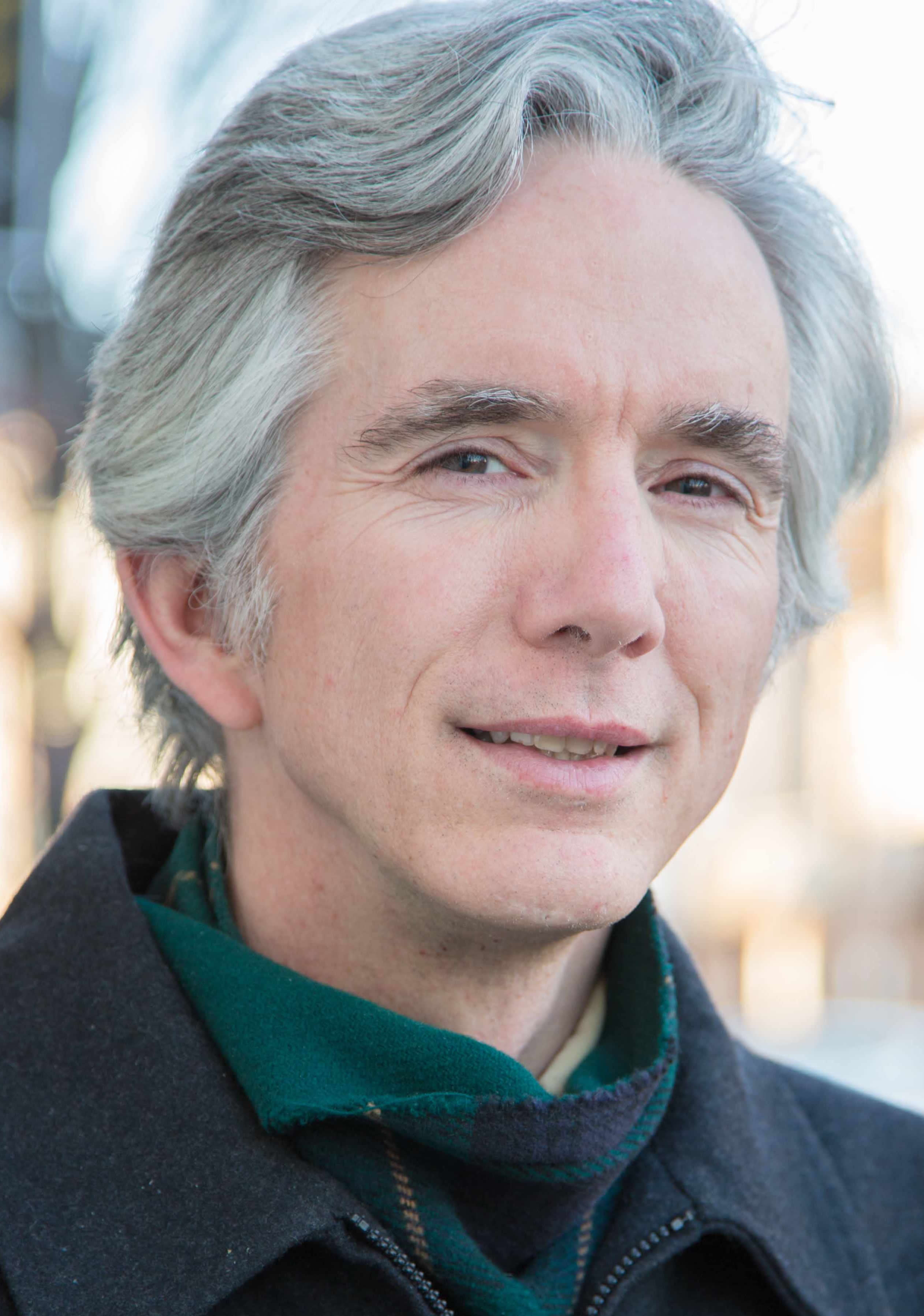 |
Daniel Hudon (Canada) Fellow Hudon is a Canadian science educator and writer who lives in Boston, MA. He became interested in the biodiversity crisis while team-teaching a course, Biodiversity: Causes and Consequences, at Boston University. His new book, Brief Eulogies for Lost Animals: An Extinction Primer, now available from Pen and Anvil , aims to raise awareness about species loss by telling their stories in a factual but lyrical manner. Excerpts from the book have been published widely in literary magazines. He is presently working on a new volume of prose and poetry that examines our connection to nature. Follow his website and you can follow him on Twitter: @daniel_hudon. |
 |
Clarissa Hughes (South Africa) Associate Hughes lives in South Africa and spends as much time as possible in the African wilderness. She has worked in ecotourism in Botswana, Zimbabwe, Zambia and South Africa and has traveled widely in sub-Saharan Africa. A core belief of hers is that you cannot appreciate that which you don't know. To this end she wishes to open up the experience of wilderness to as many people as possible. Intertwined with this goal is the respect that traditional cultures have for the natural environment. On a continent that is focused on industrialization Hughes hopes that the revitalization of truths inherent in indigenous culture will go a long way to minimizing environmental damage in the drive for development. She is the author of a number of tourism and culture-related articles and blogs and is the author of Flowers in the Sky: a celebration of southern African starlore. For more information please visit her blog. |
 |
Heidi Hutner (USA) Academic Hutner is Associate professor of English and a Women's Studies Affiliate, at Stony Brook University. She writes and teaches about ecofeminism, environmental justice, and ecocriticism in literature and film. Currently, Hutner is working on two books: What is Ecofeminism? A Maternal Reframing of the Environment(Demeter Press, 2012), and Strawberry Fields NOT: An Environmental Cancer Memoir. Hutner is the author of numerous articles on ecofeminism, feminism, and women writers, and her books include Colonial Women: Race and Restoration Drama (Oxford UP, 2001), and the collection Rereading Aphra Behn: History, Theory, Criticism (University of Virginia, 1993). She recently co-edited and wrote the introduction for Frances Sheridan's eighteenth-century novel, The Memoirs of Miss Sidney Bidulph (Broadview Press, 2011). Hutner also writes creative environmental narratives and poetry. See her ecofeminist, cancer, and mothering blog. |
 |
Roberto Isotti (Italy) Fellow “When more than 20 years ago, I turned my young passion for wildlife into a profession I had little stuff, a great enthusiasm and the confidence that, wherever this big adventure would have taken me, two things would never change: my curiosity and my love for the natural world”. Isotti has a PhD in animal biology and is a photographer, writer, founder of Homo ambiens, and has been actively engaged for many years in conservation photography and wildlife writing. Working for nature conservation by a similar wide-angle of view leads him to be involved in many different types of projects, aimed at nature conservation initiatives, among them: photographic books, exhibitions, text and photos for reportages, books for children, scientific papers, etc. Through his job, Isotti travels the world, reporting the beauty and fragility of the last natural paradises. He has developed several photo stories published in main Italian and international magazines, books, exhibitions and in communication material used by environmental organizations to promote some of his more important campaigns. Website |
 |
D. Simon Jackson (Canada) Fellow Jackson is the founder and chairman of the 6 million-strong Spirit Bear Youth Coalition – the largest youth-run environmental organization in the world – and is executive producer of The Spirit Bear, a forthcoming Hollywood CGI animated movie. Additionally, Jackson sits on several boards pertaining to conservation and youth engagement; is a public affairs commentator for CBC.ca and other publications; and is a sought after motivational speaker with agency Speakers’ Spotlight. For his efforts, Jackson has been named a Hero for the Planet by Time Magazine and was the inspiration for a made-for-TV movie, Spirit Bear: The Simon Jackson Story. |
| Frederick Ekow Jonah (Ghana) Fellow Fredrick is a nature enthusiast at heart. With a Bachelor and Masters degrees in Natural Resources Management and Aquatic Resources Management respectively, Fredrick has sought to bring attention to coastal and marine management issues in Ghana. His past research interests have included “managing issues associated with human contributions in coastal erosion” and “protection of endangered sea turtles in Ghana”. He has published several research papers on how to improve the management of these issues at both the community level and policy level. He also periodically writes articles for local newspapers. Fredrick is the founder of the NGO Seafront Environmental which undertakes community level project to improve local management and conservation of coastal habitats and sea turtles. He is an ardent photographer and also likes to use documentaries to highlight the issues of interest to him. Currently, Fredrick is working on three short documentaries on some aspects of coastal erosion management. He is also currently conducting his PhD research at the University of Cape Coast, Ghana, on a USAID funded project. His research focuses on “Sediment-water nutrient dynamics and biogeochemical modelling for Ghana’s coastal ecosystems”. He has won several small grants from Rufford Foundation and National Aquariums Limited. He may be contacted via email or Researchgate. |
|
 |
Alison M. Jones (USA) Fellow An award-winning documentary photographer and International League of Conservation Photography Senior Fellow, Alison Jones is the Founding Director of No Water No Life. This long-term project combines photography, science and stakeholder information to raise awareness of watershed degradation and sustainable solutions that can help ensure clean water for all. Granted an honorary Masters Degree in Photography from Brooks Institute, Jones is a member of the Society of Environmental Journalists, The Explorers Club, The National Arts Club, and the American Society of Media Professionals. She is a former Director of The North American Nature Photography Association and a founding supporter of Kenya’s Mara Conservancy. Alison recently studied forest ecology and watershed management at Columbia University’s Center for Environmental Research and Conservation. |
 |
Mark Jordahl (USA) Associate Jordahl is currently living in Uganda and is an educator, naturalist, writer, and consultant on wildlife conservation and tourism in Uganda. He has a masters degree in Conservation Education and is focusing on conservation-related writing which includes his blog, and a guidebook for Murchison Falls National Park, Uganda’s largest. |
 |
Apoorva Joshi (India) Fellow Joshi is an alumna of the University of Montana's School of Journalism, she holds a Master's degree in environmental journalism and has over five years of experience working in various forms of online communication. Currently an independent correspondent reporting exclusively on environmental and science issues for Mongabay, a globally renowned online environmental news site, Apoorva has previously worked with a CBS-affiliated TV station in Bozeman, Montana, as a web and social media producer. She has worked using multiple forms of media from print and online journalism to radio and broadcast media as well. Apoorva also has a Bachelor's degree in environmental science and over eight years of field experience working for wildlife conservation in India. Her primary areas of interest and work include investigating international wildlife crime, reporting on deforestation, habitat loss, conservation ecology, animal behavior, renewable energy, climate change and environmental justice. A strong advocate of using social media and the Internet for making environmental news globally accessible and relevant, Apoorva is an active member of the Society of Environmental Journalists and a member of the South Asian Journalists Association. Email; website; some of her published work. |
| Ted R. Kahn (USA) Academic / Scientific Kahn is the founder and Executive Director of Neotropical Conservation Foundation, where he designs conservation strategies for near extinct amphibians. The approach taken includes biodiversity corridors, climate science, natural history and ecology with community education and direct involvement, among others. He works in the field in Mesoamerica and South America in order to implement these strategies. Kahn has been a scientific advisor to most US Federal agencies concerned with wildlife and wilderness (USF&WS, NPS, NFS, NWR, BLM and the DOI) and many regional, state, and conservation oriented foundations throughout the western hemisphere. He is a scientific advisor to the Global Amphibian Assessment/IUCN Red List of Threatened Amphibians, which he helped design in 1997. He is also the Senior Research Scientist for the Latin American & Caribbean Social Science Research Network. Kahn is widely published as an author, editor, reviewer, photographer, as well as a scientific illustrator. Kahn’s illustrations are on permanent display at the Smithsonian Institution. Additionally, his works and writings can be found in texts, guidebooks, and peer reviewed journals from 1986 onward. |
|
|
Andy Kerr (USA) Fellow Andy Kerr (andykerr@andykerr.net) is the Czar of The Larch Company (www.andykerr.net) and consults and writes on environmental and conservation issues. The Larch Company is a for-profit non-membership conservation organization that represents the interests of humans yet born and species that cannot talk. He is best known for his two decades with the Oregon Wild (then Oregon Natural Resources Council), the organization best known for having brought you the northern spotted owl. Kerr has been closely involved in with the establishment or expansion of 46 Wilderness Areas and 47 Wild and Scenic Rivers, 13 congressionally legislated special management areas, 15 Oregon Scenic Waterways, one proclaimed national monument (and later expanded). Kerr authored Oregon Desert Guide: 70 Hikes (The Mountaineers Books, 2000) and Oregon Wild: Endangered Forest Wilderness (Timber Press, 2004). His articles on solar energy, energy efficiency and public policy have appeared in Home Power magazine. His next book, Beyond Wood: The Case for Forests and Against Logging, will argue that trees generally grow slower than money, forests are more important for any other use than fiber production, America can get nearly all of its fiber products from agricultural waste and other crops with less environmental impact, and that most private timberland in this nation should be reconverted to public forestlands. |
 |
Harry Keys (New Zealand) Fellow Keys is a scientist with the New Zealand Department of Conservation involved in volcanic risk mitigation and management of Tongariro National Park World Heritage Area. For 14 years to 2013, he contributed to annual meetings of the Antarctic Treaty System. His most recent Antarctic work included developing guidelines for national Antarctic programs to use to improve the protection of wilderness values. In 2007, he was honored by his university with a Distinguished Alumni Award. In 2008 he was made an Officer of the New Zealand Order of Merit, in recognition of his leading role in the management of a controversial volcanic risk in the World heritage Area. In 2013 he was made a Life Member of the Tongariro Natural History Society, a New Zealand conservation organization. |
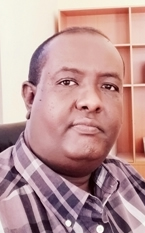 |
Ismail Shikh Khalifa (Somalia) Fellow Ismail Sheikh Khalifa is a veteran Somali journalist, chairman of Human Rights journalists (HRJ) and a university lecturer. He has Master's Degree of Diplomacy and International Relations from Kampala University. He has been in the media since 1997 and worked with different media outlets in Somalia. He writes about environmental issues. Ismail is also an active member of Civil Society in Action (CSA) which is a coalition of civil society organizations in Mogadishu, Somalia and campaigns to end cutting trees and charcoal business, illegal fishing and killing wild animals. Twitter: @ismailkhalify Skype: dastuur |
|
Wanjiku Kinuthia (Kenya) Fellow Kinuthia is the communications and marketing officer at Lewa Wildlife Conservancy, the pioneer, world re-known rhino sanctuary situated in Northern Kenya. She is responsible for the planning, development and delivery of Lewa’s internal and external communication, including the website, the annual report, bi-annual newsletters, the monthly eNewsletters and other publications. She is also in charge of specific marketing campaigns and projects. Wanjiku also shares a passion in photography, and Lewa’s stunning scenery serves as the perfect backdrop for the exploration of this art. She spends most of her free time filming and taking pictures of Lewa’s amazing wildlife. |
|
K.Linda Kivi (Canada) Fellow Kivi’s work reflects her passion for the Inland Temperate Rainforest, the Columbia Mountains, connection to the natural world, indigenous peoples, women, wilderness conservation, sexuality, love and change. She is the author of three works of literary non-fiction including co-author of The Inner Green: Exploring Home in the Columbia Mountains (with E.D. Pearkes) and is the editor of the anthology The Purcell Suite: Upholding the Wild. The latter has raised both funds and awareness for the Jumbo Wild! campaign. As a peasant interested in re-wilding herself, Kivi gardens, wildcrafts, wanders and practices living cooperatively, consciously and simply. Currently, her blog with author Luanne Armstrong explores people’s relationship to place, especially wild and rural places (http://maapress.blogspot.com/). She is also a journalist, a poet, a bookbinder and publisher, a radio host, and the author of two novels that explore the impact of displacement through the refugee experience. She inhabits the Maa Land Co-operative in the Bird Creek watershed in Sinixt Territory in the Columbia Mountains. Website |
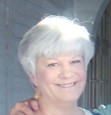 |
Margie B. Klein (USA) Fellow Margie B. Klein is a freelance writer and natural resources professional with 30-plus years’ experience working in agriculture, horticulture, forestry, botany, wildlife management and park interpretation. Her writing experience stretches from natural history blogs to technical articles in trade magazines and some poetry and prose published in books and literary journals. In addition, she has contributed to field guides for areas in southern Nevada. In 2011, The Wildlife Society granted her an award in conservation education for writing for a wildlife education newsletter that she authored for educators. She also co-authored, with the Your True Nature organization, a teacher curriculum on character education based on totem animals. Much of her writing is about the Mojave Desert, and she has written documents in support of the protection of some special natural sites in this region. Klein is a certified interpretive guide, environmental educator, and tourist guide, as well as a student of ecotherapy. |
 |
Cyril Kormos (USA) Academic / Scientific, Founding Fellow Kormos is the vice president for policy at The WILD Foundation. He is primarily focused on assembling the most up to date information and tools for wilderness conservation and climate change issues. He is also a member of, and helps manage the IUCN-WCPA Wilderness Task Force, and was appointed the IUCN-WCPA Regional Vice-Chair for North American and the Caribbean. Kormos has edited and co-edited many books, including A Handbook for International Wilderness Law and Policy. Prior to coming to The WILD Foundation, Kormos worked for Conservation International as senior director for program management, staff attorney, and director of CI’s policy program. |
 |
Bethany Kraft (USA) Fellow As deputy director for Ocean Conservancy’s Gulf Restoration Program, Bethany Kraft works to secure comprehensive, science-based and community-supported restoration of the Gulf of Mexico ecosystem at the local, regional and national levels. She contributes to several environment blogs and wrote a regular column for Mobile Bay Monthly that tied wellness to place. Bethany served previously as the Executive Director of the Alabama Coastal Foundation, an environmental education and habitat restoration non-profit. During her tenure she developed an award-winning citizen science outreach program and was active in the Deepwater Horizon oil disaster community response. A lifelong resident of the Gulf region, Bethany resides in New Orleans, Louisianna. She currently experiments with place-based writing from the Canal Street ferry. |
 |
Dean Krakel (USA) Fellow On July 26, 2015, I left my job as a photo editor at the Denver Post to walk The Colorado Trail. The 550-mile journey from Durango, Colorado to my home in Conifer, Colorado took me 11-weeks, climbing more than 100,000 vertical feet, across eight mountain ranges and through six wilderness areas. I am currently working on a book about the trip. I’m a Wyoming native, born in Laramie in 1952. For most of my career I have been a photojournalist. I worked at the Rocky Mountain News for over 20 years, as staff photographer and photo editor. In February 2009, when the Rocky published its last edition I was Director of Photography. I was fortunate to have been on the News photo teams that won Pulitzer’s for the Columbine High School shootings (2000) and the forest fires that swept through Colorado (2002). In 2011 I joined the photo editing staff at the Denver Post, primarily responsible for photo coverage of Colorado’s wide world of sports. But I also participated in covering major breaking news events such as the Aurora theater shootings in 2012 -- for which the Post received a Pulitzer Prize. In 2013 our photo editing team at the Post won the Angus McDougall Excellence in editing award. I am both a writer and photographer. My work has appeared in everything from National Geographic to Rolling Stone toCowboys and Indians magazine. Once upon a time I even photographed Marlboro advertisements for the Leo Burnett Agency. In 2010, between jobs at the Rocky Mountain News and the Denver Post I traveled to Southern Ethiopia to document the impact of the Gibe III dam on the indigenous peoples living in the Lower Omo River Valley. That trip resulted in an unpublished—as of yet--novel. I’ve authored three books: Season of the Elk, Lowell Press, 1976; Downriver, a Yellowstone Journey, Sierra Club, 1987;Krakel's West, Scripps Howard, 1997. |
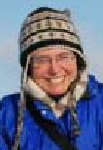 |
Carolyn Kremers (USA) Founding Fellow Kremers writes literary nonfiction and poetry. Numerous essays and poems of hers have been published in anthologies, magazines, journals, on public radio, and on the Internet. She largely writes about Alaska, the Inland Northwest, Russia, the natural world, conservation and development, indigenous peoples, women, education, music, wonder, and change. Kremers is the author of Place of the Pretend People: Gifts from a Yup’ik Eskimo Village (literary nonfiction) and The Alaska Reader: Voices from the North (anthology of fiction, literary nonfiction, poetry, and oral tradition; co-edited with Anne Hanley). Two other nonfiction books are in-progress: Then Came the Mustang (essays set in Alaska and the Inland Northwest) and Blessings from Buryatia (a book-length nonfiction narrative about the people and republic of Buryatia, Russia). Her poetry book Upriver is complete, and a second book of poetry is in-progress. To contact Kremers via Email. |
 |
Zoltán Kun (Hungary) Fellow Kun is currently the chairman of the European Wilderness Society an entity that envisions 5% of European land protected as wilderness. A conservationist at a young age, Kun dreamed of working with WWF. His dream became a reality in 1996 when he was named coordinator of the Gemenc Foodplain restoration project for WWF Hungary. He attained a forestry technician diploma at the Secondary School in Sopron, Hungary in 1990, and graduated with an MSc in landscape architecture in Hungary at the University of Horticulture and Food Industry in 1996. His final thesis was on flood-plain restoration, written in the Netherlands at the Wageningen Agriculture University in the framework of TEMPUS ICER programme. In 1997 Kun joined the PAN Parks Initiative as conservation manager. He was appointed the Executive Director of PAN Parks in 2002, which position he held until the end of 2013. Kun may be reached by Email or at twitter @zkun1971. He is a contributor to the blog of the European Wilderness Society. |
 |
Linda Moore Kurth (USA) Fellow Kurth is a children’s book writer. Her book, Keiko's Story: A Killer Whale Goes Home, has been distributed to scores of libraries and schools. It’s a true story of an orca named Keiko who became the star of the movie,Free Willy. Kurth chronicled Willy's journey from his capture as a young calf for entertainment purposes to his release nineteen years later in his home waters of Iceland. She continues to write and advocate for wild places and their inhabitants particularly in the Pacific Northwest, hoping to inspire the next generation of environmentalists. For more information or to contact her: email, website, facebook, linkedin. |
 |
Page Lambert (USA) Fellow Page Lambert grew up in Colorado where she fell in love with harebells, wild onions and gangly ponderosas. In her teens, she courted rivers, cottonwoods, horses, and frogs. She’s been “writing nature” ever since. Author of the classic Wyoming memoir In Search of Kinship, the historical novel Shifting Stars (finalist, Mountains & Plains Booksellers Award), nominated for two Pushcart Prizes, her essays and poems are widely published. Page has designed courses for, and teaches in, the graduate writing program at the University of Denver. Her River Writing Journeys for Women were once featured in Oprah’s O Magazine as “One of the top six, great all girl getaways of the year!” In 2023, she’ll celebrate 26 years of creative river journeys, 16 years of “Literature & Landscape of the Horse” retreats, her sixth “Peru, Weaving Words & Women” retreat, her second annual “Romancing the Story” retreat in Colorado, and her second “Autumn Writing Retreat in the Berkshires.” On the horizon for 2024 is “Tuscany Primavera: Springtime in Italy”, and her southwest adventure, “Santa Fe & Taos Autumn Sojourn: Sacred Words, Sacred Land, Sacred Art.” Page writes the blog All Things Literary/All Things Natural, and leads one-day writing seminars at Mount Vernon Canyon Club in the foothills west of Denver, Colorado, USA. |
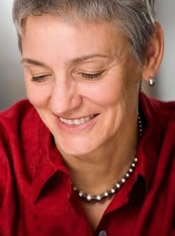 |
Rebecca Lawton (USA) Fellow Rebecca Lawton is a Western author, fluvial geologist, and former Grand Canyon river guide. After four decades of adventure leadership and stream research work, she turned to science journalism and creative writing full time. Her prose and poetry have won a Fulbright Visiting Research Chair, Nautilus Book Award, Ellen Meloy Fund Award for Desert Writers, Waterston Desert Writing Prize, WILLA for original softcover fiction, Pushcart Prize nominations, and residencies at Hedgebrook Retreat for Women Writers, Mesa Refuge, and The Island Institute. One of the first commercial oarswomen on the Colorado River, she has written nine books on water, rivers, and river culture, as well as articles for Aeon, Orion, Sierra, Terrain.org, Writers on the Range, and many other environmental media. Read more at beccalawton.com. |
|
Stephen Leahy (Canada) Fellow Stephen is a multiple award-winning journalist and author specializing in science and environmental issues for more than 20 years. His writing has appeared in dozens of publications around the world including National Geographic, The Guardian, Vice, The Atlantic, Maclean’s Magazine, Changing America, Al Jazeera, The Toronto Star, Wired News, New Scientist and more. Awarded the Best Science Book of the Year for his book “Your Water Footprint: The Shocking Facts About How Much Water We Use to Make Everyday Products”. In the fall of 2020 Stephen launched Need to Know: Science and Insight. He can be reached via email, twitter, his out of date website or read one of his 1200+ articles here. |
 |
Zachary Lees (USA) Fellow Lees grew up in Southern New Jersey, where the ocean and back bays meet the pinebarrens. He lived in Vermont for a decade, completing his BFA in creative writing, and skiing, climbing, camping, and hiking through the green mountains. His passion for environmental conservation led him to Vermont Law School where he completed a JD and Masters in Environmental Law and Policy. After traveling throughout the US and living in Alaska for a time as a sea kayak guide, he now works as the Ocean and Coastal Policy Attorney for Clean Ocean Action, an eNGO based on Sandy Hook, NJ. He hopes to continue to use writing as a conservation and education tool and continually seeks new experiences and adventures in the natural world to inspire his writing. Lees can be reached at his email address and Clean Ocean Action's webpage. |
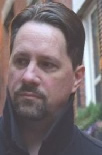 |
Eric D. Lehman (USA) Fellow Lehman teaches travel literature and creative writing at the University of Bridgeport and his essays, reviews, poems, and stories have been published in dozens of journals and magazines. His dozen books include A History of Connecticut Food, Shadows of Paris, A History of Connecticut Wine, and Connecticut Town Greens: History of the State's Common Centers. His biography Becoming Tom Thumb: Charles Stratton, P. T. Barnum, and the Dawn of American Celebrity won the Henry Russell Hitchcock Award from the Victorian Society of America, and was chosen as one of the American Library Association's outstanding university press books of the year. His Pushcart-nominated "love letter" to his adopted state, Afoot in Connecticut: Journeys in Natural History, is a call for preservation, and an investigation of local ecology. He believes that history and travel help us know the place we live, and therefore know ourselves. Website.email. |
| Kahindi Lekalhaile (Kenya) Fellow Mr. Kahindi Lekalhaile is the Director of the Public Affairs Division at Africa Network for Animal Welfare (ANAW), a non-governmental organization promoting animal welfare in Africa. His job experience in nature conservation spans for 27 years working as a naturalist, environmental education expert, trainer in wildlife social work, field research scientist, eco-tourism expert, university lecturer, community-based wildlife conservation expert. Some of his past experiences include: Setting up the Samburu Elephant Research Centre in northern Kenya under Save The Elephants charity in Africa under the supervision of the world-famous expert, Dr. Iain Douglas-Hamilton; is the pioneer Kenya National advisor to the CITES Monitoring the Illegal Killing of Elephants (MIKE) program in Kenya covering the northern Kenya elephant population, which is the largest elephant free-ranging elephant population living outside any protected area in East Africa; he developed the ‘PIKE’ technique (Proportion of Illegally Killed Elephants) as an early warning system for elephant ivory poaching in the world; is a renowned crusader against illegal global trade of wildlife and wildlife products. In 2012, as the Chief Executive Director of Ecotourism Kenya, Mr. Lekalhaile was arrested by police for highlighting the serious elephant poaching and ivory trafficking in Kenya. The arrest sparked national and international and anti-poaching campaigns worldwide. The campaigns continue to date; is an Earthwatch Fellow for the Black Lemur Forest Project in Madagascar; is the recipient of the 2006 Conservation Hero award from Disney World; Kahindi is a Doctor of Philosophy candidate at Moi University in Kenya, and currently Kahindi is spearheading a crusade against the construction of a standard gauge railway across Nairobi National Park, Kenya old protected area and the only national park inside a capital city anywhere in the world. |
|
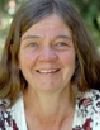 |
Patty Limerick (USA) Fellow Dr. Limerick is the faculty director and chair of the Board of the Center of the American West at the University of Colorado, where she is also a professor of history. Limerick has dedicated her career to bridging the gap between academics and the general public and to demonstrating the benefits of applying historical perspective to contemporary dilemmas and conflicts. Limerick has received a number of awards and honors recognizing the impact of her scholarship and her commitment to teaching including the MacArthur Fellowship and the Hazel Barnes Prize, CU's highest award for teaching and research. She has served as president of several professional organizations, advised documentary and film projects, and done two tours as a Pulitzer Nonfiction jurist. She is currently serving as the vice president for the Teaching Division of the American Historical Association. Limerick regularly engages the public on the op-ed pages of local and national newspapers, and in the summer of 2005 she served as a guest columnist for The New York Times. She may be reached via Email. |
 |
David Lindo.(UK) Fellow David Lindo is The Urban Birder--broadcaster and writer. Previously Head of Membership at the British Trust for Ornithology, Lindo is the author of many articles on urban birds and writes for various websites and magazines including the RSPB’s membership magazine--Birds, Bird Watching Magazine--Britain’s best selling birding publication and the award winning BBC Wildlife Magazine. His new book, The Urban Birder, has just been published. He is currently a patron of Alderney Wildlife Trust, Birding For All and the Spitalfields City Farm. He is also the Founder of the Tower 42 Bird Study Group, co-founder of the Canary Wharf Migrant Bird Project and is on the committee of The Friends Of Wormwood Scrubs. Email, website |
 |
Les Line (USA) Founding Fellow (deceased) Line was the longest-serving editor of Audubon magazine from 1966 to 1991, and is credited for evolving the publication into “...the most beautiful magazine in the world...” (New York Times). Line had written, edited or photographed more than 30 books on nature and conservation. His honors included a doctorate in literature from Bucknell University and being named a fellow of the Rhode Island School of Design. He was accorded the Jade of Chiefs Award from the Outdoor Writers Association of America; the Hal Borland Award from the Audubon Society; and was named one of 100 heroes of the American conservation movement during the 20th century. |
 |
Harvey Locke (Canada) Founding Fellow Locke is globally known for his work on wilderness, national parks and large landscape conservation from Yellowstone to Yukon and beyond. Named by Time magazine as one of Canada’s leaders for the 21st century, his resume is filled with premier publications, keynote speaking engagements and leadership and advisory roles for some of the most well known organizations in the conservation field. He is now playing a leadership role in a global endeavor to unit efforts to mitigate and adapt to climate change with nature. A passionate advocate for wild nature, Locke joined The WILD Foundation in January, 2009 as vice president for conservation strategy. He is also senior adviser for conservation to the Canadian Parks and Wilderness Society, and strategic advisor to the Yellowstone to Yukon Conservation Initiative. |
 |
Thomas Locker (USA) Founding Fellow (deceased) Locker has spent his entire life in service to his two great passions: painting and nature. Since the opening of his first one-man show in 1964 in New York City, Locker has held more than sixty such exhibitions. He has illustrated more than thirty books, many of which he has written. His books include Sky Tree, Walking with Henry, John Muir: America’s Naturalist, Rachel Carson: Preserving a Sense of Wonder, Hudson: The Story of a River, and Journey to the Mountaintop: On Living and Meaning. Locker’s books have received many awards, include the John Burroughs Award, the Christopher Award, the Knickerbocker Lifetime Achievement Award, the NSTA Outstanding Science Trade Book for Children, the NCTE Notable Trade Books in the Language Arts, the Council of Christian Schools Awards, and The New York Times Award for best illustration. He makes his home in a small village at the edge of the Hudson River. |
| Neil Losin (USA) Associate Losin has been interested in nature his whole life, and an avid birder since childhood. An internationally known, award-winning photographer, Losin also has written for nature and science related magazines and books. A Ph.D. candidate in UCLA's department of ecology and evolutionary biology, Losin strongly believes in using writing and photography to engage the public in scientific and environmental issues. |
|
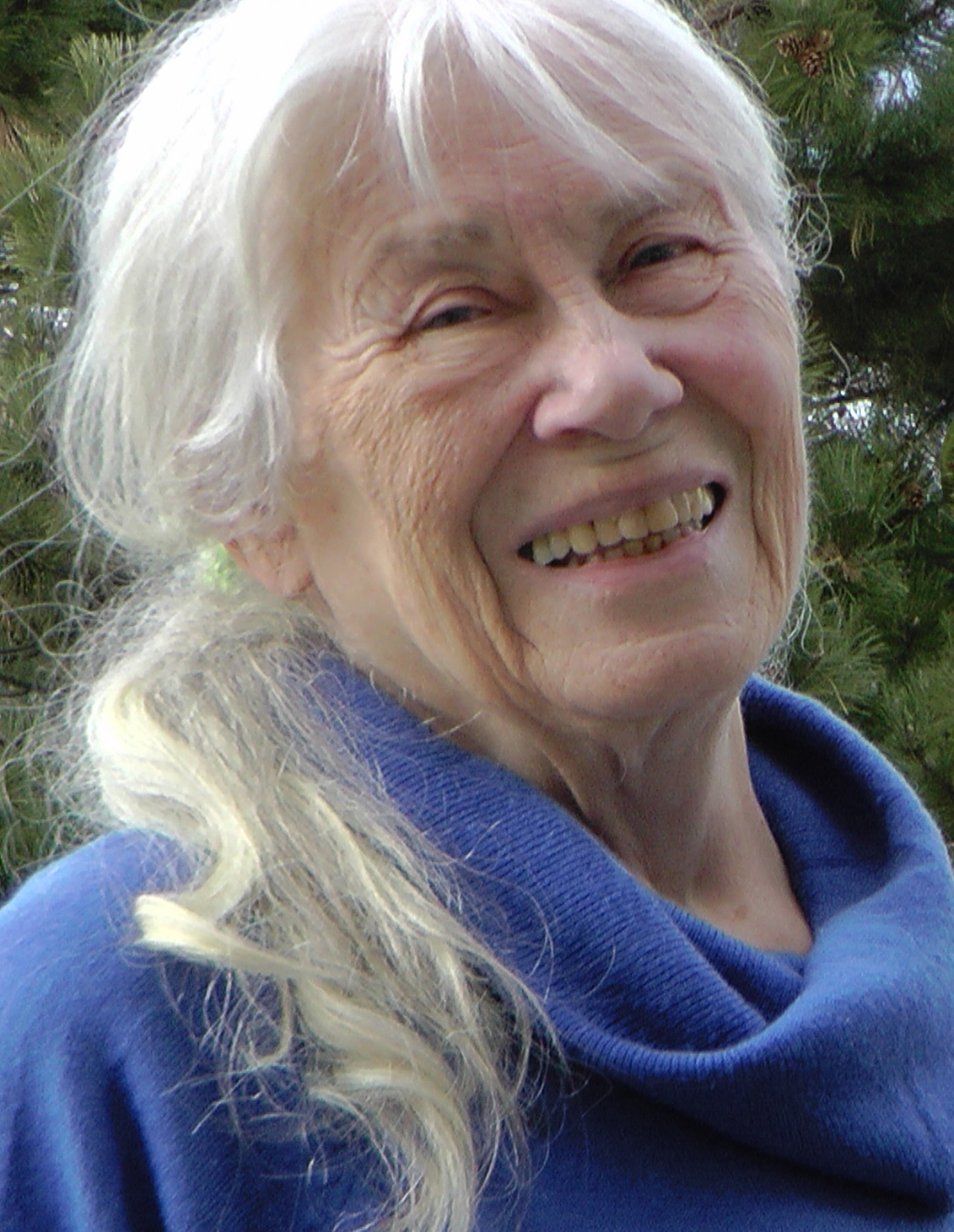 |
Nancy Lund (USA) Asociate (deceased) When Nan isn’t working to grow the creative sector she uses various media to express her awe of the world. It’s all about connection-- the soft flow of water that eventually erodes hard rock. a relationship between time, process, the persistence of change. making love with light, color, form. making the invisible, visible. drifting in a world of limitless dimensions. embracing the delight. making art as a way of growing and living while expressing the inexpressible. probing deeper layers of experience. feeling fully alive when connecting totally to experience. It’s about what lies beneath, linking everything-- art (the conduit to experience) heals, the same as a sunset heals. becoming a little more aware, a little more in love with the world. a flash of lightening in a summer cloud. waterfall from a cloud a pilgrimage to wild divine, an hour staring at the sky brings on profound peace. a journey in bliss. swimming the sky. creation, life, struggle, chaos, death, rebirth. drifting in a world of limitless dimensions. art saving lives by connecting to senses and inner knowing. being present in the moment. opening up intuitive aspects of consciousness. seeing what is really there rather than what we think is there. a state of engagement, beyond words, feelings, thoughts, understanding, time. website |
 |
Kaelyn Lynch (USA) Fellow Lynch is a freelance writer and photographer who focuses on issues of nature and culture. Since graduating from the University of Miami, she has lived and worked abroad on conservation initiatives in Indonesia, Australia, and Myanmar (Burma). She continues to travel to some of the most remote places in the world to document environmental issues. In particular, Kaelyn's work revolves around the intersection of people and nature. Her work seeks to promote mutual understanding across cultures and viewpoints, investigate innovative conservation efforts, and give voice to people affected by climate change. In addition to her magazine publications, she writes for the non-profit Community Empowerment Network and the climate change awareness organization What's Your Impact. While appreciative of all forms of nature, Kaelyn has a special affinity for our underwater world. She is a certified Divemaster with experience in the Caribbean, South Africa, Indonesia, and Australia. Website |
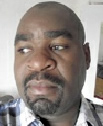 |
Osiman Mabhachi (Zimbabwe) Associate Osiman is a Zimbabwean conservationist working for the Endangered Wildlife Trust as a Community Projects Coordinator. He is pursuing PhD studies through Leiden University, The Netherlands. His work entails promoting the involvement of rural communities in the conservation of African crane species in East and Southern Africa. Osiman has over twelve years of field experience in community-based projects in the region having worked for Birdlife Zimbabwe, SAFIRE (Southern Alliance for Indigenous Resources) and the Institute of Environmental Studies (University of Zimbabwe). He played a key role in developing bird conservation programmes during his stint at Birdlife Zimbabwe. His decision to be an environmental writer was prompted by the lack of appropriate forums and institutions that focus on simplifying and disseminating conservation research results and project outputs for the benefit of non-conservationists. His goal is to publicise community-driven approaches to highlight the critical role that communities play in conserving biodiversity outside protected areas in Africa. Osiman holds a MSc. Environmental Management degree from the University of Wolverhampton and a BSc. in Agricultural Engineering from the University of Zimbabwe. He has interests in the fields of human-environment interactions, livelihood-environment linkages and visioning for positive conservation outcomes. Osiman regularly writes articles for publication in the Grus Grapevine and the ACWAC newsletter, two newsletters published by the African Crane Conservation Programme of the Endangered Wildlife Trust. He can be contacted at email or email |
 |
Andrew L. Mack (USA) Fellow Mack obtained his Ph.D. from the University of Miami Tropical Biology Program in 1995. He built a research station in a remote rainforest of New Guinea and lived there five years studying cassowaries, seed dispersal and rainforest ecology. He started a conservation training program for Papua New Guinean students and lived in PNG another ten years building the program. That program has evolved into the PNG Institute of Biological Research. Over the years he has joined and organized many biological expeditions across the region. Mack has worked for two of the largest international conservation organizations and two of the largest natural history museums in the United States. Mack is now an independent conservationist, author, and executive director of the Indo-Pacific Conservation Alliance. His experiences in New Guinea over 20 years form the foundation of his new book Searching for Pekpek: Cassowaries and Conservation in the New Guinea Rainforest. Although he has over 50 technical peer-reviewed publications, he most enjoys sharing his unique experiences and perspectives on rainforests and conservation with general readers. He now lives on a small tree farm in western Pennsylvania. More at blog. |
 |
Fiona MacLeod (South Africa) Fellow Macleod is founder of Africa’s first journalistic investigation unit focusing on environmental issues, the Oxpeckers Center for Investigative Environmental Journalism. The unit combines traditional investigative reporting with data analysis and geo-mapping tools to expose eco-offences and track organised crime syndicates in southern Africa. Prior to founding Oxpeckers, Macleod worked as an award-winning journalist and editor at a range of the region’s top media. She served as environmental editor at the Mail&Guardian newspaper for 10 years, and was awarded the prestigious Nick Steele award recognising her contributions to environmental conservation through her pioneering reportage. She is currently still editor of the M&G Greening the Future and the M&G Investing in the Future CSI/R awards programmes. Macleod is a member of the judging panel of the eta Awards, which reward exceptional effort in the more efficient use of energy. She has also served terms on the judging panels of the SANParks Kudu Awards and she ran The Green Trust awards, SA’s premier environmental awards programme, for four years. |
 |
Fred MacVaugh (USA) Fellow MacVaugh for the longest time struggled to understand why he cared. He grew up in the Philadelphia suburbs in the 1970s and 1980s, and like many kids his age, he spent a lot of time running around the backyard, climbing trees, and playing with his dog, a golden retriever named Tahoe. None of this, though, satisfactorily explained his later irrepressible urge to do something to conserve land and nature. Only in the last few years has he realized why he cares: he got his hands dirty and watched while things grew, thrived, and died. His mother and grandparents fed the birds, rabbits, and squirrels in the yard. They also kept a flower and vegetable garden and insisted Fred help. He hated tilling, planting, weeding, and harvesting. He’d have rather watched television. Now he struggles to find fruitful ways to combine his indivisible passions for writing, reading, history, literature, and nature with teaching and conservation. Before beginning an MFA in creative writing and environment at Iowa State University, Fred earned an MA in English as well as an MA and a BA in history. In addition, Fred’s worked for the National Park Service (NPS) for seven years; taught college-level English and history; and worked as a newspaper reporter and obituary writer, writing tutor, grocery clerk, and editorial assistant at the University of Nebraska Press. His publications include numerous newspaper and magazine articles in the El Paso Times, Daily Local News, Des Moines Register, andSouthern New Mexico Magazine; scholarly reviews in New Mexico Historical Review, Password, and Southwestern Historical Quarterly; and poetry in Plains Song Review and Watershed. He’s also written an (unpublished) history of Carlsbad Caverns National Park, Preserving the Underground: The Creation of Carlsbad Caverns National Park, 1922–1930. Current projects include a book-length collection of lyric and narrative poetry and a memoir/environmental history that explores not only his affinity for place but also the history of America’s national parks and how to combine creative writing and science instruction to strengthen and promote environmental awareness and behavior change. |
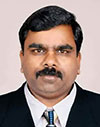 |
Dr. Guinness Madasamy (India) Fellow Dr. Madasamy is a social worker and a marketing executive for the Postal Department, Idukki division, in his home country of India. He spends a great deal of time fighting for the rights of tea plantation workers, as well as for environmental protection, and peace in Peermade, Kerala. He is a member of the International Peace Bureau (Switzerland), the American Friend Service Committee (USA), and is a peace and nature activist. Dr. Madasamy has written many articles for the daily newspaper, Deepika, on the environment. He has received recognition and many awards, among them: Circle of Excellence (India Post), Dr. B.R. Ambedkar National Fellowship 2013, Indian Humanitarian Award 2020, Indian Excellence Award 2020, and the Indo International Icon Award for Social and Human Rights Activism. Dr. Madasamy’s new book about the green deal, Thalakkettillatha pusthakam, is bilingual in the Tamil and Malayalam languages. Email |
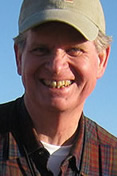 |
Chris Madson (USA) Fellow Born in Ames, Iowa, Chris Madson took a bachelor’s degree in biology at Grinnell College and a master of science in wildlife ecology at the University of Wisconsin-Madison before accepting the editorship of Kansas Wildlife magazine in 1978 with what was then the Kansas Fish and Game Commission. In 1983, he moved to Cheyenne to take the editorship of Wyoming Wildlife magazine for the Wyoming Game and Fish Department, a position he held until he retired in 2014. In that period, Wyoming Wildlife won more than 200 national awards for excellence in writing, photography, and design. Madson has written for many other publications, including Audubon, Outdoor Life, National Wildlife, Ducks Unlimited, Sporting Classics, and Pheasants Forever. In 2005, Ducks Unlimited recognized him as its national Conservation Communicator of the Year, and in 2010, the National Wildlife Federation honored him with its National Conservation Achievement Award. In 2014, the University of Wyoming’s Berry Biodiversity Institute recognized Madson’s work with its first annual Contributions to Wyoming Biodiversity Conservation Award. He’s an avid hunter, angler, and outspoken advocate of federal ownership of public lands in Wyoming and across America. |
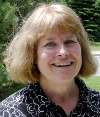 |
Patty Maher (USA) Associate Maher is a graphic designer, writer, and filmmaker. She is the production manager of the International Journal of Wilderness and is currently involved with managing the International League of Conservation Writers organization; the 3rd Third, a membership group for those over 55; and editing Films By Fulcrum film projects. She is the author of Colorado History Mysteries: As Told by a Colorado Native. |
 |
Harry Man (UK) Fellow Mann is a poet based in North Yorkshire, England. His work includes Finders Keepers, a 2016 project on endangered species of the British Isles. His work has been translated into Chinese, Macedonian, Slovakian, German and Swedish. His first pamphlet, ‘Lift’ was shortlisted for ‘Best Pamphlet’ in the 2014 Sabotage Awards, and won the UNESCO Bridges of Struga Award. He is a 2016 Hawthornden Fellow. More of his work may be found atMan Made Books. |
 |
Marie-Eve Marchand (Canada) Associate Marchand is a former executive director of Canadian Parks and Wilderness Society (CPAWS), Quebec chapter, and helped develop the idea of "wilderness" in French known as Nature sauvage. Marchand also played a key role in Quebec's government commitment to protect at least half of Northern Quebec. She was given the Golden Leaf Award from the Canadian Council on Ecological Integrity for the work she led on the Dumoine Watershed. Marchand is currently working to bring the plains bison back to Banff National Park in Canada and with The WILD Foundation in their Nature Needs Half campaign (preserving half of the world for nature). |
| Daniel Markham (USA) Fellow Markham is a journalist, multimedia producer and editor. He has worked as writer and editor for United Press International (London), was a news writer and editor for ABC News where he was the founding producer and editor ofEarthfile, an internationally syndicated environmental magazine program. As director of communications at the Environmental Communications Centre Markham worked with clients such as Greenpeace, Friends of the Earth, Earthwatch, the National Park Service, and the National Science Foundation (Antarctic program), among others. He has also been a writer, editor and producer of environmental topics for many newspapers in the US. Markham also enjoys being an interpreter at the Biltmore Estate/Historic Farm Village leading demonstrations and tours for adults and school groups in Asheville, North Carolina. |
|
| Amy Marquis (USA) Fellow Marquis is founder and editor of The Digital Naturalist (TDN), is also a writer and editor on the award-winning National Parks magazine, which reaches more than 325,000 members of the National Park Conservation Association. Her love for visual storytelling first bloomed in 2000 as a photo editor onNational Wildlife magazine--but it was her passion for music that recently led her to start pushing stories off the printed page. After researching scores of advocacy videos on the internet, she realized she was just one of many trying to understand this new medium. So she created TDN to share her findings and create an open forum where everyone can continue to learn. Amy lives in Boulder, Colorado, USA, and also serves as an affiliate with the International League of Conservation Photographers and a freelance multimedia editor for The WILD Foundation. Her essay about her experiences in Big Bend National Park in Texas was published in the book The National Parks: Our American Landscape by photographer Ian Shive. Marquis may be reached at email. |
|
 |
Vance G. Martin (USA) Founding Fellow Martin is president of The WILD Froundation. An innovative leader known for bridging the interests of people and nature, he has lived extensively overseas, worked in over 45 countries, and helped to establish many non-profits. He has served on the boards of numerous organizations such as the Cheetah Conservation Fund, Friends of Peace Parks, Conservation & Preservation Charities of America, Fulcrum Publishing, Wilderness Foundation (South Africa), Wilderness Foundation (UK), and others. He is also the founder and current co-chairman of the IUCN Wilderness Task Force and has edited and authored many publications, including most recently: Wilderness (with Patricio Robles Gil, the renowned Mexican conservation photographer); Wilderness, Wildlands and People: A Partnership for the Planet, the plenary proceedings from the 8th World Wilderness Congress(Anchorage, Alaska, 2005). A native of the U.S. Piedmont region, he graduated magna cum laude from West Virginia University. |
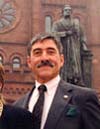 |
Michael McBride (USA) Associate Michael has been writing conservation articles for over 30 years, starting in 1978 with The Alaska Fishing and Hunting magazine, and most recently with an article in the International Journal of Wilderness. He was a panel member of nature and conservation writers at the WILD9 in Merida, Mexico in 2009. Michael has lectured internationally on wilderness topics and has appeared on PBS radio, CNBC, and was interviewed in the New York Times. Currently he is working on a book about Alaska’s wild coast. website |
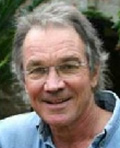 |
Ian McCallum (South Africa) Founding Fellow McCallum is a medical doctor, Jungian psychologist, wilderness guide, founder of the Wilderness Leadership School in the Cape of Good Hope, South Africa, and director of the Wilderness Foundation Africa. He is the author of Thorns to Kilimanjaro, Ecological Intelligence: Rediscovering Ourselves in Nature, and a poetry collection, Wild Gifts. In the 1970s he played fullback for Springbok, South Africa’s national union rugby team. McCallum currently lives in Cape Town with his wife, Sharon. McCallum is also involved with "UNTAMED" a collaborative project that explores the lost balance between humankind and nature. http://www.untamedexhibition.co.za/ |
 |
Robin Meadows (USA) Fellow Meadows covers conservation, agriculture and energy in California, where the three issues intersect and often conflict. She also has a thing for molecular biology. And she's writing What's That Crop?, a fun field guide to California crops: whatsthatcrop.tumblr.com. Her work, which has won several awards, has appeared in Audubon, Conservation, Ecosystem Marketplace, Environmental Health Perspectives, High Country News, Muse, Nature, PLOS Biology, and Smithsonian Zoogoer, among others. She’s a member of the National Association of Science Writers and the Society of Environmental Journalists, and is a board member of the Northern California Science Writers Association. Robin has graduate degrees in biology and science communication; enjoys hiking, photography and travel; and divides her time between California and Hawaii. Visit her website. |
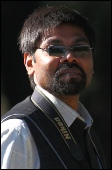 |
Satya Prakash Mehra (India) Fellow Mehra is a trained Environmental Scientist from India associated as the Resource Persons/ Faculty & Guest/ Visiting Faculty and/or Administrate/Manager/Advisor at academic institutions, governmental organizations (GOs), non-governmental organizations (NGOs), Consultancy Firms on the contractual basis in the field of Conservation & Environmental Sciences mainly on the aspects of water & biodiversity since 1999. Presently, he is working on the interdisciplinary site specific approach with local community in the rural and tribal parts of Rajasthan (India) in association with the local and regional NGOs on the concept of “Conservation Practices for Sustainable Livelihood” with the prime focus of Conservation of Water and associated Biodiversity. Academically, Mehra achieved basic sciences degrees of Bachelor, Master and Doctoral in Environmental Sciences along with certificates in allied aspects of Climate Change, Land Use Planning, Disaster Management etc. The professional degrees of Law (LLB) with the continuation of the PG Program in Development Management are the assets of his activist role. Trained in media and journalism during Mehra’s academic life, he has contributed over 20 articles for research and scientific communities whereas more than hundred popular articles are written for the mass mobilization and sensitization in the field of conservation. |
| Linn Cary Mehta (US) Fellow |
|
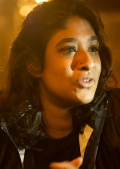 |
Bhavna Menon (India) Fellow Psychology Graduate with a Post Graduate Degree in Journalism, Bhavna's love for nature and the wild started at an early age. A visit to Kanha Tiger Reserve in Madhya Pradesh, India strengthened her desire to be deeply involved in forested landscapes. After an internship with the NGO ‘Nature First’ which works to find solutions to reduce carbon emissions, she moved to on field conservation and started working with an organisation called The Last Wilderness (LWF). During the last six years with LWF, as part of a team and as the project coordinator, she has conducted socio-economic surveys of forest dwellers, undertaken outreach and bio diversity sensitization programmes for the local communities, participated in capacity building and training of frontline Forest Department personnel and executed a project in and around the Panna National Park to provide vocational training to the children of a hunting community called the Pardhis, in order to provide alternative sources of livelihood. The Reports on these projects are available on the LWF website. This apart, she has also written stories in Hindi to dispel myths about animals in order to create awareness about the need to protect them, written a book in English for children on otters as part of a team that works for conservation of Otters in Goa, (Wild Otters) as well as a story on crocodiles dispelling the myth of crocodile 'tears' in the context of the Goa landscape. Bhavna is also interested in putting down her ideas in graphic form and has drawn a series of caricatures depicting man-animal conflict for the LWF website. Her dream is to document the beliefs and cultures of communities all over India (working with them wherever possible) and try and further understand man's relationship with nature in the socio-religious context. She has a blog named bhavnamenon.blogspot.com and tweets as B_menon 86. She is available at the email . |
| Till Meyer (Germany) Founding Fellow Meyer was born in Bayreuth, Germany, and is a resident to Bavarian capital of Munich. For most of his career Meyer wrote for special interest magazines about nature, wildlife and hunting. Ever since 1997 he gave special attention to wilderness matters. One of his more widely recognized wilderness projects was an initiative that put the Bavarian State Ballet into the Wilderness of the Bavarian National Parks. This initiative resulted in different dance performances and also a movie, which Meyer directed. He has also produced and directed an educational movie about conservation and the return of large carnivores to Germany. His book writing endeavors include a children’s book about wildlife and compiling the German edition of World Changing--A Users Guide to the 21st Century. Meyer’s long lasting ambition is to bring Aldo Leopold’s heritage to Germany, which in 1992 resulted in the German edition of Aldo Leopold’s A Sand County Almanac. In his works Meyer strives to render the beautiful intricacies of wild nature to broader audiences, hoping always to heed the warning of Aldo Leopold: In our attempt to make conservation easy, we have made it trivial. A link to Meyer’s ballet in the wilderness film. |
|
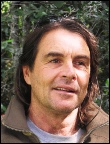 |
Ian Michler (South Africa) Fellow Over thirty years of safari guiding, photojournalism assignments, consultancy projects and conservation work have taken Ian to almost every national park, game reserve and wilderness area in southern and East Africa. His interests cover all the environmental, sustainability, conservation and ecotourism issues and challenges the African continent faces. His work has appeared in a number of publications around the world, and he is the author and photographer of seven natural history and travel books covering Africa. More recently, Ian was the Researcher, Consultant and Lead Character in the award-winning feature documentary Blood Lions and is currently part of the leadership team running the global campaign to end predator breeding and canned hunting. In 2019 he graduated from the Sustainability Institute, Stellenbosch University with a PGDIP in Sustainable Development. He is a member of The Conservation Action Trust, a Director of Eden to Addo and when not out in the field, he is based along the Garden Route in South Africa, where he runs Invent Africa, a safari and ecotourism company offering trips to 16 countries across Africa. |
| Kenton R. Miller (USA) Founding Fellow (deceased) Dr. Miller’s list of accomplishments and esteemed positions within the conservation world are nearly un-matched. As an officer of the United National Food and Agriculture Organization, he headed FAO’s Latin American Program on Wildland Management. He authored the first text on park planning for the Spanish-speaking world, developed and taught graduate programs in parks and wildland management at CATIE (Costa Rica) and the University of Michigan’s School of Natural Resources, and played a significant role in the design and implementation of three World Park Congresses (1982, 1992, and 2003). Dr. Miller also played a significant role in the development of the Global Convention for the Conservation of Biological Diversity (CBD) and held the position of Director General of the IUCN from 1983-1988. He also recently finished his third term as Chair of the WCPA. Miller is a mentor to many conservation leaders around the world, and is recognized particularly for his energetic promotion of innovation and learning in the field of parks and protected areas. |
|
| Anne Minard (USA) Fellow Minard is currently a Ted Scripps Fellow for Environmental Journalism at the University of Colorado at Boulder. She’s a freelance journalist with published articles in National Geographic News, The New York Times Science Times, the L.A. Times, Science magazine, the Associated Press, KNAU (Flagstaff, Arizona’s NPR affiliate), Arizona Highways, High Country News, National Parks magazine and other outlets. Early in her career Minard wrote about science and the environment for newspapers including the (Tucson) Arizona Daily Star, (Flagstaff) Arizona Daily Sun and the Idaho State Journal. She holds B.S. and Master's degrees in biology. |
|
|
Dominic Mitchell (UK) Fellow In 1992 journalist, author and editor Dominic Mitchell founded Birdwatch, now one of Europe’s largest monthly magazines in its field. He continues to act as managing editor of that title, and more recently has taken on the same role at BirdGuides.com. Dominic has written hundreds of articles about birds and birding, with conservation and biodiversity as frequent themes but also with a growing emphasis on ecotourism, responsible travel and local engagement. Through his efforts the magazine served for three years as a BirdLife International Species Champion for the endemic Azores Bullfinch, with tens of thousands of euros channelled into conservation of the endangered species in the archipelago; he is a regular visitor to the islands, leads birdwatching tours there each year and sits on the Portuguese Rarities Committee. He is also a former Council Member of the Ornithological Society of the Middle East. Dominic’s books include A Photographic Handbook of the Rare Birds of Britain and Europe (New Holland), Where to Watch Birds in the London Area (Christopher Helm) and Birds of Europe, North Africa and the Middle East: an Annotated Checklist (Lynx Edicions), while he co-authored Birdwatching (Collins) and edited both A History of Birdwatching in 100 Objects (Bloomsbury) and Gulls of the World (Helm). Gulls are a particular interest, and Dominic also discovered the first-ever Slaty-backed Gull to be documented in Britain (and only the second for Europe). As a keen photographer his work has also been published by Dorling Kindersley, The Guardian, British Birds, Dutch Birding and Ecotravel, among others. Email >| Twitter > | Facebook > |
| John Hanson Mitchell (USA) Fellow For the last thirty years Mitchell has been editor of the environmental journal Sanctuary, published by the Massachusetts Audubon Society. He is also the author of nine books including Ceremonial Time: Fifteen Thousand Years on One Square Mile, Trespassing: An Inquiry into the Private Ownership of Land, and The Wildest Place on Earth: Italian Gardens and the Invention of Wilderness. A former journalist, Mitchell has had assignments in southern India, the South China Sea, and has written extensively about Western Europe. Currently he is writing a natural history of Boston. Among his accomplishments is the John Burroughs Essay Award. |
|
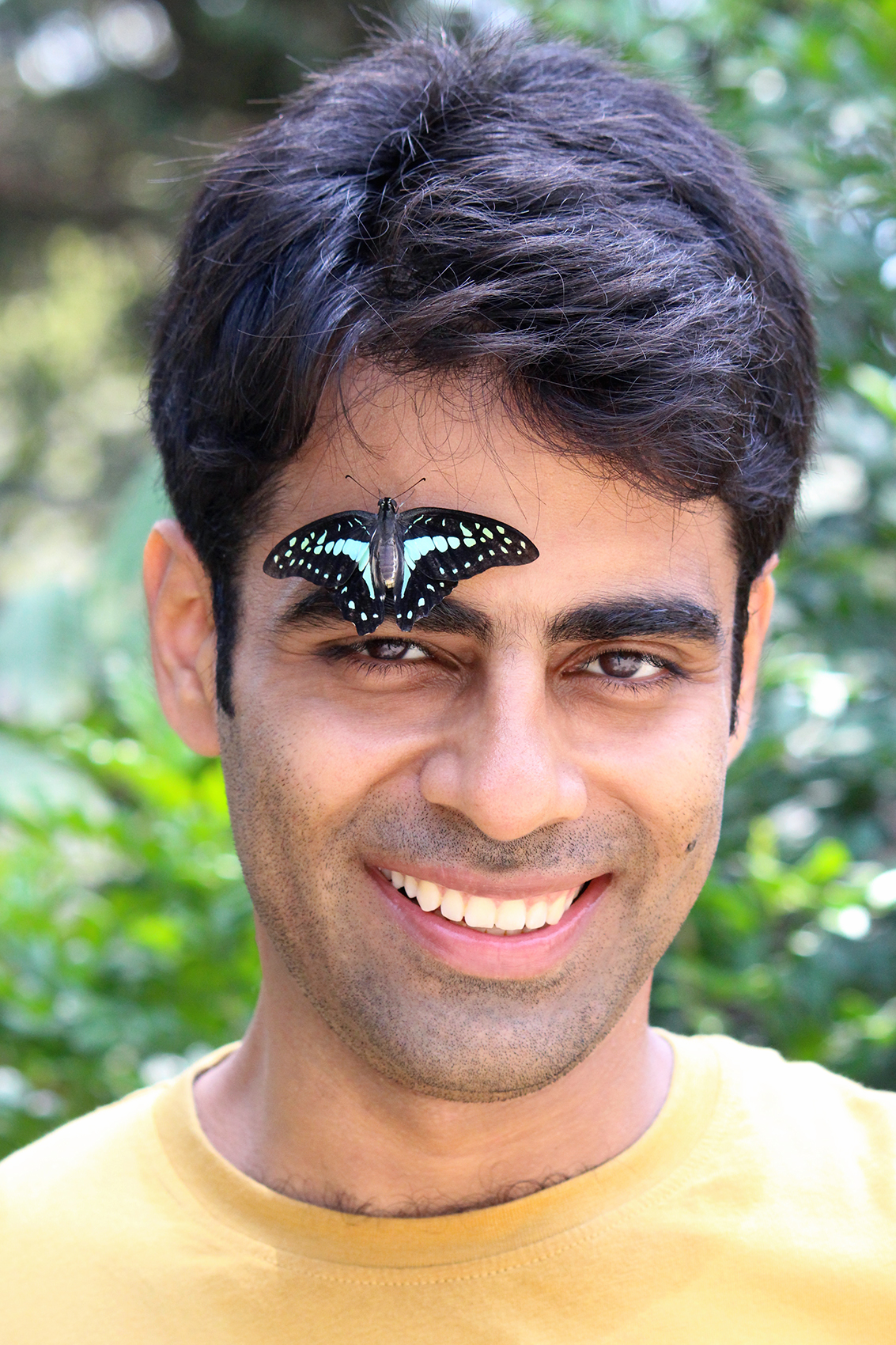 |
Rizwan Mithawala (India) Fellow Mithawala is a conservation journalist and photographer with the Times of India newspaper in Mumbai. While he combines words and images to tell stories of anthropogenic pressures on wildlife, he also believes in showcasing charismatic species as ambassadors for conservation of ecosystems. He has written on subjects like threats to bird habitats, natal homing in sea turtles, habitat fragmentation leading to roadkills, the life cycle of non-feeding moths, the pollination tricks of flowers, the dietary adaptations of urban leopards and the warning colours of grasshoppers to name a few. He regularly publishes in-depth stories on poaching and other illegal activities in protected sanctuaries and anthropogenic pressures on sea turtles and other marine life. He is a Lepidoptera enthusiast and is slowly converting his family graveyard section into a butterfly garden. His personal work includes field observation and high-magnification photographic exploration of Lepidoptera (Butterflies & Moths) evolutionary features and reproductive behaviour. He has assisted various scientists and researchers in camera trapping and scat collection and dietary analysis of leopards and small cats in the Sanjay Gandhi National Park in Mumbai. As a public speaker, he upholds the importance of urban wildlife and native trees, gardening for butterflies, and helping children make connections with nature. He can be contacted on email and lInstagram. |
 |
Sara Mizzi (UK) Fellow Mizzi is an international freelance nature and wildlife conservation writer. She is a member of the Royal Geographic Society and Environment Trust and has written a number of articles on numerous species for international magazines and newspapers including National Wildlife Federation magazine,Africa Geographic, Australian Wildlife magazine, Wild Magazine and The Sunday Times. Follow her writing on her website. Follow Sara on Twitter. |
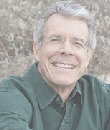 |
John Moir (USA) Fellow Moir is an environmental journalist who often writes about preserving biodiversity. His work has appeared in the New York Times, Smithsonian, Washington Post, Christian Science Monitor and many conservation publications. He is the author of two nonfiction books including Return of the Condor: The Race to Save Our Largest Bird from Extinction, which was a finalist for the William Saroyan International Writing Prize from Stanford University as well as being honored by the National Association of Science Writers. John has also contributed to three anthologies and has received numerous awards for his writing including First Place in Literature from the 2014 Eco Arts awards and First Place for Profile from the 2013 American Society of Journalists and Authors awards. Contact John through his website. |
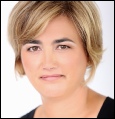 |
Suzanne Mondoux (Canada) Fellow French Canadian Suzanne Mondoux has found passion and purpose in writing as a way to share stories about conservation. Stories allow a reader to dive into the life of animals living and dying in dire circumstances brought on by human fear and desperation, and how life is for those dedicated to being a voice and warrior for all Animal Beings. Suzanne has written two novels 1) How I Became a Dragon and 2) Tragedy of the Moth. How I Became a Dragon explores the day and the life of a young conservationist faced with challenges of working the Republic of Congo, while trying to save lives. Tragedy of the Moth is not a traditional fiction novel or novel on conservation but on the choices people are faced with, while others deemed themselves judge and jury. The story does touch gently on human sacrifice to save others in Africa. This story takes you the journey of poetry, screenplay, and play. Suzanne is currently working on her third novel -- title yet to be confirmed. However, it is a fantastical fiction novel about equality with all Beings - Humans and Animals --Beings! Délia born of an Assisi Human mother was relinquished to a Being a few days after her birth. This thirteen year old girl discovers her duty in life and the challenges that come with it. She finds courage and wisdom throughout her journey in this mythical world to return home and finding her voice, the warrior to ensure all Beings are equal. For more information see her website or contact her at email. |
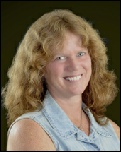 |
Barbara Moritsch (USA) Fellow Moritsch is the author of The Soul of Yosemite: Finding, Defending, and Saving the Valley's Sacred Wild Nature (2012). She retired from the U.S. National Park Service in 2006, after working as a ranger, naturalist, biologist, and plant ecologist in five western parks--Sequoia, Kings Canyon, Death Valley, Yosemite, and Point Reyes. She can be contacted through email. Please visit her website for more information. |
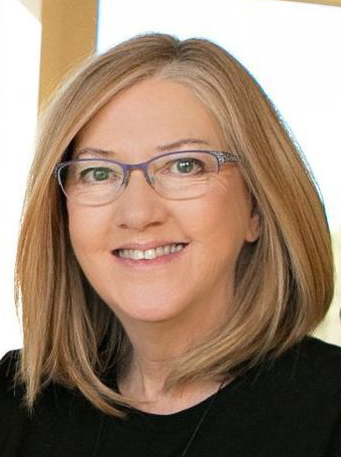 |
Cathy Morrison (USA) Fellow Morrison is an award winning children's book illustrator passionate about nature, science and the environment. Combining her degrees in fine arts and education along with her background in animation and graphic design she now researches and illustrates "creative-nonfiction" picture books. These books have a dual mission of being a fun read aloud as well as containing additional back matter that support classroom literacy and science standards. Connecting today's kids with an understanding and love for nature will hopefully inspire them to become stewards of our planet tomorrow. You can find more information on her Studio With a View Blog. |
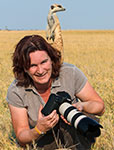 |
Anette Mossbacher (Switzerland) Fellow Anette’s work involves a diverse range of projects. She has contributed to the ARKive for endangered species and had her images published in a variety of publications around the world, from National Geographic, Forbes, BBC Wildlife, CNN, GQ, Conde Nast, X-Rite, MacGroup, Data Color, The Times, and Cox & King. Anette is a member of the Society of German Wildlife Photographers and the Royal Photographic Society. Website. |
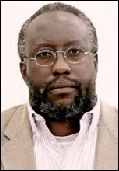 |
Wycliffe Muga (Kenya) Fellow Muga is the weekend editor as well as a columnist for The Star; and a contributing editor (Science and Technology) for the East African Flyer. He also contributes a weekly “Letter from Africa” to theBBC World Service (Business Daily). He is a former columnist for the Kenyan Daily Nationnewspaper, and the monthly magazines, Nairobi-based Diplomat East Africa, and the London-basedAfrican Business. In 2006, he was listed by the Financial Times as "Kenya’s most influential print commentator." And in 2011, he won the Diageo Africa Business Reporting Award prize for Best Tourism Feature and has been a finalist for this award several times, both in radio and in print. He is also a previous winner (2004/5) of the Peter Jenkins Awards for East African Conservation Journalism. Muga is a Fellow of the Knight Science Journalism Fellowship at Massachusetts Institute of Technology (MIT); and a Fellow of the Property and Environment Research Centre (PERC) in Bozeman, Montana. Email. |
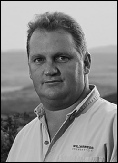 |
Andrew Muir (South Africa) Fellow Muir is chief executive officer of the Wilderness Foundation, South Africa, and is an environmental activist, conservationist, and community leader. He has dedicated his life to conservation and social development and was mentored by conservation icon Dr. Ian Player for 13 years. Muir took over Player's legacy in the management of the various organizations that Player had founded, including the world famous Wilderness Leadership School and Wilderness Foundation in South Africa. As director of the Wilderness Foundation, Muir is involved in a number of projects dedicated to social and environmental sustainability including the South African–based Umzi Wethu program which he founded in 2006. The program targets vulnerable youth that show resilience and ambition, but despair of opportunities to support their households, and gives them the skills and training to become highly employable young adults. Muir was honored as an International Rolex Awards Laureate in 2008 as well as the South African Conservationist of the Year in 2007. He was also the winner of the 2011 Ernst & Young World Entrepreneur Awards Program in the Social entrepreneur category. The award was won based on the large number of sustainable program that the Wilderness Foundation runs dedicated to social and environmental sustainability. Muir has a Masters Degree in Environment and Development from the University of Natal, Pietermaritzburg and serves on a number of non-profit and conservation boards. |
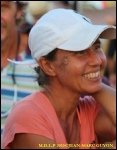 |
Donna Mulvenna (French Guiana) Fellow Donna Mulvenna is a horticulturist, nature and sports writer, and author of Wild Roots, Coming Alive in the French Amazon. She lives surrounded by wildlife in French Guiana. Her ramblings offer readers a glimpse into the fascinating world of the Amazon rainforest, reveal its profound effect on each of us and, she hopes, inspires us to build our own connection with the natural world. It doesn’t make a whole lot of sense to people who are not her kind of wild, but Donna refuses to own a mobile phone, rarely wears shoes, and is passionate about living on a whole food, plant-based diet. If she can’t be writing from her treetop office, swinging in a hammock or somewhere off the coast reading from a sea kayak, she will be hurtling along the wild rivers of the Amazon in a sprint canoe. You can find her on Facebook and Twitter |
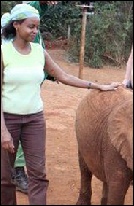 |
Kari W. Mutu (Kenya) Fellow Mutu is responsible for the communications and marketing of a conservation and eco-tourism organization in Kenya. She is a trained public speaker and speaking coach. From an early age Mutu has been an avid reader with a strong interest in wildlife and the environment. Currently she is pursuing these twin loves as a freelance writer focusing on topics of conservation, eco-tourism and sustainable land-use. Mutu’s articles have appeared in many publications including East African Wildlife Society (SWARA), East Africa Destination magazine and local dailies. She is a member of Nature Kenya, East African Wildlife Society and the Kenya Museums Society. Through her writing, Mutu wants to bring awareness to environmental issues in Kenya, the fragile state of these areas, and their immense value to local communities and the country. Mutu has also coordinated the PR and communication for a sports event for young Maasai men aimed at providing alternatives to the traditional coming-of-age pursuit of lion killing. Email. |
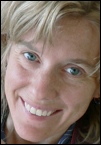 |
Michelle Nijhuis (USA) Fellow Michelle Nijhuis is a longtime contributing editor of High Country News and a contributing writer forSmithsonian. Her work has appeared in many other publications including National Geographic, The Atlantic, and The New York Times, and been included in the anthologies Best American Science Writing and Best American Science and Nature Writing. A lapsed biologist, she specializes in long-form stories about conservation and global change, but she's covered subjects ranging from border security to wrestling. In 2011, as an Alicia Patterson Foundation fellow, she reported on radical measures to conserve critically endangered species. She lives in rural western Colorado with her husband and young daughter. Follow her on Twitter @nijhuism or read more about her work at website. |
 |
Barbara Norton (USA) Associate Barbara graduated with a BA in Chemistry from Florida Southern College and then received an MA in Librarianship and Information Science from the University of Denver. She was the Manager/Chief Librarian of the Technical Information Center at Manville Corporation for 11 years. Norton then became the Manager of Project Information for Chronopol Inc. (a company of ACX Technologies). At Chronopol she was the liason between the scientific researchers and the company’s patent attorneys. She is the founder of Norton Information Services which specializes in patent and scientific literature research. |
 |
Boyd Norton (USA) Founding Fellow Norton has been photographing and working to save wilderness worldwide for more than 45 years and is the author and/or photographer of sixteen books. His most recent book, Serengeti: The Eternal Beginning, has won praise from Jane Goodall, Richard Engel of NBC News and was selected as a finalist for the Colorado 2012 Book Awards. His writing and photography has been featured in most major magazines in the United States and Europe. Norton, a conservationist, has testified numerous times before the US Congress on behalf of park legislation and wilderness proposals. He played a key role in establishing the Jedediah Smith Wilderness Area, the Sawtooth National Recreation Area, the Hells Canyon National Recreation Area and new national parks in Alaska. He also worked with the late David Brower in helping to establish Siberia's Lake Baikal as a World Heritage Site (the status was granted in 1996). He is a founding Fellow of the International League of Conservation Photographers (iLCP) and is a co-founder and co-director of Serengeti Watch, a non-profit dedicated to the preservation of the Serengeti ecosystem. He has been an invited speaker and panelist at the 8th and 9th World Wilderness Congress and will be participating in the 10th World Wilderness Congress in Salamanca, Spain in October, 2013. For more information see his website. |
.jpg) |
Shirley Nuhn (USA)Fellow Shirley Nuhn is a freelance writer, editor, educator, and researcher. From 1996 to 2018, she was an adjunct instructor at Northern Virginia Community College (NOVA). She holds an M.A. in Linguistics from George Mason University, Fairfax, Virginia; and a B.A. in Communication from Marquette University, Milwaukee, Wisconsin. She has written for and edited technical proposals, medical protocols, journals, and more. Her essays and articles have been published in The Washington Post, Northern Virginia Magazine, The Picture Professional, and other periodicals. In 2006, she initiated Nature Photography Day, June 15, through the North American Nature Photography Association. That day is observed nationally and worldwide. For NOVA, Nuhn created podcasts, alongside students, beginning in 2007. NOVA maintains Nuhn's three podcast series in English as a Second Language (ESL) studies on web pages of the Languages, Arts, and Sciences Division, and the Annandale campus library. She produced podcasts for the Awards Ceremony of Calliope, the student journal of literature and art at Annandale. (These productions are also available via Apple podcasts.) Nuhn received two NOVA Educational Foundation grants for pilots in ESL and science, technology, engineering, and math; two professional development grants; and three technology grants. In addition, she taught mainstream composition and developmental reading at NOVA, plus tutored business professionals through NOVA and George Mason University. Care for Our Common Home (CCH), which Nuhn has served since 2017, is a ministry that comprises faith-based action locally and worldwide, inspired by Pope Francis's encyclical Laudato Si: On Care for Our Common Home. As with similarly named groups, its mission is to encourage greater awareness and action regarding precious natural resources, plus the effect of climate change on all life forms. Nuhn's endeavors locally are research and curation of contents regarding the environment, conservation, legislation, and more. Reliable sources of information include her professional memberships, scientific reports, mainstream media, and others. Nuhn assists in planning CCH events as well. You can reach her at her email. |
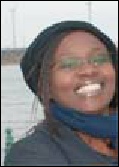 |
Rosalia Omungo (Kenya) Fellow Rosalia Omungo is currently a Knight Science Journalism fellow at Massachusetts Institute of Technology. She is a television journalist and news editor for the Kenya Broadcasting Corporation in Nairobi, where she leads the Health, Science and environment desk, overseeing features reporting, Your Health and Eco Watch programmes. In 2014, she was selected as the first Earth Journalism Scholar at the University of California Berkeley Graduate School of Journalism, where she spent Spring 2014 semester taking advanced classes in journalism and environmental studies. Her work has earned her accolades among them Commonwealth award for excellence in reporting environment in Africa (2010). She reports on climate change, water, biodiversity and agriculture. She is the chairperson of the Kenya Environment and Science Journalists Association (KENSJA) and member of the Kenya Editors Guild as well as the Society for Environmental Journalists. She has a Masters degree in Development Communication from Daystar University, Kenya. Twitter:@rayzalia. E-mail. |
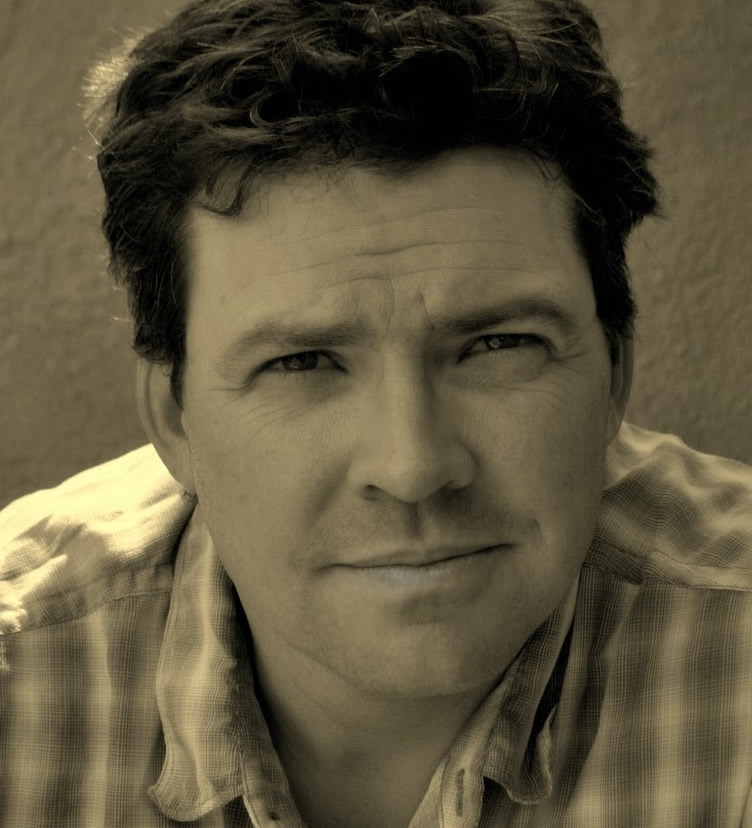 |
Jim O’Donnell (USA) Fellow Jim O’Donnell is an award winning wilderness advocate, author and conservation photographer based in Taos, New Mexico. His work has appeared in National Geographic Maps, Discover, Scientific American, Ensia, Sapiens, BBC Travel, Sierra, CityLab, New Mexico Magazine, and YaleEnvironment360 among others. Jim is the author of “Notes for the Aurora Society: 1500 miles on foot across Finland” and a wide range of environmental essays and fiction short stories. Jim is a long-time wilderness advocate in the American Southwest where he works to protect and restore wetlands and watersheds. Increasingly, Jim’s focus is on the forced migration of human beings due to climate change. He leads yearly photography tours to Cuba. Learn more at his website. |
 |
Michael Overton (UK) Fellow Michael completed his PhD at the University of Cambridge titled "Rewilding in the Oder Delta, Germany/Poland: Ecological, social and economic drivers of landscape change". He has written for several years on the topic of rewilding, including for the journal ECOS, as a guest blogger for Rewilding Europe, and on his own website. His award-winning masters thesis offered an ethnographic perspective on contemporary moral values and meanings around 'wildness' in the Yellowstone, USA. |
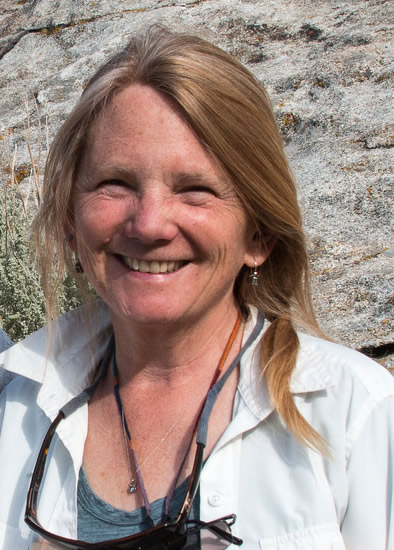 |
Christine Paige (USA) Fellow Christine’s passions are the wild creatures and wild places of the planet. She is a wildlife biologist, conservationist, science writer, and amateur photographer. She completed her master’s degree in wildlife biology at the University of Montana, Missoula, and has been base-camped in the northern Rocky Mountains ever since. Her work in wildlife studies and conservation has carried her afield throughout the western U.S. and abroad, including Africa, the Caribbean, Mexico, and South America. She has been involved in field studies of behavior, habitat relationships and ecology on a wide variety of species, from bald eagles and songbirds to pikas and African wild dogs. As a writer, Christine views her role as a bridge between science and conservation. She writes natural history and conservation articles for a variety of magazines, and creates outreach publications that bring new science and conservation solutions into the hands of landowners and managers. These include a “Science to Solutions” series on sage-grouse, a habitat management guide for birds in sagebrush habitats, and a “State of America’s Wildlife” report for the US Congress. Two practical handbooks she wrote on wildlife and fences have reached audiences around the globe. In the past two years, she has also had the privilege to serve as visiting faculty for science communications for the Tropical Ecology course at Cocha Cashu Biological Station in Manu National Park, Peru. Christine is currently working on a book on human-wildlife coexistence, which will explore case studies around the globe where communities are learning to live with challenging species. Email. |
 |
Beatriz Padilla (Mexico) Fellow beatrizpadilla is a visual artist working for the environment. Focused on the portrayal of endangered and protected wilderness around the world, beatrizpadilla is creating an increasingly powerful statement for nature conservation. To date her painting expeditions cover twenty conservation projects spanning from Tierra del Fuego to the US and from Europe to southern and central Africa. She has produced environmental education and information videos, and has worked on the project to design and build Mexico’s first, and so far only, transcontinental solar racecar. Her organization Tinta Vital is creating comic books for the preservation of wildlife and wilderness to be given to local people in areas where their natural surroundings may be compromised by resource extraction. Educating local people through comic books will allow conservation efforts to reach a larger public and allow field conservationists to venture into wild areas in a friendlier social environment. |
| Papiya Pal (India) Fellow Papiya is a Common Wealth Scholar with a double Masters in Sustainable Development and Environment Management. She has worked extensively with various grassroot organizations, NGOs and INGOs and UN bodies. Papiya was a consultant to the Ministry of Environment and Forestry (MOEF, India) and UNIDO where she was part of the development team for National Implementation Plan for Stockholm Convention on Persistent Organic Pollutants. She actively represented her organizations in various international meetings, workshops and conferences. She published papers, reports, contributed to magazines and websites and authored fact sheets and news letters. After working for over fifteen years in areas pertaining to environment and sustainability she is now concentrating on connecting children to nature. In this digital age Papiya is a strong proponent that children should be connected to nature and art can be a great way of doing that as children very easily relate to all kinds of art forms. Once children connect with nature, they will care to conserve the environment. With this intention Papiya has formed a Children, Art and Nature network group of around 4000 people from all over the world. The group has attracted talented painters, sculptors, writers, poets, musicians and dancers who strongly believes that nature needs to be protected and conserved and children can play an important role in that. You can reach Papiya at email or facebook. |
|
 |
Charuni Pathmeswaran (Sri Lanka) Associate Charuni is an undergraduate at the University of Colombo, Sri Lanka, where she is following the Environmental Science Programme. She contributes to the Students’ Blog which gives her a platform to write about local and global environmental issues. One of her major interests lies in the human-elephant conflict that is prevalent in certain areas in Sri Lanka. She believes that conservation and community development should go hand in hand for man and animal to coexist. She can be contacted via email |
 |
Bruce C. Paton, M.D. (USA) Fellow (deceased) Bruce Paton was born in India where his father was a doctor in the Indian Medical Service and was educated in Scotland, including receiving his medical degree from the University of Edinburgh. He developed an interest in the outdoors and climbing at an early age and has been an ardent bird-watcher since the age of nine. After graduating from medical school he worked in a remote region of Kenya for a year before returning to Scotland for additional training. During his time in Kenya Paton climbed Kilimanjaro as doctor with the first Outward Bound course ever held in Africa. He spent eight years in training and moved to Denver, Colorado USA and joined the faculty of the University of Colorado School of medicine becoming Chief of Cardiac Surgery and Acting Dean. During this period he became involved in environmental concerns as President of the Denver Audubon Society and Chairman of the Board of the Colorado Outward Bound School and President of the Wilderness Medical Society. He is a member of the American Alpine Club and a lifetime member of the Nature Conservancy. In addition to professional writings he wrote a regular column for a climbing magazine. He has written two books about the history of North American exploration, Lewis and Clark: Doctors in the Wilderness and Adventuring with Boldness. |
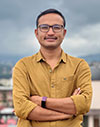 |
Kumar Paudel (Nepal) Fellow Kumar Paudel is a conservation scholar-practitioner from Nepal with an MPhil in Conservation Leadership from the University of Cambridge. He is the Founder and Director of Greenhood Nepal, a science-driven conservation non-profit. He is currently serving as IUCN SSC Pangolin Specialist Group Co-Chair for South Asia. His work primarily lies in interdisciplinary conservation research covering law enforcement, wildlife trade, community-based conservation, conservation strategy & policy. He communicates his conservation research findings to local communities and the larger public using poetry, traditional songs, children's story books and editorials in popular media. |
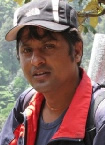 |
Prakash K. Paudel (Nepal) Fellow Dr. Paudel is a Conservation Biologist whose interests include the biogeography of Himalayan birds, mammals and butterflies, with a special focus on altitudinal gradients of species diversity, reserve design in face of global change, and conservation education. He earned a Ph.D. in the Biology of Ecosystems at the University of South Bohemia in 2012, and then worked as a Research Scientist at the Global Change Research Center of Czech Academy of Sciences. He is now Executive Editor of the Journal Conservation Science. He is co-author of the textbook “Conservation Biology: A Primer for Nepal”. Dr. Paudel contributed several chapters to books about biodiversity, and his articles have appeared in many prestigious journals. He is writing a popular book about nature conservation targeting general audience in his native country Nepal. Email |
 |
Rowena Paxton (UK) Fellow African wildlife enthusiast and a Fellow of the Royal Geographic Society, Rowena Paxton, co-founded Planet Afryca, an online digital publishing company committed to continuing the legacy of renowned vet (Daktari) and wildlife educator, Dr. Sue Hart. When Sue passed away in 2010, Rowena, her good friend and business partner, set about continuing their joint vision of sharing the magic of the African wilderness and the enchantment of the bushveld with children around the world. To that end, Rowena has brought Sue Hart’s collection of short stories, Tales of the Full Moon, into the 21st century, through a range of educational, entertaining and interactive media for children (and adults) in the form of short films, apps, audio books and an eBook. Recently, they have been made available in Mandarin, not only providing an opportunity for English speakers learning the language to hone their skills but, importantly, opening children in China up to the vital lessons which Planet Afryca is trying to teach. Together these materials create a virtual world that immerses the audience in the beauty and diversity of Sue Hart’s African wilderness. If Planet Afryca can, in some small way, help children to connect with the animals that inspire so many of us and, through that connection, they can learn to respect and maybe even preserve the African Bushveld of “Daktari”, then the legacy of “Daktari Sue” will live on. Website |
 |
Mark Pearson (UK) Fellow Mark is natural history writer (most often inspired by birds) and a dedicated conservationist of many years standing. A trained ornithologist and passionate birder, he has recently concentrated on people engagement and outreach, especially within urban communities. He is regularly approached to promote birds and wildlife in the media, and recent television and radio appearances have included BBC Springwatch and Autumnwatch, BBC Natural World, various radio stations, NPR in the USA, The World Service and others. Mark is often commissioned to write articles for wildlife magazines and journals, recently including Birdwatch, Natural World, Wild London, Birdguides andLost In London. He is also a successful songwriter and musician, and is presently working on his first book. Mark and his work can be tracked down at his website. |
| Diane Josephy Peavey (USA) Fellow Peavey writes stories about her life on a sheep and cattle ranch in south-central Idaho--its people, history and the changing landscape of the American west. These pieces have aired weekly on Idaho Public Radio for 15 years and many are collected in her book Bitterbrush Country: Living on the Edge of the Land (Fulcrum Publishing, 2001). Her writings also have appeared in numerous magazines, journals and in anthologies. Peavey has been an invited poet at the National Cowboy Poetry Gathering in Elko, Nevada and a panelist in discussions on Women in Ranching at this event. She was the first director of the Idaho Rural Council, the Literature Director for the Idaho Commission on the Arts and is the co-founder with her husband John of the October Trailing of the Sheep Festival in the Wood River Valley, Idaho. |
|
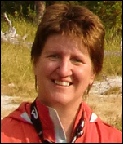 |
Mary Pellerito (USA) Fellow Pellerito is a freelance nature and garden writer. She is in the process of turning her yard into a wildlife garden. Check out her blog, Going Native, where she chronicles her thoughts and experiences about the natural world around her. |
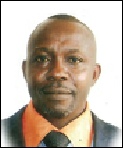 |
Roger Pholo (D.R. Congo) Fellow Pholo is an environment journalist and general secretary of the Congolese network of environment journalists, a farmer, and a community leader and human rights defender. He works as the national focal point of TerrAfrica network CSOs involved in the land management with a desire to be more involved in the work. He is also the focal point director of Green Impact Drc. Pholo is the redaction secretary of the newspaper Info-Environement and may be reached at P.O. Box 3659, Kinshasa-Gombe. 0024399218472. He may be contacted at Email1 or at Email2. |
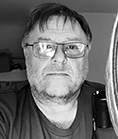 |
Phil Pickin (UK) Fellow Phil Pickin is a freelance photographer, features writer and a senior contributor to a number of publications and websites. A passionate environmentalist and conservationist, he is particularly interested in birds and has contributed a number of articles and blog posts on the subject. In addition, he has a keen interest in the benefits of connecting with the natural world on both our physical and mental health. Phil is a member of - and has worked with - a number of wildlife charities, including the RSPB and the BTO, in addition to a number of local trusts and societies. Examples of his work can be found on his website, together with links to his social media accounts. |
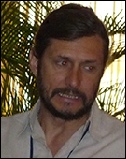 |
Rodrigo García Píngaro (Uruguay) Fellow García leads the Organization for Cetacean Conservation (OCC), one of the first citizen organizations to promote coastal and marine conservation in Uruguay. He focuses on restructuring the socioeconomic forces that lead to environmental problems and on building a coalition of environmentalists, local citizens, tourists, businesses and government that co-develop solutions with both environmental and economic benefits. In 2007, after a four-year campaign, the OCC succeeded in reinstating Uruguay in the International Whaling Commission after a 22-year absence. García worked to get Uruguay included in the World Tourism Circuit dedicated to Whale Watching. To bolster protection of the coast as a whole, he developed a “whale route” that integrates marine and coastal tourism. García may be contacted at email. For more information about OCC, please visit the website. |
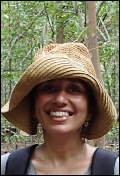 |
Anne Pinto-Rodrigues (Netherlands) Fellow Anne is an Amsterdam-based writer and photographer, passionate about nature and its conservation. Her writings highlight endemic species, indigenous peoples and local artisans, especially in Asia. Starting from an early age, Anne was rescuing injured animals around her home in Bombay (now Mumbai), India and was a birdwatching enthusiast as well. Later, she obtained an undergraduate degree in Life Sciences-Biochemistry and became a Life Member of the Bombay Natural History Society. Following her MBA from the University of Maryland, USA; Anne went on to have a corporate career in brand management and communications with leading global brands. She has now transitioned to writing full time and is an ardent nature advocate. She values the power of social media in amplifying the conservation message. Anne contributes to several publications internationally and her first book on the ‘Peranakan Tiles of Singapore’ was released in 2015. She chronicles her travels and nature experiences on her personal blog No Roads Barred and can be reached via email. You can read more of her published articles on her website and follow her on Twitter or Instagram. |
|
Ian Player (South Africa) Founding Fellow (deceased) Player was born in South Africa in 1927 and educated at St. John’s College, Johannesburg. During World War II, he served in the 6th South African Armoured Division in Italy from 1944–1946. He joined the Natal Parks Board in 1952 and became warden of the Umfolozi Game Reserve. He obtained protection status for the Umfolozi and St. Lucia Wilderness areas, the first designated wilderness areas on the African continent. He helped save the southern race of the white rhino from extinction. He is the founder of the Wilderness Leadership School that for the last fifty years has educated generations of conservationists from three continents. He convened the first World Wilderness Congress in 1977 and the eight subsequent congresses around the world. He is the author of Zulu Wilderness. |
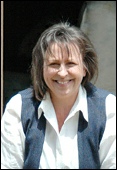 |
Margi Prideaux (Australia) Fellow As a negotiator and independent academic, with a PhD in wildlife policy and law, Margi has written professionally to inform policy audiences in more than 20 different international conservation processes. Her academic monograph Global Environmental Governance, Civil Society and Wildlife:Birdsong After the Storm speaks to the need for collaboration at the international governance table to secure what is precious in the face of an unprecedented ‘storm’ of environmental and political change facing the world. Under contract to Ashgate Publishing the book will be released in March 2017. She has begun a second, non-fiction book Wild Tapestry: The loom of survival that will be release in mid 2017. Along the way, her shorter musings about wildlife and conservation have been published onopenDemocracy, Global Policy, AlterNet and Ecologist. Margi can be reached at email, a collection ofMargi’s writing can be read at WildPolitics. |
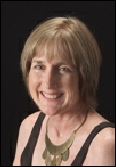 |
Mary Purvis (USA) Fellow Purvis first arrived in Kenya thirty years ago to escort a safari group. She became passionate about the country, wildlife, and safaris, and continued to work in the safari and travel industry for twenty years. During those years, her safari adventures prompted her to write. Now, as a freelance writer, Mary primarily covers stories about wildlife conservation writing for RSPB, Birdlife International, the East African Wildlife Society's publication (SWARA), various websites, and also blogs on her site: www.makenasafaritales.com. She is working on a novel that is based in Kenya, which incorporates the poaching crisis of the 1980s, as well as ongoing conservation and wildlife issues in East Africa. Mary's latest project is getting the word out about crowding and wildlife harassment in reserves and parks. She feels that spreading awareness among tour companies and tourists can facilitate resolving the issue, so a pamphlet has been created addressing universal game drive guidelines that can be found on her website. Not totally giving up safaris, Mary owns Makena Safaris LLC, a small company specializing in custom safaris that are low-impact and conservation oriented. Email. |
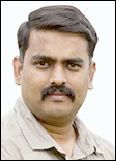 |
Rajesh Puttaswamaiah (India) Fellow Rajesh is a Global Immigration lawyer by profession and a passionate Naturalist based in Bengaluru, India. He is an adventurous explorer by nature and involved in exploring new habitats and documenting animal behavior for more than two decades. He is presently a Founding Trustee of Bat Conservation India Trust and involved in carrying out conservation action through research and education. He is also a wildlife photographer, citizen scientist and an avid writer who has contributed extensively for various books and magazines across the world. Some of his articles are published in magazines like Sanctuary Asia, Saevus, Indian Birds, Birds of Konkan and Goa, Euro-Parrot andIndian Mammals. As an educator he has conducted numerous presentations, events and field trips for all age groups (as early as 3 years) thus inspiring more people to respect nature. Email |
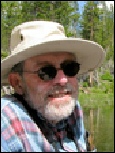 |
Bernard Quetchenbach (USA) Fellow Quetchenbach was born in Rochester, New York, and lives in Billings, Montana, where he teaches at Montana State University Billings. His poetry, essays, articles, reviews, and literary criticism have appeared in a variety of magazines and anthologies. His most recent book is an essay collection, Accidental Gravity: Residents, Travelers, and the Landscape of Memory, (2017, Oregon State University Press) He has published two books of poetry, The Hermit's Place (2010, Wild Leaf Press) and Everything as It Happens (2007, FootHills Publishing), two poetry chapbooks, and an ecocritical study, Back from the Far Field: American Nature Poetry in the Late Twentieth Century (2000, UP of Virginia). He edited The Bunch Grass Motel: The Collected Poems of Randall Gloege (2017, University of Montana Press) and was co-editor of Lake Hollingsworth: Reflections and Studies on a Florida Landmark (2005, History Press). A long-time member of the Association for the Study of Literature and the Environment (Asle), he has served on the program planning board for Nature and Environmental Writers/College and University Educators (New-Cue), and is currently chapter president of the Eastern Wildlands Chapter of the Montana Wilderness Association. Website. Email. I also now have a catalog link for Bunch Grass:. And a website, fairly primitive, for me and Email. |
| Rajeev Raghavan (India) Academic Raghavan has been writing popular articles as well as research papers on freshwater fish conservation and management in the local, national and international arena since 2000. Currently there are 45 publications to his credit which include 15 popular articles and 16 research papers (cited in the SCI) apart from book chapters and conference proceedings. |
|
 |
Aditi Rajagopal (India) Fellow Aditi Rajagopal is a reporter at Deutsche Welle in Berlin, on a show about the state of the environment in both India and Europe. She reports on climate justice, wildlife conservation and green technology - occasionally also writing on science and nature for Discovery.com. Aditi has previously worked on wildlife films for broadcast - notably River Monsters with Jeremy Wade, Animal Planet's highest-ever rated series, and it's conservation-oriented sequel Mighty Rivers. An art film she wrote on elephant conservation in Karnataka, India, has just been nominated at two of the most prestigious wildlife film festivals in the world - Jackson Hole and Wildscreen Festival. Aditi says that her life changed when someone pointed out a fake eye on a caterpillar, otherwise completely camouflaged on a deep green branch in the Bombay monsoons. It took her into a vortex of intelligence and design in nature, and nothing felt the same after. She believes that the natural world has such a broad wealth of stories to tell us, and wisdom to share - and she loves the idea of being a bridge between scientists and researchers, and those aren't so lucky as to spend all their time out in the wild. Email, YouTube channel. |
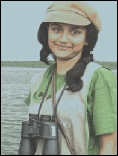 |
Shalini Rajakaruna (Sri Lanka) Associate Rajakaruna is pursuing a PhD in Ecology at the Post Graduate Institute of Science, University of Peradeniya. Living on a small island in the Indian Ocean, one that is considered a bio-diversity hot spot, Rajakaruna was always inspired by nature’s beauty as it drew her interests towards exploring the natural environment around her. She obtained an Applied Biology degree from Rajarata University of Sri Lanka in 2011 and plans to do research work in animal behavior, ecosystem management and community participation for conservation. Rajakaruna won the best writer award for her essay “Inspiring the communities to protect the forests” at the Asia Pacific Forestry week, 2011 in Beijing organized by the FAO. She also won the prize for the best internship report of the Students Conference on Conservation Science, University of Cambridge, UK, 2013. An amateur writer in conservation Rajakaruna hopes to use her passion in writing for the betterment of both man and environment. |
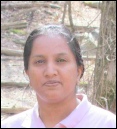 |
Lakshmy Raman (India) Fellow When not behind her desk meeting deadlines, Executive Editor, Sanctuary Asia , India’s best-known wildlife and conservation magazine, Lakshmy Raman, enjoys reading, and long walks in wooded trails. Co-editor of The Tadoba Inheritance and Wild Maharashtra, large format books on Maharashtra’s wilderness areas, she has always felt a deep connection with the natural world. Her articles on nature, travel, climate change and the current issues facing India's wildlife have been widely published. With a background in biochemistry and zoology, she is passionate about nature writing and conservation issues and believes it offers a great common ground on which science and traditional ecological knowledge can thrive. |
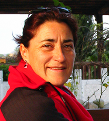 |
Mar Ramirez (Spain) Fellow Ramirez is a trained environmental biologist devoted to communicate on wilderness conservation with extensive experience in writing about nature and wildlife. Because of her passion for nature and mountains she worked as mountain guide for 12 years and from this experience she kept maintaining that ecotourism and hiking in protected areas is an excellent option for local development linked to the wilderness and a feasible way that helps to save the planet. She has written several hiking and ecotourism guides and nowadays is focused on environmental writing regularly featuring stories on the most important Spanish newspapers and magazines on wilderness, ecotourism and travel books in nature and she is also involved in nature travels throughout two usual contributions in radio broadcasting. Recently she has launched a blog in an online magazine based on sustainable tourism. Ramirez has been involved in the marketing and PR for several conservation projects: as Media and Fundraising Director of WILD10, media liaison for the Wild Wonders of Europe launch in Spain, Portugal and Andorra; and curator of the Wild Wonders of Europe Outdoor Exhibition in Madrid in 2012. |
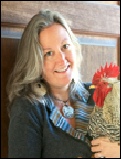 |
Jamie K. Reaser (USA) Fellow Reaser has a deep fondness for the wild, intimate, and unnameable. She received a BS in Field Biology, with a minor in Studio Art, from the College of William and Mary and her doctorate in Biology from Stanford University. She has worked around the world as a biologist, international policy negotiator, environmental educator, and wilderness rites-of-passage guide. She is also a practitioner and teacher of eco-psychology, nature-based spirituality, and various approaches to expanding human consciousness, as well as a poet, writer, artist, and homesteader-in-progress. Jamie has a passion for bringing people into their hearts, inspiring the heartbeat of community, and, ultimately, empowering people to live with a heart-felt dedication to Mother Earth. Her writing explores themes related to Nature and human nature in the context of this inspiring, yet challenging, time of the Great Turning. She is the editor of Courting the Wild: Love Affairs with the Land (Hiraeth Press, 2008) and Courting the Wild: Love Affairs with Reptiles and Amphibians (Hiraeth Press, 2009), as well as the author of Bring Back the Birds: What You Can Do to Save Threatened Species (Stackpole Press, 1995), Huntley Meadows: A Naturalist’s Journal in Verse(Hiraeth Press, 2010) and Note to Self: Poems for Changing the World from the Inside Out (Hiraeth Press, 2011). Her next collection of poetry, "Sacred Reciprocity: Courting the Beloved in Everyday Life," will be released by Hiraeth Press in August 2012. Jamie makes her home in the Blue Ridge Mountains of Virginia. Visit her Talking Waters poetry blog, or through Talking Waters on Facebook. |
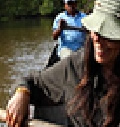 |
Micòl Ricci (Italy) Fellow Ricci chose, after humanistic studies and years of work in international companies, to turn her love for literature into a profession, devoting herself to editing and creative writing. She is passionate about Italy and has explored it extensively. Ricci also has a deep love for travel and has been throughout the world searching for new and original stories. The first photographic book on the Apennine Brown Bear, for which Ricci wrote the lyrical text, has just been published. Prior to that, her most recent book is a collection of tales for children. Ricci is a blogger collaborating for the WWF Nature, and a senior editor for the photo agencyHomo ambiens. |
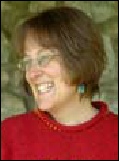 |
Susan Richardson (UK) Fellow Richardson is a Wales-based poet, performer and educator, whose third collection of poetry,skindancing, themed around our dys/functional relationship with the wild and our animal selves, was recently published by Cinnamon Press. Her previous two collections, Creatures of the Intertidal Zoneand Where the Air is Rarefied, focus on her own, and other human and non-human animals', journeys through the increasingly fragile Arctic environment. She is currently poet-in-residence with both the Marine Conservation Society, writing poems and running workshops in response to their Thirty Threatened Species project, and the global animal welfare initiative, World Animal Day. Susan has performed at literary, environmental and science festivals throughout the UK, for organisations such as WWF, Friends of the Earth and the Centre for Human Animal Studies, on BBC 2, and at Universities both nationally and internationally. She is also co-founder and poetry editor of Zoomorphic, the online literary magazine that publishes writing in celebration and defence of animals. For further information, please see Richardson's website. |
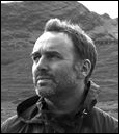 |
James Roberts (UK) Fellow Roberts lives in the Brecon Beacons National Park in Wales. He is a nature and place writer. He edits the magazine Zoomorphic publishing essays and poems in celebration and defence of wild animals. He writes essays, poetry and fiction, publishing in a wide range of journals in the UK. His new novella - The Man in the Mountain was published in May 2015. |
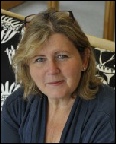 |
Jo Roberts (UK) Fellow Jo Roberts has been Director of the Wilderness Foundation since 2004, but has been involved as Projects Director and Project Coordinator since 1998. South African by birth, Jo has enjoyed a rich life of wild places in many parts of Africa as she grew up. She trained and worked as a Social Anthropologist during the time of Apartheid, working mainly with rural communities. Her main interest in life is the vital connection between humanity and nature, and the value that experiential learning and outdoor education brings to social and personal change. Jo focuses her attention on linking wilderness trails to peace and reconciliation and the effects of wilderness on developing sound youth leadership built on environmental awareness and ethics, and the turnaround potential for youth who are vulnerable or at risk. Using the extensive wilderness network and her close link to South Africa and programmes running there, she merges best practice from around the world into creative programmes that suit British climate and culture. |
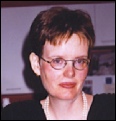 |
Judith Robinson (Canada) Fellow Growing up in the wilderness of northern Ontario, Canada, Robinson has always had a passion for nature. Her magazine and newspaper articles, radio reports, plays, and books reflect a desire to hold industry accountable for damaging the environment and a concerted effort to find a more simple and energy efficient way of life. She's been a journalism and creative writing professor at several American and Canadian colleges and universities. For seven years, she was a regional reporter for the Globe & Mail, specializing in corporate environmental trials. Robinson may be reached at email. |
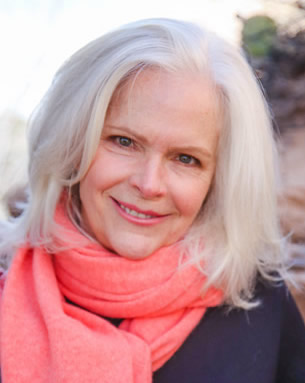 |
Lori Robinson (USA) Fellow Robinson holds a bachelor’s degree in environmental studies/ biology and a masters in psychology. She writes about wildlife issues for various blogs and magazines, including Africa Geographic and her own site, SavingWild.com. She lives alongside deer, coyote, rabbits, and bear in a small old adobe home in Santa Fe, New Mexico. Carl Safina did the foreword to her recently released third book, Wild Lives. Leading Conservationists on the Animals and Planet they Love.(Skyhorse, 2017). |
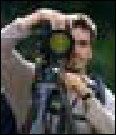 |
Jaime Rojo (Spain) Associate Rojo studied Environmental Sciences at the Univesidad Autonoma de Madrid and at the Universite de Lausanne in Switzerland. It was Rojo's passion for conservation of wild nature, and keen interest in photography, that led him from Spain to Mexico where he's been working for two local conservation NGOs, Sierra Madre and Unidos para la Conservacion. During this time he has participated in different projects to promote the concept of wilderness in Latin America, such as El Carmen-Big Bend Conservation Corridor and WILD9, the 9th World Wilderness Congress of which he was the Executive Director in Mexico City. Rojo is also an Emerging Member of the International League of Conservation Photographers. |
 |
Tom Rooney (USA) Fellow Rooney is associate professor in both Biological Sciences and Environmental Sciences at Wright State University in Dayton, Ohio, USA. He has written over 50 popular articles and research papers on topics related to population and community ecology and conservation. He co-edited The Vanishing Present: Wisconsin’s Changing Lands, Waters, and Wildlife (University of Chicago Press, 2008). Rooney may be reached byemail and more information may be found at his website. |
 |
Nicole Rosmarino (USA) Fellow Nicole Rosmarino, Ph.D. helped found the Southern Plains Land Trust (SPLT) in 1998 and has served as its Executive Director since 2011. In her work for SPLT, she is striving to create large shortgrass prairie wildlife refuges that emulate the “American Serengeti” that once occurred in the Great Plains. Thus far, SPLT has protected over 18,000 acres in southeast Colorado, a biodiversity hotspot. Nicole received her Ph.D. from the University of Colorado at Boulder in 2002. Her dissertation focused on the evolution of the Endangered Species Act and ways in which ecosystem protection and the precautionary principle have factored in the law’s legislative history. It has been used by law school professors, environmental attorneys, and conservation advocates. Over her career, Nicole worked to enforce the Endangered Species Act, first for the Biodiversity Legal Foundation and subsequently for a decade at WildEarth Guardians. She has endeavored to protect more than 800 species over the course of her career but now focuses on private lands approaches to protecting the wildlife and plants native to the southern Great Plains. Website |
 |
Ellen K. Rudolph (USA) Fellow Dr. Rudolph is an international photojournalist with major projects in South Africa, Singapore, Australia, Suriname, Provence, Costa Rica, and Ecuador; as well as extensive projects in the United States and Canada (Virginia, Florida, Tennessee (rehabilitation of injured Black Bears), New Mexico, Ontario); Yosemite National Park; the Great Smoky Mountain National Park, and (currently) Protection of Florida’s First Magnitude Springs. She currently lives on the second largest spring in Florida and one of the largest springs in the world, the Rainbow River, which is being loved to death by Floridians and international visitors. Her goal is to help Florida move quickly towards preservation of these vital natural resources before it is too late to save them. Dr. Rudolph is also a speaker and a psychologist. She maintains that Psychology and Conservation are kindred spirits that have allowed her to view, close-up, some of the deep-seated reasons that people fail to protect the natural world around them. |
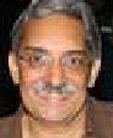 |
Bittu Sahgal (India) Founding Fellow Sahgal is the editor of Sanctuary Asia, India’s premier wildlife and ecology magazine and is at the forefront of the battle to protect India from the worst impacts of climate change. In 2000 he founded Kids for Tigers, the Sanctuary Tiger Program that reaches over 650 schools in 15 Indian cities covering one million children annually. Their motto: “The tiger will only be saved if its forests are saved.” By saving these forests, India protects over 600 of its purest rivers. And in the process the forests sequester and store carbon in the most effective way possible. |
 |
Matt Salmon (Fellow) Australia Salman has spent two decades working with Indigenous people, writing about and campaigning on conservation issues. He lives in the iconic Australian desert town of Alice Springs and is the Nature Conservancy’s Aridlands Program Director where he works on the long term conservation of Australian deserts. In the early 2000s, Matt led land use and conservation negotiations in Cape York Peninsula and creation of a series of new nationally important protected areas. He is a fellow of the Peter Cullen Trust and James Cook University outstanding alumni.He may be reached at Email. |
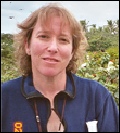 |
Adrienne Ross Scanlan (USA) Fellow Adrienne Ross Scanlan is a nature writer, freelance developmental editor, and author of Turning Homeward - Restoring Hope and Nature in the Urban Wild (Washington State Book Award 2017 Finalist, Sigurd Olson Nature Writing Award 2016 Notable Book, Nautilus Book Award 2016-2017 Silver Medal in Heroic Journey category). Scanlan's nature writing, personal essays, and other creative nonfiction have appeared in The Fourth River, Pilgrimage, Under the Sun, City Creatures, the American Nature Writing anthologies, For Love of Orcas, and other anthologies and journals. Scanlan is a graduate of the University of Washington's Certificate in Editing program and is a member of the Northwest Editors Guild (NEG) and the Editorial Freelancers Association (EFA). From 2012 - 2017, Scanlan served as the nonfiction editor of the Blue Lyra Review - A Literary Magazine of Diverse Voices, which celebrated four "notable essay" mentions in The Best American Essays. Please visit adrienne-ross-scanlan.com to learn more about her writing and editing services or contact her at adrienne@adrienne-ross-scanlan.com.” |
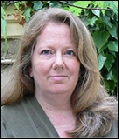 |
Jennifer Scarlott (USA) Fellow Scarlott is the New York City-based director for International Conservation Initiatives and online editor for Sanctuary Asia, the Indian conservation magazine and NGO in Mumbai. She writes a bi-monthly natural history column for children for Sanctuary's youth magazine, Cub. Scarlott has written extensively on the topic of tiger conservation for such journals as Sanctuary Asia, On Earth, E magazine, and Wildlife Conservation. She co-authored a chapter on the political struggle for India's tigers with Sanctuary's Bittu Sahgal for the 2010 edition of Tigers of the World: The Science, Conservation and Politics of Panthera Tigris. In addition to writing for print and online media, Scarlott is active with climate and anti-fracking organizations including 350.org. She is working for a closer collaboration between climate activists and conservationists in the hope that human beings can achieve what Quakers call "right relationship" with the earth. Scarlott is a graduate of Williams College and Columbia University. She can be reached at email. |
| Robbie Schmelzer (USA) Associate Schmelzer is with Minden Photo Embeds, a service that provides nature and conservation photos for use in blogs, websites, and social networks. Not presently a writer but has a similar mission in conservation and is eager to explore, contribute, create, and share with the other members. Website. |
|
 |
Michael Schwartz (USA) Associate Schwartz is a consultant and freelance journalist with a background in international relations. He holds a BA in Journalism from the College of St. Rose (New York) and an MA in African Studies from the University of Albany (New York). He has worked as a research fellow and project support specialist on several USAID Africa humanitarian projects in Kenya, South Sudan, Uganda and Zimbabwe on behalf of the State University of New York Center for International Development. He has also provided volunteer services in Southern Africa. Michael is passionate about environmental concerns on the African continent, with particular attention paid to the ivory and rhino horn trade, canned hunting, the ongoing debate on proper versus improper conservation methods and recognizing the rights of Africa's indigenous people groups. He is an avid outdoor enthusiast and wildlife photographer whose work can be found at his website. |
 |
Doug Scott (USA) Founding Fellow Scott has a long career with the Wilderness Society, Sierra Club, and Campaign for America’s Wilderness. He has worked extensively in getting wilderness bills through Congress, and his bookThe Enduring Wilderness is an overview of the Wilderness Act and a technical manual for wilderness conservation. Scott was a key figure in the first Earth Day and has won the John Muir award from the Sierra Club. He is currently policy and research director of the Campaign for American Wilderness. |
 |
Amy Seidl (USA) Fellow Seidl is the author of Early Spring: An Ecologist and Her Children Wake to a Warming World (2009), a book that blends memoir and science writing in its exploration of global climate change in a local landscape. Early Spring won a "Best of the Best" award from the Association of Academic and University Presses in 2010. Seidl is also the author of Finding Higher Ground: Adaptation in the Age of Warming (2011), a book that examines how natural systems and human cultures are responding evolutionarily to climate change. Seidl's academic position is as Lecturer in the Environmental Studies Program at the University of Vermont in Burlington. Her current writing projects include a narrative children's book on climate change and a series of literary non-fiction essays. She can be reached at email. |
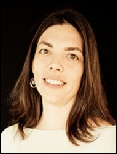 |
Christina Selby (USA) Fellow Selby is a freelance writer who communicates about issues at the intersection of people and nature with a particular focus on biodiversity, sustainable development, wilderness, and pollination ecology. She currently writes about reducing humanity’s impact on the planet at A Parallel Mom blogand about conservation in the world’s 35 Biodiversity Hotspots at The Unfolding Earth. Since 2009, she has written for Lowestoft Chronicle, Green Money Journal, Journal for Sustainability Education, Sustainable Santa Fe Guide, Mother Earth Living Blog, New Mexico Native Plant SocietyNewsletter, and Earthwatch Institute Unlocked. She lives in Santa Fe, NM and can be reached through her personal website, or, follow her on Twitter. |
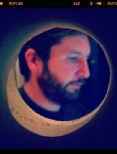 |
Mike Shanahan (UK) Fellow Shanahan is a freelance writer and editor. He has a doctorate in tropical rainforest ecology and has worked as a researcher, science journalist and communicator on environment and development issues in Africa, Asia and Latin America. He has written extensively on biodiversity, conservation and climate change, and has trained hundreds of journalists around the world to report on these issues. Mike is a member of the International Union for the Conservation of Nature’s Commission on Education and Communication. He has written as a freelance journalist for The Economist, Nature,The Ecologist and Ensia. He is the author of Ladders to Heaven: How fig trees shaped our history, fed our imaginations and can enrich our future (Unbound). Visit Mike’s blog or ema |
 |
Bill Sherwonit (USA) Fellow Born and raised in Connecticut, nature writer, naturalist and activist Bill Sherwonit has called Alaska home since 1982. He has contributed essays, articles, and commentaries to a wide range of newspapers, magazines, journals, and anthologies. He’s also the author of more than a dozen books; among his most recent are Living with Wildness: An Alaskan Odyssey; Changing Paths: Travels and Meditations in Alaska’s Arctic Wilderness; and Animal Stories: Encounters with Alaska’s Wildlife. He also writes a column for the weekly Anchorage Press, called “City Wilds.” Most of Sherwonit’s work explores Alaska’s wild nature, with an emphasis on natural history, wilderness adventure, wildlands preservation, wildlife management and advocacy, relationship with place, and notions of wildness, including the wildness to be found in and around his adopted home, Anchorage. And also within each of us. |
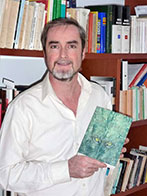 |
Seamus Shortt (United Kingdom) Fellow Anglo/Irish by birth, Shortt was brought up in Madrid and after living in Spain for thirty years, he now resides in England. As a committed conservationist he has been active in environmental issues for many years, becoming a life member of the British National Trust at an early age. As a writer, his fictional novels - The Montevivo Book Series - portray a fantasy world of talking animals in the sierras of Spain. Seamus Shortt's novels have a strongly ecological theme, and are prefaced by an environmental manifesto. The Montevivo books have been endorsed by the Felix Rodriguez de la Fuente Foundation, Spain's acclaimed body for conservation, and are loved by everyone who has a passion for Nature. The University of Cambridge Conservation Research Institute has recognized Montevivo as "a prime example of collaboration between literature and conservation in order to raise awareness of environmental issues and to reach out to a wide and varied audience." Seamus can be reached through the contact page on his author website seamusshortt.com |
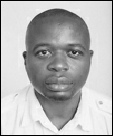 |
Newton Sibanda (Zambia) Fellow Sibanda is a Zambian journalist for the Zambia Daily Mail as Weekend Mail editor and environmental columnist with over 18 years of media experience. His areas of interest are; conservation, environment, water and sanitation, energy, health, and socio-economic issues. In the last decade, he has increasingly written about issues of climate change. Sibanda also writes for Panos Features, Ooskanews, AudienceScapes, and the Norwegian Agency for International Development (NORAD) development newspaper Bistandsaktuelt. He is a member of the International Federation of Environmental Journalists (IFEJ), African Network of Environmental Journalists (ANEJ) and president of the ANEJ Zambia Chapter. Currently Sibanda is studying towards an LLB degree with the University of South Africa to become an environmental lawyer. He and his wife Mwiza have a daughter and a son. |
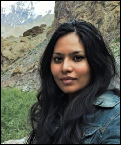 |
Neha Sinha (India) Fellow Sinha is a wildlife conservationist and writer based in New Delhi, India. Animals are her first love, and writing and literature come a close second. As a full-time conservationist, she runs a community conservation programme for Amur Falcons in Nagaland, and works on environmental policy, frequenting Courts, Ministries and forests! Her goal is singular: to speak up for wildlife. She writes opinion columns in newspapers in a bid to inform policies, particularly in The Hindu, The Deccan Herald, and The Indian Express. She also writes a popular column for the opinion portal, DailyO, and contributes reporter pieces to The Wire. She is interested in the conservation of all kinds of animals, especially neglected or ‘ugly’ animals, and has a love for haikus. She runs a website, where she posts photo-captions, creative projects such as wildlife haikus, and what animals means to us, under a section called ‘WeForWildlife’. See Neha being profiled here. See Neha’s latest piece at Daily O on tigers being killed by trucks, and roads and highways taking a heavy death toll on wildlife. She discusses the death of a young male tiger, knocked over by a vehicle, near the busy town of Dehradun in North India. |
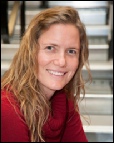 |
Sharon Shay Sloan (USA) Fellow Sloan is a bridge person dedicated to Earth and community stewardship working for love of the wild, inside and out. Deeply inspired through early transformational experiences in human community and wilderness and by the power of social change movements, she dedicated herself to re-imagining the Human-Nature-Relationship toward everyday cooperation with life. For the past decade plus, Sloan has looked to Nature as teacher, training with groups like the School of Lost Borders and Beyond Boundaries, and working internationally in project management, including with the United Nations in Canada and in Mexico with the World Wilderness Congress and Native Oceans. Currently, she is the project manager for the Indigenous Lands & Seas program of The WILD Foundation, a council trainer, a wilderness rites of passage guide with Wilderness Reflections and a part-time steward in the Owens Valley. Additionally, she is part of an international, intergenerational response team, Beyond Boundaries, working collaboratively with many groups, including Bioneers and The Ojai Foundation. She is co-editor of Protecting Wild Nature on Native Lands and honors the power of language to inspire and catalyze action and the human capacity to dream. photo by Wendy Griffith |
| Dr. Ridhima Solanki (India) Fellow Ridhima Solanki has worked towards wildlife conservation for a decade, including in India and tiger range countries. She is a PhD in Wildlife (carnivore ecology) from Forest Research Institute and Wildlife Institute of India. A member of the Global Tiger Forum, her expertise evolved towards policy and decision making. Ridhima worked on tiger, Cheetah and small cats at grass-root level, she contributes towards scientific writing as well as awareness campaigns. She has written for magazines and newspapers, especially in vernacular language, as editor for ENVIS bulletin and GTF newsletter and reviewer for wildlife article in magazine like Readers Digest. Ridhima is a storyteller who uses mediums like photographs, satellite images, poems, videos to bring awareness about wildlife, forestry, environment and human wildlife interaction. Email, Blog |
|
 |
Fee Stevens (Australia) Fellow Fee is a lifelong Poet, Creative Collaborator, Member Australian Society of Authors, Blue Mind Ambassador, Wellbeing Australia Professional Member, Board Appointed Ambassador for Endometriosis Australia, Country Needs People supporter, and Plant Based Expert. She has followed a plant-based lifestyle for more than 30 years and is affiliated with Nu-trition and Bouddi Biscuits (An Australian multi-award-winning company). Fee’s special interest is in the use of poetry as an expressive art form for developing creative and critical thinking skills. She’s collaborated with educators, marine biologists, citizen scientists, graphic designers, nutritionists, artists, photographers, and entrepreneurs. Her work largely deals with nature, whole person learning, ‘blue mind’ science, conservation, social issues, creativity, positive psychology, and women’s health. Her Blue Mind Outreach engaged Aboriginal communities, medical spheres, Australian fire rescue teams, and the cycling community. She helped secure funding for Indigenous Rangers and Indigenous Protected Areas, and, along with 13,200 people wrote to politicians calling for more Indigenous Protected Areas. She is featured in Voices of Support video achieving positive outcomes for people and country https://www.youtube.com/watch?v=o1JON4Cz_rw Fee has studied at The University of Sydney, The University of New South Wales, and The Poetry School London (UK). She worked as an English Instructor in Japan. As a young girl she adopted several dolphins from the Port Philip Bay area, and this sparked her interest in ocean advocacy. She completed a Marine Mammal Rescue Training workshop with ORRCA (Organisation for the Rescue and Research of Cetaceans in Australia). Her poetry collection includes “Unearthed” and the “Eco Poetry” Series. She is currently working on a new book “Connecting to Source.” Email: fee.stevens@bigpond.com |
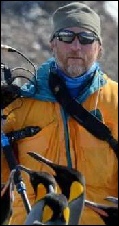 |
Brent S. Stewart (USA) Fellow Dr. Stewart has studied the population biology, foraging and physiological ecology, and behavior of marine mammals, sea birds, sea turtles, and whale sharks for over 35 years. His research expeditions have ranged from Greenland and Iceland in the North Atlantic south to Marion Island in the South Atlantic and Kenya, the Philippines, West Papua, the Maldives and Western Australia in the Indian Ocean, in Russia’s Lake Baikal and along the coast of Kamchatka, from the Beaufort and Bering Seas south through temperate, tropical and equatorial waters in the North Pacific Ocean, and in the Weddell, Amundsen, and Ross Seas of the Antarctic’s Southern Ocean and in China’s Yangtze River. Dr. Stewart’s focus in these comparative studies has been discovering and understanding what habitats are important to these various large marine vertebrates, how they navigate and migrate over vast areas to find and use those habitats, how they hunt and capture prey necessary to sustain breeding and fasting periods and successfully reproduce, how they interact with each other (populations and species) while sharing habitats and resources, and how they respond to and adjust to short and long term natural and anthropogenic changes in those key habitats. The application of remote sensing and telemetry is a key tool in many of these studies. The overall objectives of his scientific studies are to contribute his findings to the peer reviewed scientific literature and to education, conservation and management authorities to promote science-based conservation of ocean life. From 1999 to 2001 Dr. Stewart served as a Science and Diplomacy Fellow in the Bureau of Oceans at the U.S. State Department. In 2011 he was awarded the prestigious Lowell Thomas Medal by The Explorers Club for his career efforts to explore, understand, and conserve Earth’s ocean wildlife, and in 2012 was recognized as one of forty of the world's leading conservation biologists. |
 |
Lydia Stewart (USA) Associate Stewart is a graduate of the University of North Carolina Wilmington who received a Bachelor of Science degree in Biology. While attending college, she accepted an internship working for the Waikiki Aquarium training Hawaiian Monk Seals and raising awareness for marine mammal conservation. She has participated in environmental outreach programs to support conservation efforts and was a member of the UNCW Marine Mammal Stranding Program. After graduating Stewart accepted a position working with a veterinary practice, but soon realized her need to work for the environmental team and help conserve the world and the species remaining. Her hobbies include scavenging for antiques and exploring the wilderness with her pup. Stewart’s blog. |
 |
Bill Streever (USA) Fellow Bill Streever, a biologist, is the award winning and bestselling nature writer behind In Oceans Deep, Cold, Heat, and And Soon I Heard a Roaring Wind. He began his working life as a commercial diver. Later, as a scientist, he worked on issues ranging from the environmental effects of underwater sound to the evolution of cave crayfish to the restoration of tundra wetlands. With his wife, marine biologist and photographer Lisanne Aerts, he lives aboard the cruising sailboat Rocinante. The two of them are currently in the Pacific and underway on what they describe as “an intentionally slow circumnavigation.” When Bill is not busy fixing the boat, he spends his time sailing, diving, hiking, rowing a dinghy, paddling a kayak, seeing the world through the twin lenses of science and history, and, of course, writing. He can be reached at Bill@billstreever.com, or to learn more at www.billstreever.com. |
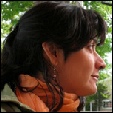 |
Meera Subramanian (USA) Fellow Subramanian is a US-based journalist who writes about culture, conservation and the environment for newspapers and magazines around the world. She can be found at her website. |
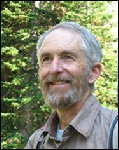 |
Frederick H. Swanson (USA) Fellow Swanson writes about the wild places of the western United States from his home in the foothills of Utah’s Wasatch Range. His book The Bitterroot and Mr. Brandborg: Clearcutting and the Struggle for Sustainable Forestry in the Northern Rockies won the 2012 Spur Award of the Western Writers of America. He has portrayed some of the 20th century explorers of the Colorado Plateau, including Glen Canyon river guide Dave Rust. A forthcoming book, Where Roads Will Never Reach, depicts the citizen campaigns for wilderness lands in the Northern Rockies of Idaho and Montana. His website. |
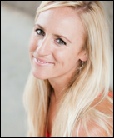 |
Shannon Switzer (USA) Fellow Switzer is a published conservation writer and award-winning photographer. With a B.S. in Biological Sciences and a B.A. in Environmental Studies from the University of California at Santa Barbara, she has conducted field research and photographed endangered species and remote cultures worldwide. Switzer has lived in Australia, Uganda, the Seychelles Islands, and on a boat sailing and surfing 3,000 miles down the coast of Mexico and Central America. Above and beyond all other ecosystems, she has always been drawn to the world of water, especially the salty version. Because of this affinity, a large portion of her work focuses on marine and freshwater ecosystems. Switzer uses her photography and writing to emphasize how the two are connected and the importance of developing solutions so that we can continue to enjoy and benefit from clean water. Her photography has been published inNational Geographic Adventure, Outside, Surfer’s Path and the Patagonia catalog, among others. After a number of her friends in San Diego contracted serious illnesses while surfing, Switzer applied for a Young Explores Grant in 2010 to trek the San Diego watershed from source to sea, documenting and raising awareness about the pollutants that are degrading our country’s fresh water and oceans. During her project, Switzer partnered with numerous local non-profits and found that although there were many conservation activities in the San Diego watershed, they were uncoordinated. Switzer continues to work with these organizations to increase communication and data-sharing. In addition, she has partnered with San Diego Coastkeeper and the San Diego River Park Foundation, which regularly use her photography to educate the public about their conservation efforts. Switzer’s work was featured on a National Geographic Channel Insterstitial, and she was named of one National Geographic’s Freshwater Heroes in 2011. |
 |
Jeremy Taylor (USA) Fellow Taylor works as an Environmental Educator for the New York State Department of Environmental Conservation, where he is the editor of Conservationist for Kids magazine. He holds a B.S. in environmental & forest biology from SUNY College of Environmental Science and Forestry and an MBA in Sustainable Business from Marylhurst University. Prior to coming to DEC, Taylor worked for 5 years as a pet care manager for PetSmart. He previously worked as an ecologist for Audubon International, biological scientist for Florida Fish and Wildlife Conservation Commission, animal keeper for Disney's Animal Kingdom and zookeeper for the San Antonio Zoo. Jeremy grew up on a farm, and has a lifelong interest in nature and environmental issues. |
| Aaron Teasdale (USA) FellowTeasdale has been a freelance magazine writer and photographer for 12 years, focusing on wilderness adventure. Conservation is explicit or implicit in all of his stories. He’s been a contributing editor for Bike magazine, a correspondent for Powder magazine, a columnist for Hooked on the Outdoors magazine, and photo editor for Outside Missoula magazine. Teasdale also served as deputy editor of Adventure Cyclist magazine for five years, and is currently a contributing editor for Backcountry magazine. Teasdale’s articles and images have appeared in dozens of publications around the world, including Audubon, Sierra, Men's Journal, National Geographic Adventure, and others. Awards: Lowell Thomas Award for the Best Adventure Travel Story of 2009, and just won a Northern Lights Award (Canadian travel writing award) for his story about cycling British Columbia's threatened Flathead Valley. |
|
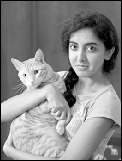 |
Cara Tejpal (ndia) Fellow Tejpal is a young writer and wildlife conservationist who lives between Delhi, Mumbai and the wilds that she so loves. An Assistant Editor with India’s first and finest wildlife and environment portal,Sanctuary Asia, Tejpal is also a Founder Member of the Bagh Foundation. As an independent journalist, her articles and reports on conservation issues have been published in numerous national journals and magazines. In 2012, she received a Sanctuary Asia Young Naturalist Award, long before she joined the organization, and has previously worked with The Gerry Martin Project on snakebite management and mitigation in India. Tejpal also supports independent conservation initiatives and voluntarily lends her skills to a number of organizations that work in the field. Email |
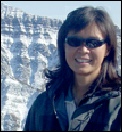 |
Tina Tin (France) Fellow Tina is a freelance environmental consultant who has been working on climate change, renewable energy and Antarctic environmental issues. With a Masters in Engineering and a Ph.D. in Geophysics, she started her career by writing scientific articles on climate change and the impacts of human activities on the Antarctic environment. While working for environmental non-profits, including Friends of the Earth, Natural Resources Defense Council, WWF and Antarctic and Southern Ocean Coalition, she learned to translate dense scientific concepts into everyday language that can be used in short, advocacy pieces for the general public and policy makers. She is co-author of the book Climate: the force that shapes our world and the future of life on Earth and the lead editor ofAntarctic futures: Human engagement with the Antarctic environment, a contributed volume on Antarctic environmental management. At present, Tina is interested in developing her writing skills to embrace styles which can move and touch people. Her hope is to be able to talk to the soul and the heart of the reader and to convey to the reader the uniqueness, preciousness and importance of the Antarctic wilderness. Email. |
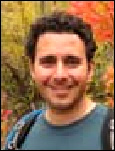 |
Mitch Tobin (USA) Fellow Tobin worked as a journalist in the US from 1999 to 2006, covering wildlife, wildfires, and other environmental issues for the Tucson Citizen, Arizona Daily Star, and High Country News. His first book, Endangered, grew out of Tobin's yearlong series on Arizona's endangered species, which was a finalist for the John B. Oakes Award for Distinguished Environmental Journalism. His work was honored in the Best of the West competition and received first prizes from the Arizona Press Club and Arizona Associated Press Managing Editors. Tobin serves as a consultant to leading conservation groups and foundations. |
 |
Carolyne Tomno (Kenya) Fellow Tomno is a career journalist currently working as a features and documentary producer, and also specializing in climate change and environmental issues at Kass Media Group, one of the leading and privately owned media houses in Kenya. Tomno learned to appreciate nature at an early age, growing up in the beautiful Rift Valley of Kenya. She has done several stories on the environment like the effects of mercury products on the environment and how the developing world is grappling with it. Tomno is an admirer of the late Kenyan Nobel laureate Wangari Maathai, and urges everyone to honor her memory and care for the environment. As Maathia once said “nature is very unforgiving, if you destroy nature, nature will destroy you.” |
| Elena Torres (New Zealand) Associate Torres has a BS in biology and is very interested in conservation. At WILD 9 in Merida, Mexico, she was the media coordinator for Mexico. Currently living in New Zealand she has written a blog about her experiences in conservation sites around southeast Asia. |
|
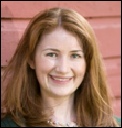 |
Anna Triebel (USA) Associate Triebel graduated summa cum laude from the University of Colorado, Boulder in 2012. Her senior thesis focused on the National Landscape Conservation System of the Bureau of Land Management. Anna was co-president of the Wilderness Study Group on campus and has volunteered with many other conservation-oriented groups in Boulder and Glenwood Springs, Colorado. Triebel is especially interested in sharing an appreciation for conservation and natural areas with children. She may be reached at Email. |
 |
Tom Turner (USA) Fellow Turner has been writing about conservation since 1968, when he went to work for the Sierra Club. He edited Not Man Apart, the Friends of the Earth journal, from 1971 to 1986 and was writer-editor for the Sierra Club Legal Defense Fund/Earthjustice from 1986 to 2008. He was a columnist for The Mother Earth News and Sierra, and has contributed pieces to Wilderness, Defenders, Business & Society Review, Earth Island Journal, The Environmental Forum, and many other publications. His books are Wild by Law, The Sierra Club Legal Defense Fund and the Places It Has Saved (Sierra Club); Sierra Club, 100 Years of Protecting Nature (Harry Abrams); Justice on Earth, Earthjustice and the people it has served (Chelsea Green); and Roadless Rules, The Struggle for the Last Wild Forests (Island Press), (Island Press), and the biography David Brower: The Making of an Environmental Movement(University of California Press). Turner lives in Berkeley, California. Turner may be reached at: Email. |
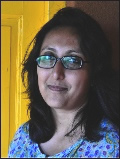 |
Bijal Vachharajani (India) Fellow Vachharajani is an independent journalist who writes about education for sustainable development in India. She has a Masters in Environment Security and Peace with a specialisation in Climate Change and Security from the University for Peace in Costa Rica. She has been the editor of Time Out Bengaluru and is also a communication and media consultant with NGOs such as Fairtrade India. Bijal has worked with Sanctuary Asia’s Kids for Tigers programme, PETA India, and 350.org. Her areas of interest include introducing nature and wildlife to children through her writing, children’s books, climate change, food security and biodiversity conservation, and sustainable education. Bijal can be reached on email, Twitter, and on Instagram. Some of her recent writings can be found at Wordpress.. |
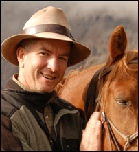 |
Vlado Vancura (Slovakia) Fellow Vancura is Director Wilderness Development of the European Wilderness Society http://wilderness-society.org/ that works to identify, designate, manage and promote Europe’s wilderness, the continent’s most undisturbed areas of nature. He is responsible for the development of wilderness in Europe, implementation of the wilderness quality standard and networking with protected areas and conservation NGOs. Vancura has extensive experience on management of protected areas with particular focus on wilderness conservation. He may be reached at email.. |
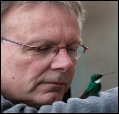 |
Jan van der Greef (The Netherlands) Fellow Jan van der Greef is an innovative scientist and a passionate nature photographer. Bridging different perspectives is the connecting theme in his work. The gift of capturing both the emotions of the experience and the essence of nature is his signature in photography. His photography has been awarded internationally in prestigious contests such as the BBC Wildlife Photographer of the Year, GDT European Wildlife Photographer of the Year, Nature Best etc. Sir David Attenborough classified his photography as “magnificent” in a handwritten letter related to his recently published book“Reflections of the Inner Self. Dreams and Visions of Nature.” He is a professor in analytical biosciences focusing on systems biology at Leiden University and principal investigator at “The Netherlands Institute of Applied Scientific Research” TNO. Website |
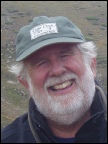 |
Bruce P. Van Haveren, Ph.D. (USA) Academic Bruce is an affiliate faculty member in Colorado State University’s Warner College of Natural Resources. His academic and research interests are in wildlands conservation and protected areas policy; wetlands ecology; forest ecology; and headwaters management. He continues to do ecological consulting for Indian tribes and nongovernmental organizations. He is currently working on a new book on U. S. conservation policy. Before retirement from the U. S. Department of the Interior in 2004 Bruce worked on a variety of natural resource issues at local, regional, national, tribal, and international levels over a 35-year period. He served as Science Advisor to the Director of the Bureau of Land Management in Washington DC in the late 1990s. He was a member of Interior Secretary Bruce Babbitt’s science council during the second Clinton administration. During the last five years of his career, he focused on science administration and the organization of natural resources research at both the laboratory and national levels. Bruce has also been a visiting professor at Sisseton Wahpeton College, a tribal college in South Dakota, the Colorado School of Mines, and the University of Colorado at Boulder. He and his wife Pearl live in Evergreen, Colorado. |
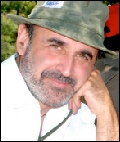 |
Benigno Varillas (Spain) Fellow Varillas (Asturias, 1953) began his professional activity as a journalist at the newspaper El Pais, in 1976, as a writer specialized in nature related issues. Later (1983-86) he was a scriptwriter and adviser on weekly environmental documentaries for Spanish state television (TVE). Founder in 1981 and director until 2001 of the nature magazine Quercus. For 20 years he was the author of editorials within this magazine, that influenced the Spanish opinion in matters such us nature conservancy. In 1994 he designed and initiated a project financed by the Spanish Ministry of Industry and Energy aimed at the introduction of Internet communication into the Spanish environmental sector. His last book (2010) was Felix Rodriguez de la Fuente's biography, focused on the analysis of searching for a sense of freedom in wildlife, and it's significance in regards to human freedom. At the moment he is working in a communication platform www.altotero.com, with the goal of informing about experiences that work towards a sustainable information society to rewild rural areas, abandoned by pastoralists, as well as preparing his next book regarding these issues. |
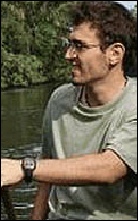 |
Diogo Verissimo (Portugal) Founding Fellow Verissimo started writing about conservation and biodiversity in 2006, as a cntributor to the e-zine of the Portuguese Nature Photography Community. Those contributions sparked his interest and prompted him to engage with the press not only in Portugal, his home country, but also in the different countries where his career as a conservation biologist had taken him. In Portugal, he became a regular contributor to the magazine Parks and Wildlife and other publications such asPardela the magazine of the Portuguese Society for the Study of Birds. In 2009 Verissimo started his own column on the environment in the Portuguese regional newspaper "Voz da minha terra." He is in the process of writing his first book on the professional lives of conservation biologists in the field and has also been published worldwide with the magazines BBC Wildlife in the UK andZwazo, in the Seychelles, together with the newspaper La Voz de Tortuguero in Costa Rica. He is the 2012 winner of the IUCN Thompson Reuters Environmental Media Award. Please visit hisWebsite. |
 |
Jessica L Walker (Australia) Associate Walker was born in Perth, Western Australia--the most isolated capital city in the world. Dubbed "the City of Lights" by astronaut John Glenn on 20 February 1962, Perth has always been surrounded by unpopulated wilderness. Walker grew up playing on unspoiled beaches and in untamed bush, and is fierce in her belief that the next generation must be allowed to do the same. Walker graduated from the University of Western Australia with a doctorate in history and a bachelor of laws, winning the Richard Kiwanuka Prize in International Humanitarian and Refugee Law in 2009. Her legal career to date has focused on the international relationships between governments and corporations, with particular reference to the interaction of international conservation agreements and the Australian Constitution. |
 |
Marianne D. Wallace (USA) Founding Fellow Wallace is a natural science educator, writer, and illustrator. Her work has appeared in more than 30 books and publications. She has also been an elementary school science teacher, a writer for the US Forest Service, and a tour guide in at the Los Angeles County Arboretum. Recently she received a Woman of Achievement Award from the YWCA of the San Gabriel Valley. She lives between the Pacific Ocean coastline and the Mojave Desert (an hour’s drive each way) in the foothills of Monrovia, California, with her botanist husband. Author/illustration of America’s nature series: America’s Mountains, America’s Seashores, etc. Email |
 |
Julianne Warren (USA) Fellow Warren is the author of Aldo Leopold’s Odyssey (published under the surname Newton), an intellectual biography of the twentieth-century American conservation ecologist and author of A Sand County Almanac. Her work unfolds Leopold's journey to better understandings of harmonious human-nature relationships. Julianne has published a number of academic and creative writings on related subjects and is presently working on a second book aimed at envisioning fresh, authentic stories connecting human happiness, utopian imagination, and real places into the unknown twenty-first century. Warren has a Ph.D. in wildlife ecology from the University of Illinois Urbana-Champaign. She has served as past president of the John Burroughs Institute in Roxbury, NY and is on the Board of Directors of the Association of Environmental Studies and Sciences. Julianne is a member of the Liberal Studies faculty and an Associate with the Environmental Studies Program at New York University. Academic website and Online interview. |
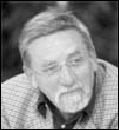 |
Hubert Weinzierl (Germany) Fellow Weinzierl is the president of Deutscher Naturschutzring (German League of Nature, Conservation and Environment [and an umbrella organization of 105 NGOs, 5.5 million members]). He has been involved in the environmental movement since the 1950s and is considered the unifying figure between classic and modern environmental policies in Germany. "The death of forests will change our country more than the second world war."--Hubert Weinzierl Photo © Ulf Doerner |
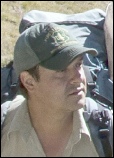 |
Joe Whittle (USA) Fellow Joe Whittle is a freelance photographer and writer living in the wild mountains of Northeast Oregon. As a member of the Caddo and Delaware tribes, conservation and issues around indigenous culture and lifestyle are close to his heart. He has made it a part of his life's work to bring representation of indigenous voice to mainstream media, hoping to help shift the paradigm of indigenous stories primarily being told by non-indigenous people. Joe has spent most of his life in the wilderness, working as a guide and wilderness skills instructor, a backcountry wilderness ranger for the U.S. Forest Service, an experimental biology aide for the Oregon Department of Fish and Wildlife, and as a conservation activist and journalist. His journalism work on those issues can be found in publications such as The Guardian, Outside Magazine, Backpacker Magazine, Huffington Post, Yahoo News, The Oregonian, and with the Indigenous Environmental Network. Joe can be reached via email atphotojoe29@gmail.com, or by phone at 541-263-0085. A great place to stay up to date on his adventures and storytelling is at his Instagram: https://www.instagram.com/joewhittlephotography/ |
 |
Susan Wile (US) Fellow Susan Wile was born in Liberia, Africa. Her father was a diplomat, and moved the family from the US to Holland when she was five. She first learned to read, write and speak Dutch, before she learned how to read and write in English a few years later. Susan remembers that she always was writing, from the pretend scribbles as a young child to many different writing positions of her career. An avid nature and animal lover, she lives with her family, the sweetest little rescue dog, three cats, four ducks and thousands of honeybees in New York’s Hudson Valley. |
 |
Allie Wilkinson (USA) Fellow Wilkinson is a freelance multimedia journalist specializing in science and the environment. Her work has appeared in Ars Technica, Scientific American, Chemical and Engineering News, The Long Island Herald and The Miami Planet. She is a member of the National Association of Science Writers and the Society of Environmental Journalists and holds a B.A. in environmental studies, a certificate in conservation biology, and a M.A. in science journalism. In her spare time, Wilkinson also runs the popular website This Is What A Scientist Looks Like, a community project aimed at dispelling the myth of the stereotype scientists through sharing photos of real scientists. Please visit her website for more information, or contact her via email. |
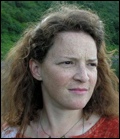 |
Laura Williams (Russia) Fellow Laura Williams has committed her life to creating a link between Russia and the international biodiversity conservation community. For nearly 20 years, since she left her childhood home in Colorado (in the US), Williams has worked to communicate the global significance of protecting Russia’s biodiversity and the role of its unique system of strictly protected areas in its conservation. Williams opened the first office of World Wide Fund for Nature (WWF) in Russia in 1993, and in 2006, she launched the WWF program on the remote and pristine Kamchatka Peninsula. During her Moscow tenure, the area of land protected in the Russian Arctic was doubled, tiger numbers in the Russian Far East began to stabilize as a result of anti-poaching efforts, and a half a dozen environmental education centers were established in protected areas to raise public environmental awareness. While on Kamchatka, Williams advocated for improving practices of resource development companies, while helping to stop poaching of Kamchatka’s most valuable resources – sockeye salmon and brown bear – in key spawning areas. As a conservation writer, Ms. Williams’ writings on Russian conservation issues in international magazines, websites, and publications have helped to illuminate the importance of protecting Russia’s wilderness to the global community. In 2008, she published a memoir on her life in a remote nature reserve entitled The Storks’ Nest: Life and Love in the Russian Countryside. Williams is an avid horse lover and natural horsemanship trainer. She is married to Russian wilderness photographer Igor Shpilenok, with whom she has two boys. |
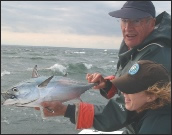 |
Ted Williams (USA) Founding Fellow Williams has been writing full time on environmental issues, with special attention to fish and wildlife conservation, since 1970. In addition to freelancing for national magazines, he contributes a monthly column called “Recovery” to The Nature Conservancy’s Cool Green Science and a regular conservation column to Fly Rod & Reel. Williams was presented with the Conservation Achievement Award by the National Wildlife Federation, received the Federal Wildlife Officers Association award for his conservation writing, and the Aldo Leopold Award for “outstanding contributions to fisheries and land ecology” by the Federation of Fly Fishers. He has been named to the Jade of Chiefs--the highest conservation award given by the Outdoor Writers Association of America. And for his reporting on federal forest-fire policy the American Society of Magazine Editors voted Audubon one of five finalists in the National Magazine Awards. In July 2015 the Outdoor Writers Association of America named Ted Williams the nation’s best outdoor columnist, presenting him with its overall “Excellence in Craft Award” for his final three “Incite” columns in Audubon. The column ran from September 1988 until May 2014. |
 |
David Wilson (Vietnam) Fellow Wilson is a Southeast Asia-based independent reporter who writes a lot about money. He’d like to cover more subjects with a green slant – human supremacism, the expulsion of gigatons of greenhouse gases into the stratosphere, the mashing of the biosphere. He weaves in wildlife angles where he can. His idols include George Monbiot and Bill McKibben. Some of David's writing. He’s reachable through Twitter (@powerpossum) – fan mail and job offers only. |
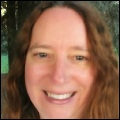 |
Mary Woodbury (Canada) Fellow Woodbury studied English and anthropology at Purdue University and is currently applying for her MA in British Columbia, focusing on eco-studies in literature. Mary grew up in the United States, where her parents introduced her at an early age to nature; she spent many family trips hiking, climbing mountains, horseback riding, canoeing, white-water rafting, and camping—filling her with a deep respect for the wilderness. Since college, she has taken on several eco-literature projects, including as chief editor and cofounder of Jack Magazine (now archived at Stanford University) and as owner of the independent niche Moon Willow Press, publishing a few environmental titles each year and helping to reforest areas in need. She is the curator at Eco-fiction.com, which has a large database of fiction titles—and some notable nonfiction—relating to climate change and other environmental topics. She has interviewed several award-winning authors for the site and runs the Google newsgroup "Ecology in Literature and the Arts," which is nearing 900 members. Under pen name Clara Hume, Mary wrote the speculative fiction novel Back to the Garden,which explores relationships and redemption in a post-collapse, climate changed world. She is working on another novel that she calls "weird fiction," and dips into the problem with wild horses not having enough grazing land due to the demands of the cattle industry. Mary enjoys the same things she did as a kid: trail running, hiking, camping, and being in the great outdoors. |
|
Diana Woodcock (USA) Fellow Woodcock is an Associate Professor of English at VCUarts Qatar, where she has taught composition, creative writing, and environmental literature since 2004. Her fourth poetry collection, Facing Aridity, was published in 2021 as the 2020 Prism Prize for Climate Literature finalist. Forthcoming in 2023 is Holy Sparks (2020 Paraclete Press Poetry Award finalist). Recipient of the 2011 Vernice Quebodeaux Pathways Poetry Prize for Women for her debut collection, Swaying on the Elephant’s Shoulders, her work appears in Best New Poets 2008 and has been nominated for Best of the Net and the Pushcart Prize. Her award-winning poem, “Music as Scripture,” was performed onstage in Lincoln Park, San Francisco by Natica Angilly's Poetic Dance Theater Company at Artists Embassy International’s 21st Dancing Poetry Festival. She holds a PhD in Creative Writing from Lancaster University, where her research was an inquiry into poetry’s role in the search for an environmental ethic. She is working on a collection of poetry entitled Reverent Flora: The Arabian Desert’s Botanical Bounty. She has worked as a counselor with delinquent youth, an editor of a young women’s magazine, and a teacher of English as a second language. For nearly eight years, she lived in Tibet, Macau, and on the Thai-Cambodian border teaching and working with refugees. |
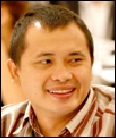 |
Yansen Yansen (Indonesia) Fellow Yansen is a tropical ecologist at the University of Bengkulu, Indonesia. He is currently undertaking a PhD at the School of Marine and Tropical Biology, James Cook University, Australia. His research focuses on forest biology. Yansen has published articles for popular media covering a range of issues on biodiversity and nature conservation, environment, forestry and natural disasters. His articles mainly focus on Indonesia, a home of one of the most diverse tropical biodiversity in the world. Since 2008, his writings have appeared regularly in The Jakarta Post, the largest daily English-language newspaper in Indonesia. Some of those opinions reappeared in The Brunei Times, an independent English-language daily published in Brunei Darussalam, as well as cited by many online publications. His articles written in Indonesian were published in, among others, Kompas, the most widely read newspaper in Indonesia. The collection of his writings can be read on his blog, Indonesia Green Chronicle |
 |
Mary Taylor Young (USA) Fellow Award-winning writer, naturalist and zoologist Mary Taylor Young has been writing about the landscape, wild communities and heritage of Colorado and the American West for nearly 40 years. Her 23 books include Bluebird Seasons: Witnessing Climate Change In My Piece of the Wild and Land of Grass and Sky: A Naturalist’s Prairie Journey. Mary’s honors include 2020 Lifetime Achievement Award from the Colorado Authors League, 2019 induction into Colorado Authors Hall of Fame, and 2018 Frank Waters Award honoree for exemplary literary achievement and a canon of writing that communicates a deep understanding, celebration, and love of the West. She was a National Park Service Artist-in-Residence at Rocky Mountain National Park in 2012. Website |
| Franco Zunino (Italy) Fellow Zunino is a pioneer of the Italian wilderness movement and co-founder and General Secretary of Associazione Italiana Wilderness (AIW). He is a board member of Foundation for Gaia, a former Ranger in the Gran Paradiso National Park, former staff member of the Abruzzo National Park, biologist of the Abruzzo Brown Bear, and member of the IUCN Species Survival Commission--Bear Specialist Group. Zunino is also an Associate Editor of the International Journal of Wilderness published by the WILD Foundation (US) and is on the International Board of Senior Advisers of the Listening Point Foundation (US) which promotes Sigurd F. Olson's philosophy and builds upon his legacy in the field of wilderness education. Zunino is a prolific writer, photographer and eminent commentator on wilderness philosophy. He has pioneered working relationships with municipalities and regional governments that led to proclamations of 58 new wilderness areas throughout Italy. Zunino was proclaimed one of the Wilderness Pioneers at WILD9. Email
|
|
| Home | Members List | Bios | Application | Links | Reviews | Blog | Awards | |
